Shows
 忽左忽右392 国际援助遭遇真空时刻:从USAID停摆说起- 导语 -
当地时间2025年1月20日,川普就职首日便签署一系列行政令,其中包括美国暂停几乎所有的对外援助项目90天,导致数千个援助计划被迫中断。两周后,美国国际开发署(USAID)正式摘牌,这个运行了60余年的双边援助机构宣告结束。USAID究竟是一个什么样的组织?美国“断供”后,全球公共卫生体系将会面临怎样的冲击?在效率和影响力的博弈背后,如何理解对外援助的真正价值?面对全球公卫援助的“真空时刻”,中国又能发挥怎样的作用?请听本期嘉宾许铭和王泺带来的精彩分享!
- 本期话题成员 -
程衍樑(微博@GrenadierGuard2)
许铭,北京大学公共卫生学院全球卫生学系主任,全球健康发展研究院副院长,博士生导师
王泺,商务部研究院国际发展合作研究所所长
- 时间轴 -
02:41 美国援助「断供」,全球公卫吃紧
09:28 制衡苏联:USAID的成立背景
13:36 艾滋、疟疾首当其冲,卫生援助改革山雨欲来
18:24 美国暂停多边机构援助的链式反应
24:23 关注效率,也要看到援助背后的「无形资产」
42:27 私企如何参与公共援助:可乐冷链在非洲运输药品
49:33 中国应对全球公卫资金缺口的防风险思考
52:28 从公派医疗队到企业投资:中国卫生援助简史
58:09 中国公卫技术可靠,但欠缺需求针对性
01:04:44 国合署与卫健委之间存在信息差问题
- 本期术语 -
总统防治艾滋病紧急救援计划(PEPFAR)
由美国总统乔治·W·布什于2003年发起,旨在应对全球艾滋病疫情。PEPFAR是史上最大规模的单一疾病援助计划,截至2023年,已投入超过1100亿美元,挽救了超过2500万人的生命,主要集中在撒哈拉以南非洲。
抗击艾滋病、结核病和疟疾全球基金(GFATM)
简称“全球基金”,成立于2002年,是一个公营部门与私营部门的合作组织,总部位于瑞士日内瓦。该基金通过筹集资金,支持全球抗击艾滋病、结核病和疟疾的项目,覆盖超过150个国家。
英国国际发展部(DFID)
成立于1997年,是英国政府负责国际发展援助的机构,主要工作包括减贫、教育、卫生等领域。2020年,DFID与外交部合并,成立外交、联邦及发展事务部。
联合国艾滋病规划署(UNAIDS)
成立于1996年,由多个联合国机构联合组成,总部位于日内瓦。其主要任务是帮助各国制定艾滋病防治计划,协调国际机构的合作,降低艾滋病的传播和影响。
经济合作与发展组织(OECD)
成立于1961年,总部位于法国巴黎,由38个市场经济国家组成。该组织致力于应对全球化带来的经济、社会和治理挑战。
发展援助委员会(DAC)
隶属于OECD,负责讨论发展中国家的援助和发展问题,制定官方发展援助(ODA)的标准。
官方发展援助(ODA)
由OECD发展援助委员会定义,发达国家为促进发展中国家经济发展和人民福祉提供的赠款或优惠贷款,赠与成分不低于25%。
WHO PQ认证(WHO Prequalification)
由世界卫生组织(WHO)于2001年建立的药品认证程序,最初针对抗艾滋病、抗疟疾和抗结核药物,现已扩展至多种药品和疫苗,旨在确保药品质量和安全性。
- 制作团队 -
声音设计 hotair
节目统筹 禾放
节目运营 小米粒
节目制作 hualun 思钊 Yo
logo设计 杨文骥
- 音乐 -
Danse Macabre - Busy Strings - Kevin MacLeod
- 本节目由JustPod出品 © 2025 上海斛律网络科技有限公司 -
- 互动方式 -
商务合作:ad@justpod.fm
微博:@忽左忽右leftright @播客一下 @JustPod
微信公众号:忽左忽右Leftright / JustPod / 播客一下
小红书:JustPod气氛组 / 忽左忽右
B站:忽左忽右leftright
抖音:忽左忽右2025-03-141h 09
忽左忽右392 国际援助遭遇真空时刻:从USAID停摆说起- 导语 -
当地时间2025年1月20日,川普就职首日便签署一系列行政令,其中包括美国暂停几乎所有的对外援助项目90天,导致数千个援助计划被迫中断。两周后,美国国际开发署(USAID)正式摘牌,这个运行了60余年的双边援助机构宣告结束。USAID究竟是一个什么样的组织?美国“断供”后,全球公共卫生体系将会面临怎样的冲击?在效率和影响力的博弈背后,如何理解对外援助的真正价值?面对全球公卫援助的“真空时刻”,中国又能发挥怎样的作用?请听本期嘉宾许铭和王泺带来的精彩分享!
- 本期话题成员 -
程衍樑(微博@GrenadierGuard2)
许铭,北京大学公共卫生学院全球卫生学系主任,全球健康发展研究院副院长,博士生导师
王泺,商务部研究院国际发展合作研究所所长
- 时间轴 -
02:41 美国援助「断供」,全球公卫吃紧
09:28 制衡苏联:USAID的成立背景
13:36 艾滋、疟疾首当其冲,卫生援助改革山雨欲来
18:24 美国暂停多边机构援助的链式反应
24:23 关注效率,也要看到援助背后的「无形资产」
42:27 私企如何参与公共援助:可乐冷链在非洲运输药品
49:33 中国应对全球公卫资金缺口的防风险思考
52:28 从公派医疗队到企业投资:中国卫生援助简史
58:09 中国公卫技术可靠,但欠缺需求针对性
01:04:44 国合署与卫健委之间存在信息差问题
- 本期术语 -
总统防治艾滋病紧急救援计划(PEPFAR)
由美国总统乔治·W·布什于2003年发起,旨在应对全球艾滋病疫情。PEPFAR是史上最大规模的单一疾病援助计划,截至2023年,已投入超过1100亿美元,挽救了超过2500万人的生命,主要集中在撒哈拉以南非洲。
抗击艾滋病、结核病和疟疾全球基金(GFATM)
简称“全球基金”,成立于2002年,是一个公营部门与私营部门的合作组织,总部位于瑞士日内瓦。该基金通过筹集资金,支持全球抗击艾滋病、结核病和疟疾的项目,覆盖超过150个国家。
英国国际发展部(DFID)
成立于1997年,是英国政府负责国际发展援助的机构,主要工作包括减贫、教育、卫生等领域。2020年,DFID与外交部合并,成立外交、联邦及发展事务部。
联合国艾滋病规划署(UNAIDS)
成立于1996年,由多个联合国机构联合组成,总部位于日内瓦。其主要任务是帮助各国制定艾滋病防治计划,协调国际机构的合作,降低艾滋病的传播和影响。
经济合作与发展组织(OECD)
成立于1961年,总部位于法国巴黎,由38个市场经济国家组成。该组织致力于应对全球化带来的经济、社会和治理挑战。
发展援助委员会(DAC)
隶属于OECD,负责讨论发展中国家的援助和发展问题,制定官方发展援助(ODA)的标准。
官方发展援助(ODA)
由OECD发展援助委员会定义,发达国家为促进发展中国家经济发展和人民福祉提供的赠款或优惠贷款,赠与成分不低于25%。
WHO PQ认证(WHO Prequalification)
由世界卫生组织(WHO)于2001年建立的药品认证程序,最初针对抗艾滋病、抗疟疾和抗结核药物,现已扩展至多种药品和疫苗,旨在确保药品质量和安全性。
- 制作团队 -
声音设计 hotair
节目统筹 禾放
节目运营 小米粒
节目制作 hualun 思钊 Yo
logo设计 杨文骥
- 音乐 -
Danse Macabre - Busy Strings - Kevin MacLeod
- 本节目由JustPod出品 © 2025 上海斛律网络科技有限公司 -
- 互动方式 -
商务合作:ad@justpod.fm
微博:@忽左忽右leftright @播客一下 @JustPod
微信公众号:忽左忽右Leftright / JustPod / 播客一下
小红书:JustPod气氛组 / 忽左忽右
B站:忽左忽右leftright
抖音:忽左忽右2025-03-141h 09 忽左忽右中国版392 国际援助遭遇真空时刻:从USAID停摆说起- 导语 -当地时间2025年1月20日,川普就职首日便签署一系列行政令,其中包括美国暂停几乎所有的对外援助项目90天,导致数千个援助计划被迫中断。两周后,美国国际开发署(USAID)正式摘牌,这个运行了60余年的双边援助机构宣告结束。USAID究竟是一个什么样的组织?美国“断供”后,全球公共卫生体系将会面临怎样的冲击?在效率和影响力的博弈背后,如何理解对外援助的真正价值?面对全球公卫援助的“真空时刻”,中国又能发挥怎样的作用?请听本期嘉宾许铭和王泺带来的精彩分享!- 本期话题成员 -程衍樑(微博@GrenadierGuard2)许铭,北京大学公共卫生学院全球卫生学系主任,全球健康发展研究院副院长,博士生导师王泺,商务部研究院国际发展合作研究所所长- 时间轴 -02:41 美国援助「断供」,全球公卫吃紧09:28 制衡苏联:USAID的成立背景13:36 艾滋、疟疾首当其冲,卫生援助改革山雨欲来18:24 美国暂停多边机构援助的链式反应24:23 关注效率,也要看到援助背后的「无形资产」42:27 私企如何参与公共援助:可乐冷链在非洲运输药品49:33 中国应对全球公卫资金缺口的防风险思考52:28 从公派医疗队到企业投资:中国卫生援助简史58:09 中国公卫技术可靠,但欠缺需求针对性01:04:44 国合署与卫健委之间存在信息差问题- 本期术语 -总统防治艾滋病紧急救援计划(PEPFAR)由美国总统乔治·W·布什于2003年发起,旨在应对全球艾滋病疫情。PEPFAR是史上最大规模的单一疾病援助计划,截至2023年,已投入超过1100亿美元,挽救了超过2500万人的生命,主要集中在撒哈拉以南非洲。抗击艾滋病、结核病和疟疾全球基金(GFATM)简称“全球基金”,成立于2002年,是一个公营部门与私营部门的合作组织,总部位于瑞士日内瓦。该基金通过筹集资金,支持全球抗击艾滋病、结核病和疟疾的项目,覆盖超过150个国家。英国国际发展部(DFID)成立于1997年,是英国政府负责国际发展援助的机构,主要工作包括减贫、教育、卫生等领域。2020年,DFID与外交部合并,成立外交、联邦及发展事务部。联合国艾滋病规划署(UNAIDS)成立于1996年,由多个联合国机构联合组成,总部位于日内瓦。其主要任务是帮助各国制定艾滋病防治计划,协调国际机构的合作,降低艾滋病的传播和影响。经济合作与发展组织(OECD)成立于1961年,总部位于法国巴黎,由38个市场经济国家组成。该组织致力于应对全球化带来的经济、社会和治理挑战。发展援助委员会(DAC)隶属于OECD,负责讨论发展中国家的援助和发展问题,制定官方发展援助(ODA)的标准。官方发展援助(ODA)由OECD发展援助委员会定义,发达国家为促进发展中国家经济发展和人民福祉提供的赠款或优惠贷款,赠与成分不低于25%。WHO PQ认证(WHO Prequalification)2025-03-141h 09
忽左忽右中国版392 国际援助遭遇真空时刻:从USAID停摆说起- 导语 -当地时间2025年1月20日,川普就职首日便签署一系列行政令,其中包括美国暂停几乎所有的对外援助项目90天,导致数千个援助计划被迫中断。两周后,美国国际开发署(USAID)正式摘牌,这个运行了60余年的双边援助机构宣告结束。USAID究竟是一个什么样的组织?美国“断供”后,全球公共卫生体系将会面临怎样的冲击?在效率和影响力的博弈背后,如何理解对外援助的真正价值?面对全球公卫援助的“真空时刻”,中国又能发挥怎样的作用?请听本期嘉宾许铭和王泺带来的精彩分享!- 本期话题成员 -程衍樑(微博@GrenadierGuard2)许铭,北京大学公共卫生学院全球卫生学系主任,全球健康发展研究院副院长,博士生导师王泺,商务部研究院国际发展合作研究所所长- 时间轴 -02:41 美国援助「断供」,全球公卫吃紧09:28 制衡苏联:USAID的成立背景13:36 艾滋、疟疾首当其冲,卫生援助改革山雨欲来18:24 美国暂停多边机构援助的链式反应24:23 关注效率,也要看到援助背后的「无形资产」42:27 私企如何参与公共援助:可乐冷链在非洲运输药品49:33 中国应对全球公卫资金缺口的防风险思考52:28 从公派医疗队到企业投资:中国卫生援助简史58:09 中国公卫技术可靠,但欠缺需求针对性01:04:44 国合署与卫健委之间存在信息差问题- 本期术语 -总统防治艾滋病紧急救援计划(PEPFAR)由美国总统乔治·W·布什于2003年发起,旨在应对全球艾滋病疫情。PEPFAR是史上最大规模的单一疾病援助计划,截至2023年,已投入超过1100亿美元,挽救了超过2500万人的生命,主要集中在撒哈拉以南非洲。抗击艾滋病、结核病和疟疾全球基金(GFATM)简称“全球基金”,成立于2002年,是一个公营部门与私营部门的合作组织,总部位于瑞士日内瓦。该基金通过筹集资金,支持全球抗击艾滋病、结核病和疟疾的项目,覆盖超过150个国家。英国国际发展部(DFID)成立于1997年,是英国政府负责国际发展援助的机构,主要工作包括减贫、教育、卫生等领域。2020年,DFID与外交部合并,成立外交、联邦及发展事务部。联合国艾滋病规划署(UNAIDS)成立于1996年,由多个联合国机构联合组成,总部位于日内瓦。其主要任务是帮助各国制定艾滋病防治计划,协调国际机构的合作,降低艾滋病的传播和影响。经济合作与发展组织(OECD)成立于1961年,总部位于法国巴黎,由38个市场经济国家组成。该组织致力于应对全球化带来的经济、社会和治理挑战。发展援助委员会(DAC)隶属于OECD,负责讨论发展中国家的援助和发展问题,制定官方发展援助(ODA)的标准。官方发展援助(ODA)由OECD发展援助委员会定义,发达国家为促进发展中国家经济发展和人民福祉提供的赠款或优惠贷款,赠与成分不低于25%。WHO PQ认证(WHO Prequalification)2025-03-141h 09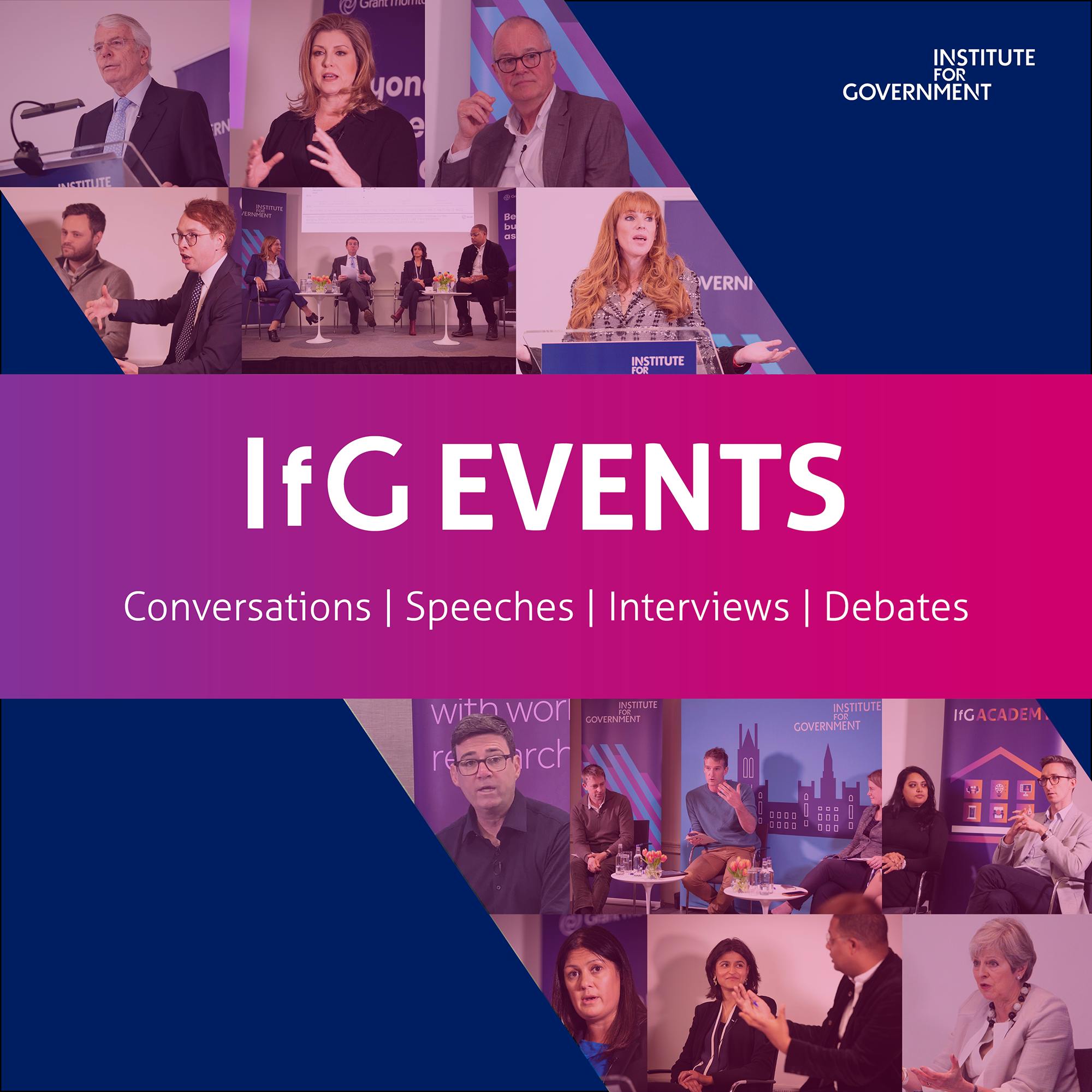 IfG EventsLessons from the rise and fall of the Department for International DevelopmentFrom its creation in 1997 to its merger with the Foreign Office in 2020, the Department for International Development (DfID) managed nearly £200 billion in total and played a global leadership role in reducing poverty. While DfID also had to deal with high-profile failures and public criticism, sustained political support from Labour, coalition and Conservative governments helped the department to achieve a record of delivery during its 23-year existence. A new book, The Rise and Fall of the Department for International Development, will be published in October. Sir Mark Lowcock, the book's co-author with Ranil Dissanayake, joined an ex...2024-10-291h 03
IfG EventsLessons from the rise and fall of the Department for International DevelopmentFrom its creation in 1997 to its merger with the Foreign Office in 2020, the Department for International Development (DfID) managed nearly £200 billion in total and played a global leadership role in reducing poverty. While DfID also had to deal with high-profile failures and public criticism, sustained political support from Labour, coalition and Conservative governments helped the department to achieve a record of delivery during its 23-year existence. A new book, The Rise and Fall of the Department for International Development, will be published in October. Sir Mark Lowcock, the book's co-author with Ranil Dissanayake, joined an ex...2024-10-291h 03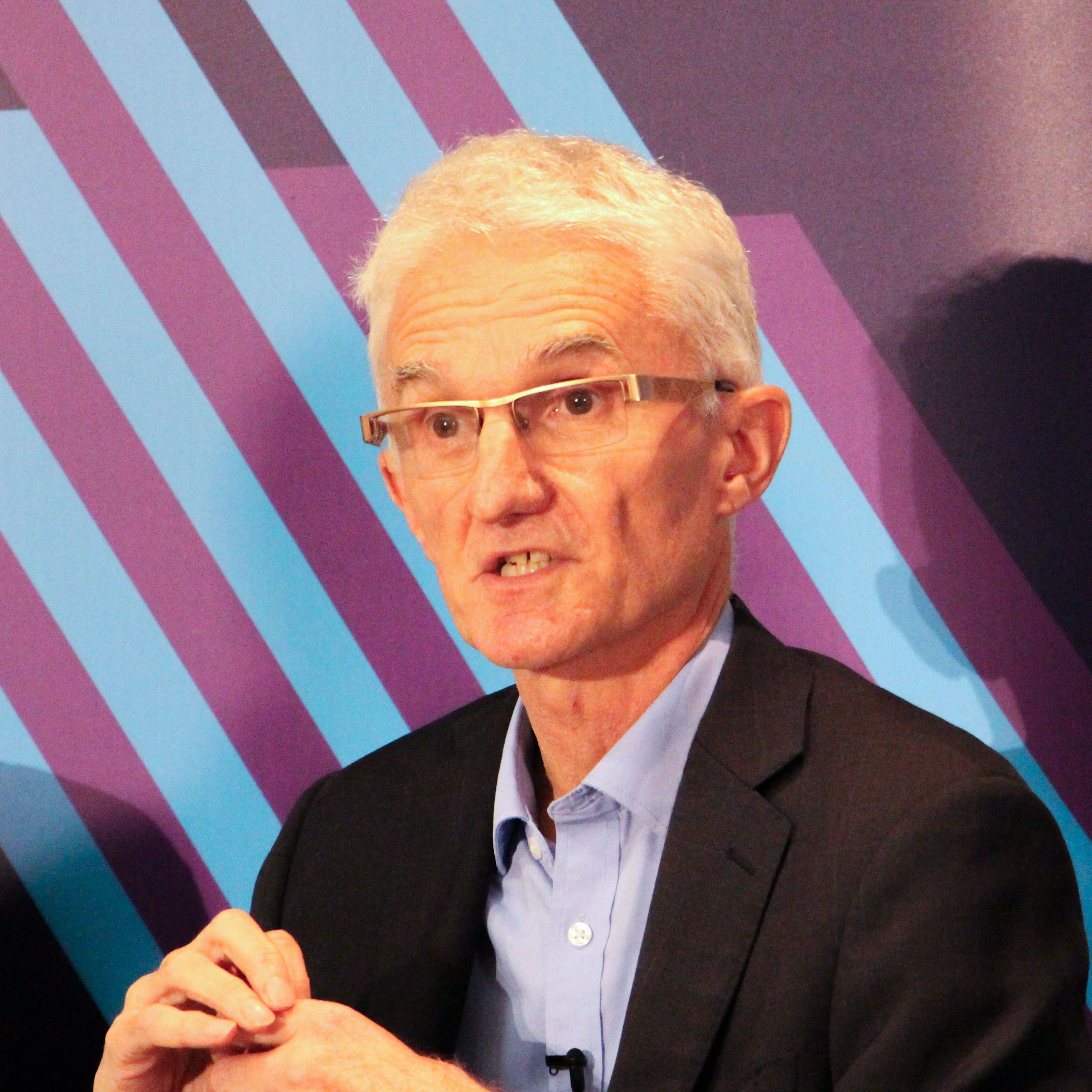 Institute for GovernmentLessons from the rise and fall of the Department for International DevelopmentFrom its creation in 1997 to its merger with the Foreign Office in 2020, the Department for International Development (DfID) managed nearly £200 billion in total and played a global leadership role in reducing poverty. While DfID also had to deal with high-profile failures and public criticism, sustained political support from Labour, coalition and Conservative governments helped the department to achieve a record of delivery during its 23-year existence.
A new book, The Rise and Fall of the Department for International Development, will be published in October. Sir Mark Lowcock, the book's co-author with Ranil Dissanayake, joined an expert panel at the Institute f...2024-10-241h 03
Institute for GovernmentLessons from the rise and fall of the Department for International DevelopmentFrom its creation in 1997 to its merger with the Foreign Office in 2020, the Department for International Development (DfID) managed nearly £200 billion in total and played a global leadership role in reducing poverty. While DfID also had to deal with high-profile failures and public criticism, sustained political support from Labour, coalition and Conservative governments helped the department to achieve a record of delivery during its 23-year existence.
A new book, The Rise and Fall of the Department for International Development, will be published in October. Sir Mark Lowcock, the book's co-author with Ranil Dissanayake, joined an expert panel at the Institute f...2024-10-241h 03 GovDiscovery AI Podcast with Mike ShanleyEp 35: UK Aid Market Funding & Elections Update Aron Cronin, Managing Director and Anthony Gardner, Principal Consultant at GIC Limited, join Mike Shanley to discuss the UK Aid Market and the impact of the elections. RESOURCES Subscribe to the FCDO Supplier Portal, enabling you to receive its weekly supplier engagement newsletter free of charge here. BIOGRAPHIES Aron Cronin established GIC Limited in 1991 where he is the Managing Director responsible for the firm and its services. Previously he led the London international development practice at Touche Ross Management Consultants (now Deloitte Consulting). He is an established consultancy practitioner who brings over 40 years’ experience of planning and managemen...2024-10-1530 min
GovDiscovery AI Podcast with Mike ShanleyEp 35: UK Aid Market Funding & Elections Update Aron Cronin, Managing Director and Anthony Gardner, Principal Consultant at GIC Limited, join Mike Shanley to discuss the UK Aid Market and the impact of the elections. RESOURCES Subscribe to the FCDO Supplier Portal, enabling you to receive its weekly supplier engagement newsletter free of charge here. BIOGRAPHIES Aron Cronin established GIC Limited in 1991 where he is the Managing Director responsible for the firm and its services. Previously he led the London international development practice at Touche Ross Management Consultants (now Deloitte Consulting). He is an established consultancy practitioner who brings over 40 years’ experience of planning and managemen...2024-10-1530 min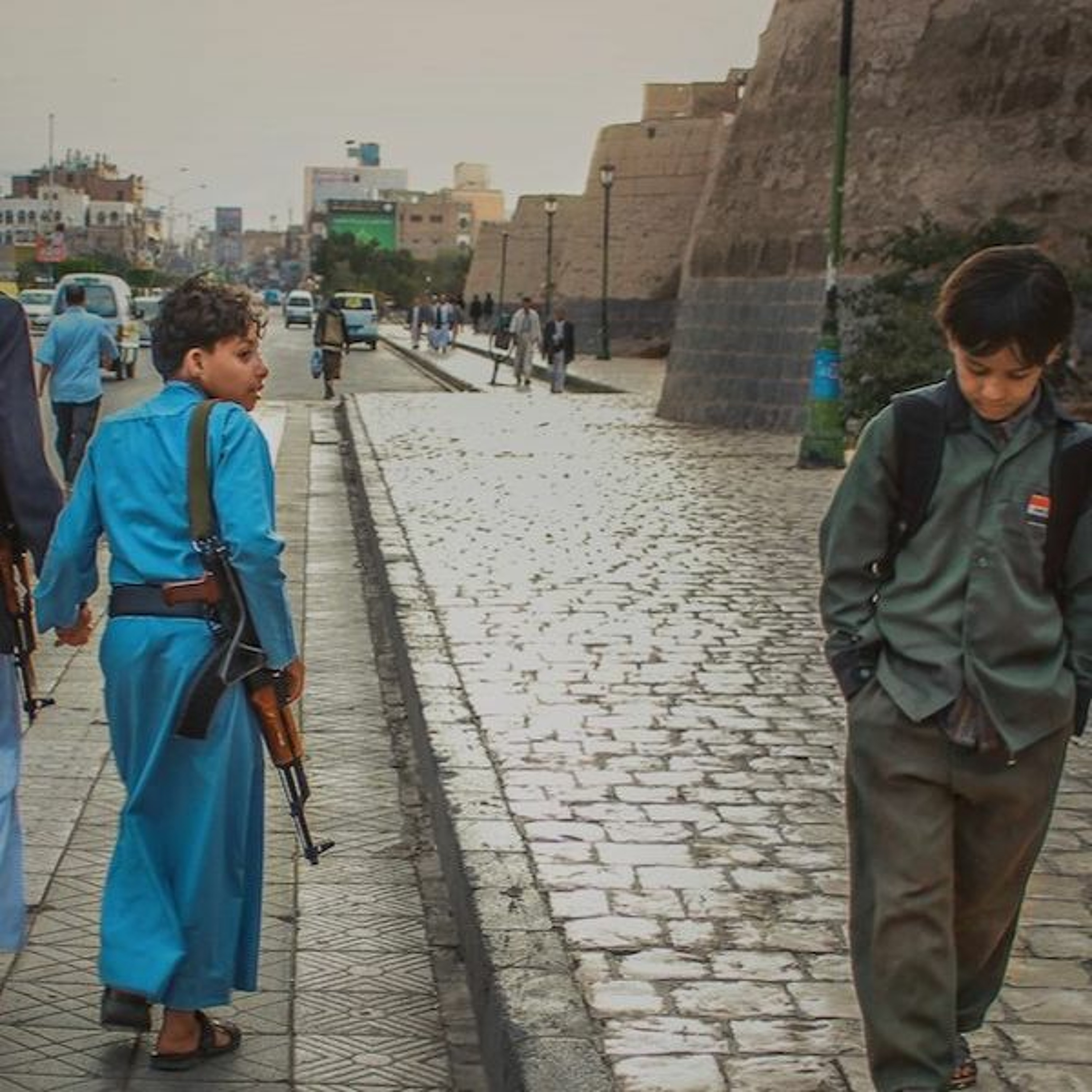 LSE Middle East Centre PodcastsNavigating the Crisis: Yemen 10 Years OnNearly ten years since the onset of the crisis in Yemen this discussion provided an in-depth assessment of the conflict over the past decade. Panellists examined the local origins of the war, the humanitarian catastrophe that has ensued, and the challenges for sustainable development given the prolonged violence. Regional dynamics fueling the crisis were also analysed, including factors related to the war in Gaza. With the March 2024 milestone approaching, speakers assessed stalled peace efforts and policy options for international stakeholders moving forward.
Ahmed Al Khameri is the Team Leader for the FCDO-funded programme, The Yemen Support Fund at Chemonics UK...2024-04-161h 02
LSE Middle East Centre PodcastsNavigating the Crisis: Yemen 10 Years OnNearly ten years since the onset of the crisis in Yemen this discussion provided an in-depth assessment of the conflict over the past decade. Panellists examined the local origins of the war, the humanitarian catastrophe that has ensued, and the challenges for sustainable development given the prolonged violence. Regional dynamics fueling the crisis were also analysed, including factors related to the war in Gaza. With the March 2024 milestone approaching, speakers assessed stalled peace efforts and policy options for international stakeholders moving forward.
Ahmed Al Khameri is the Team Leader for the FCDO-funded programme, The Yemen Support Fund at Chemonics UK...2024-04-161h 02 The Power Shift: Decolonising DevelopmentAfrica Rising: strong Africa-based Think Tanks with an Africa-centric development agenda. Mavis Owusu-Gyamfi interviewed.In this week’s episode, Mavis Owusu-Gyamfi from African Centre for Economic Transformation (ACET) de-centres the focus on racism and colonialism, and instead brings attention to the range of power dynamics present in the development and humanitarian ecosystems, including gender, class, and the historical origins of certain organisations.Mavis discusses the institutional sustainability of Global South-based organisations where they are often not considered the first choice by either Global North organisations or Africa-based governments and national partners, despite their considerable capacity.She describes the transformative approach ACET is implementing, through which African institutions work together to...2023-10-0444 min
The Power Shift: Decolonising DevelopmentAfrica Rising: strong Africa-based Think Tanks with an Africa-centric development agenda. Mavis Owusu-Gyamfi interviewed.In this week’s episode, Mavis Owusu-Gyamfi from African Centre for Economic Transformation (ACET) de-centres the focus on racism and colonialism, and instead brings attention to the range of power dynamics present in the development and humanitarian ecosystems, including gender, class, and the historical origins of certain organisations.Mavis discusses the institutional sustainability of Global South-based organisations where they are often not considered the first choice by either Global North organisations or Africa-based governments and national partners, despite their considerable capacity.She describes the transformative approach ACET is implementing, through which African institutions work together to...2023-10-0444 min Institute for GovernmentThe FCDO: is the reunification of foreign and development policy working?The Foreign, Commonwealth and Development Office (FCDO) was created by the merger of the Foreign and Commonwealth Office (FCO) and the Department for International Development (DfID) in 2020. Since then, the department has implemented a substantial cut to the UK’s aid budget, dealt with the foreign policy implications of Brexit, handled the UK’s presidency of the G7 and the COP climate conference, and responded to the Taliban takeover of Afghanistan and the Russian invasion of Ukraine.
But has the merger of the FCO and DfID been a success? Are the prime minister’s objectives being achieved by the FCDO? Does t...2022-05-201h 02
Institute for GovernmentThe FCDO: is the reunification of foreign and development policy working?The Foreign, Commonwealth and Development Office (FCDO) was created by the merger of the Foreign and Commonwealth Office (FCO) and the Department for International Development (DfID) in 2020. Since then, the department has implemented a substantial cut to the UK’s aid budget, dealt with the foreign policy implications of Brexit, handled the UK’s presidency of the G7 and the COP climate conference, and responded to the Taliban takeover of Afghanistan and the Russian invasion of Ukraine.
But has the merger of the FCO and DfID been a success? Are the prime minister’s objectives being achieved by the FCDO? Does t...2022-05-201h 02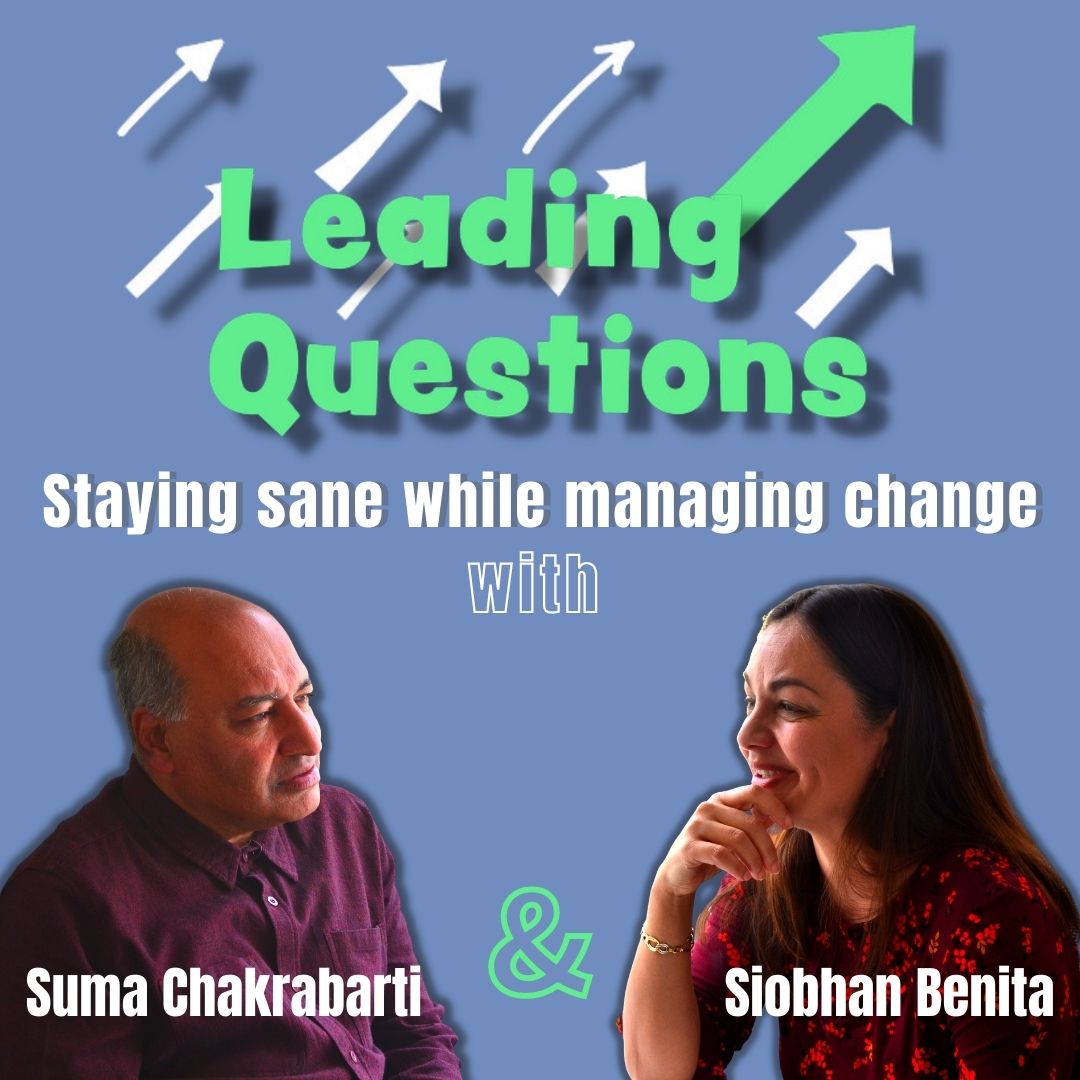 Leading QuestionsStaying sane while managing change in government – Suma Chakrabarti“You should never pick me for any job which is business as usual… I am my best or worst, depending on your point of view, when dealing with change.” From helping to establish the UK Department for International Development (DfID) after its separation from the Foreign and Commonwealth Office to managing a prisons crisis as justice department permanent secretary, Suma Chakrabarti has never been afraid to take on big, complex challenges. Quite the opposite – the opportunity to create change is, he says, what energises him. In this episode, Suma reflects on his long career in the UK civil service – which also...2022-05-1942 min
Leading QuestionsStaying sane while managing change in government – Suma Chakrabarti“You should never pick me for any job which is business as usual… I am my best or worst, depending on your point of view, when dealing with change.” From helping to establish the UK Department for International Development (DfID) after its separation from the Foreign and Commonwealth Office to managing a prisons crisis as justice department permanent secretary, Suma Chakrabarti has never been afraid to take on big, complex challenges. Quite the opposite – the opportunity to create change is, he says, what energises him. In this episode, Suma reflects on his long career in the UK civil service – which also...2022-05-1942 min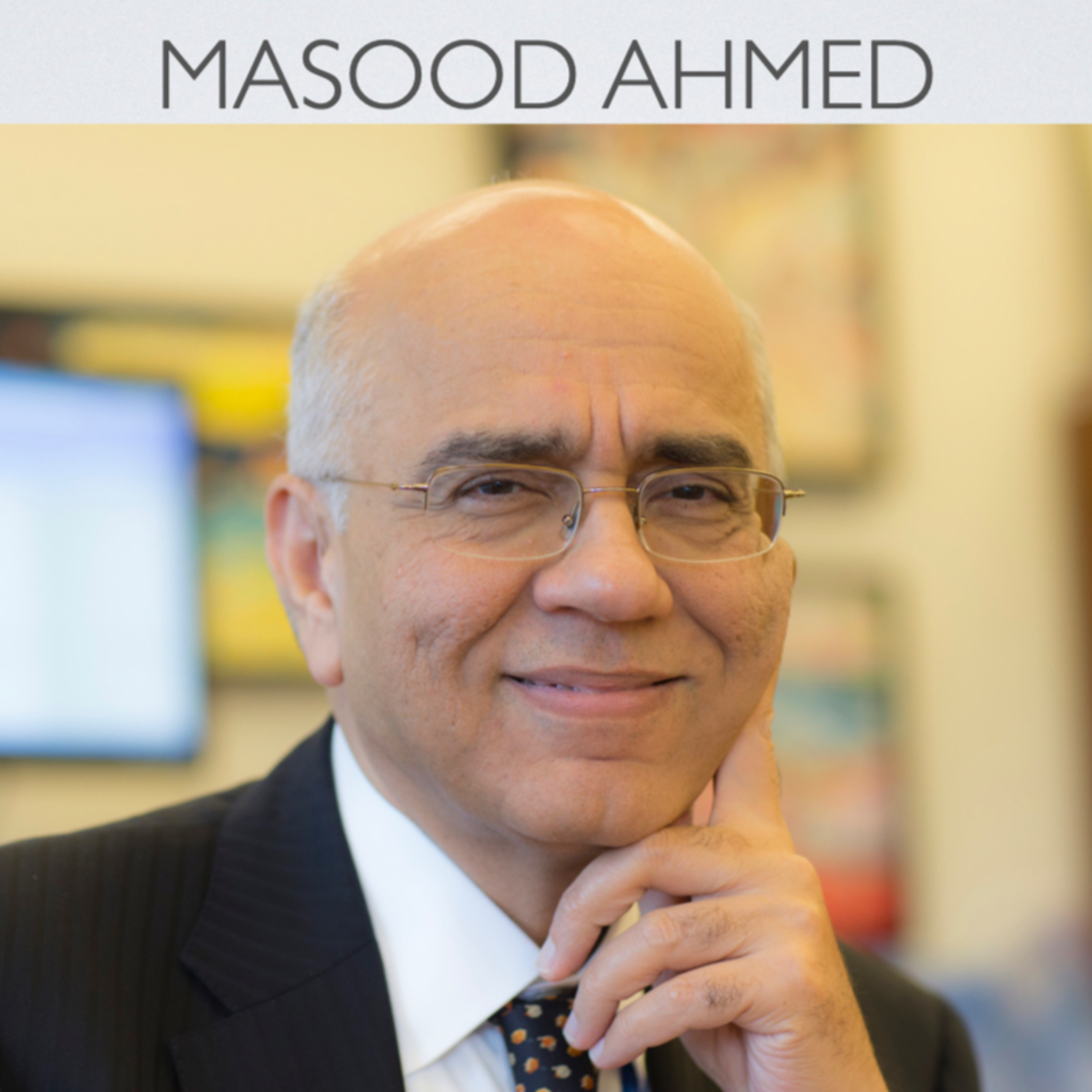 GDP - The Global Development PrimerThe World's Poor will Pay the Highest Price."We need global leadership in order to prevent starvation" wrote Masood Ahmed and former U.K. Prime Minister Gordon Brown in the Financial Times. COVID-19, and Russia's war in Ukraine have created massive disruptions to the world economy, and it will be world's poor who will pay the highest price. As the spring meetings of the International Monetary Fund and World Bank commence, Masood Ahmed provides a clarion call to world leaders to say that quick fixes and piecemeal policy will not fix our current global challenges. What is needed now, more than ever, is a commitment to building tru...2022-04-2633 min
GDP - The Global Development PrimerThe World's Poor will Pay the Highest Price."We need global leadership in order to prevent starvation" wrote Masood Ahmed and former U.K. Prime Minister Gordon Brown in the Financial Times. COVID-19, and Russia's war in Ukraine have created massive disruptions to the world economy, and it will be world's poor who will pay the highest price. As the spring meetings of the International Monetary Fund and World Bank commence, Masood Ahmed provides a clarion call to world leaders to say that quick fixes and piecemeal policy will not fix our current global challenges. What is needed now, more than ever, is a commitment to building tru...2022-04-2633 min Cutting Edge Issues in Development Thinking & PracticeS1, E7 Clare Short – Reflecting on the demise of DfIDGuest lecturer, Clare Short joins us to speak to us about "Reflecting on the demise of DfID". The lecture part of the LSE ID Cutting Edge Issues in Development Thinking & Practice series.2021-08-1944 min
Cutting Edge Issues in Development Thinking & PracticeS1, E7 Clare Short – Reflecting on the demise of DfIDGuest lecturer, Clare Short joins us to speak to us about "Reflecting on the demise of DfID". The lecture part of the LSE ID Cutting Edge Issues in Development Thinking & Practice series.2021-08-1944 min Leading QuestionsAdjusting your leadership to the grain of the organisation: in conversation with Baroness Minouche Shafik“You have to flex your leadership and you don’t really know how to do that until you’ve really understood the culture of the organisation.” Minouche Shafik was the youngest ever vice president of the World Bank. In 2008, she became permanent secretary of the Department for International Development (Dfid), before moving to the International Monetary Fund (IMF) as deputy managing director in 2011 only to find her new boss engulfed in scandal. From there, she became the deputy governor at the Bank of England and is currently director of the London School of Economics. Minouch...2021-08-0942 min
Leading QuestionsAdjusting your leadership to the grain of the organisation: in conversation with Baroness Minouche Shafik“You have to flex your leadership and you don’t really know how to do that until you’ve really understood the culture of the organisation.” Minouche Shafik was the youngest ever vice president of the World Bank. In 2008, she became permanent secretary of the Department for International Development (Dfid), before moving to the International Monetary Fund (IMF) as deputy managing director in 2011 only to find her new boss engulfed in scandal. From there, she became the deputy governor at the Bank of England and is currently director of the London School of Economics. Minouch...2021-08-0942 min Food Matters Live PodcastOne year on: has the government's obesity strategy helped?One year ago Table Talk Podcast host Stefan Gates sat down with members of the food industry and the UK government to hear about the new strategy that was intended to tackle a growing obesity epidemic in the country. One year on, what impact have the measures had, what will be adapted for the future, and is the strategy working?
Joining us to dissect the benefits of the UK obesity strategy, and to find out what further changes will be needed if we’re to become a healthier country in the future, are Dr. Jennifer Dixon, CEO, Health Foundation an...2021-08-0333 min
Food Matters Live PodcastOne year on: has the government's obesity strategy helped?One year ago Table Talk Podcast host Stefan Gates sat down with members of the food industry and the UK government to hear about the new strategy that was intended to tackle a growing obesity epidemic in the country. One year on, what impact have the measures had, what will be adapted for the future, and is the strategy working?
Joining us to dissect the benefits of the UK obesity strategy, and to find out what further changes will be needed if we’re to become a healthier country in the future, are Dr. Jennifer Dixon, CEO, Health Foundation an...2021-08-0333 min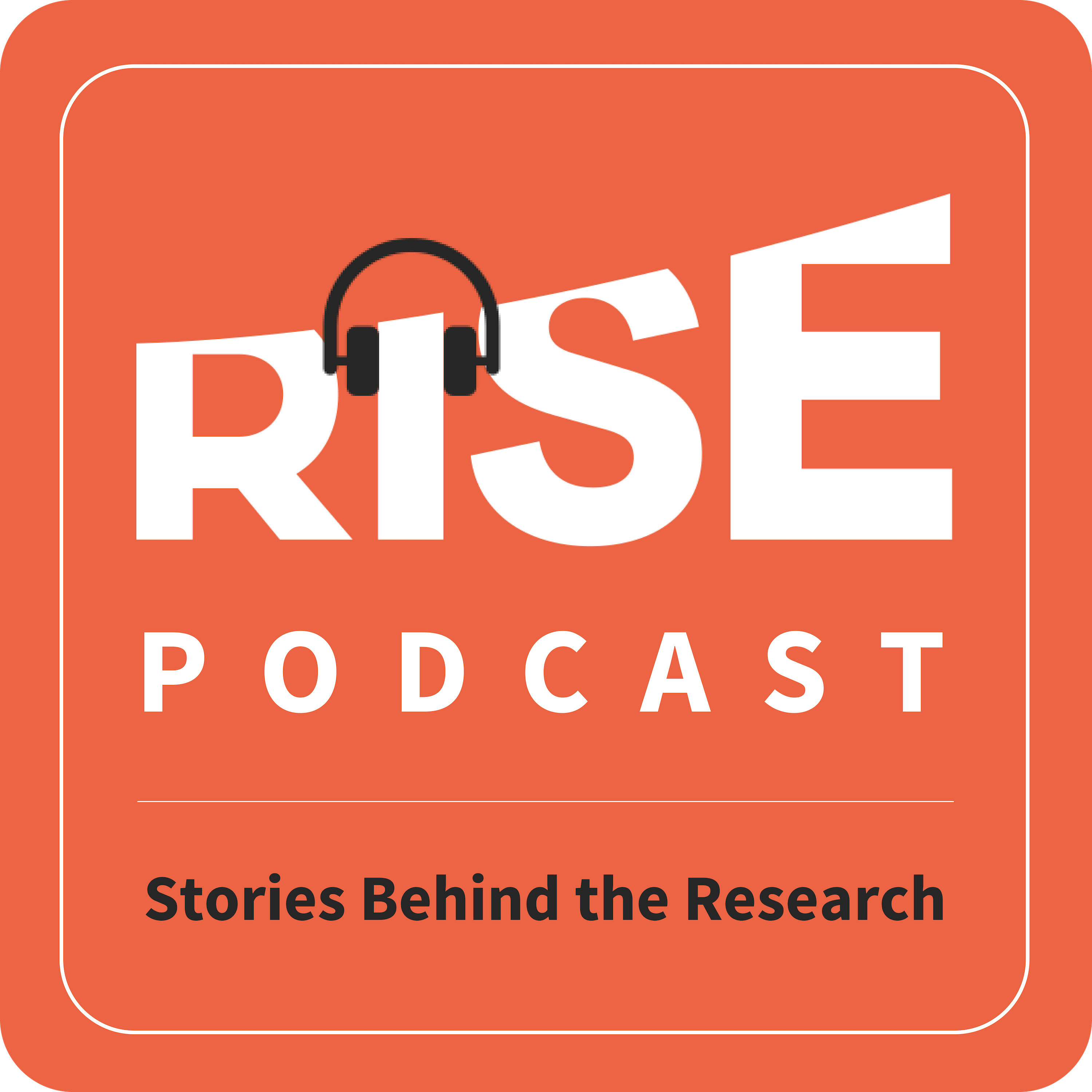 The RISE PodcastRachel Glennerster on cost effectiveness, and tackling systems issues at scaleThe second episode of the RISE Podcast features Dr Rachel Glennerster, Chief Economist at the UK’s Foreign, Commonwealth and Development Office (FCDO) in conversation with Laura Savage (Deputy Head of Education Research at the UK’s FCDO). During the episode, they discuss Rachel’s reflections on how good interventions can work in poor performing education systems, why we need to go beyond evidence of what works to think about cost effectiveness, and how to build incentives to tackle systems issues at scale. Links:Cost-Effective Approaches to Improve Global Learning : What Does Recent Evidence Tell Us Are “Smart Buys”...2021-07-2735 min
The RISE PodcastRachel Glennerster on cost effectiveness, and tackling systems issues at scaleThe second episode of the RISE Podcast features Dr Rachel Glennerster, Chief Economist at the UK’s Foreign, Commonwealth and Development Office (FCDO) in conversation with Laura Savage (Deputy Head of Education Research at the UK’s FCDO). During the episode, they discuss Rachel’s reflections on how good interventions can work in poor performing education systems, why we need to go beyond evidence of what works to think about cost effectiveness, and how to build incentives to tackle systems issues at scale. Links:Cost-Effective Approaches to Improve Global Learning : What Does Recent Evidence Tell Us Are “Smart Buys”...2021-07-2735 min CHANGE4JOY PodcastThe Story of Simon DobleInventor and social impact entrepreneur. Global specialist in creating innovative solar energy solutions for the humanitarian sector. Simon is the Founder and CEO of SolarBuddy committed to uniting a global community to gift six million solar lights to children living in energy poverty by 2030, to help them continue studying after dusk and to improve their educational outcomes. He is also the Founder of Boo Boo Bikes, a range of natural bamboo bikes handmade in Ghana, West Africa and assembled in Australia. Simon is also an author of 12 children’s books focused on child safety and pos...2021-05-2419 min
CHANGE4JOY PodcastThe Story of Simon DobleInventor and social impact entrepreneur. Global specialist in creating innovative solar energy solutions for the humanitarian sector. Simon is the Founder and CEO of SolarBuddy committed to uniting a global community to gift six million solar lights to children living in energy poverty by 2030, to help them continue studying after dusk and to improve their educational outcomes. He is also the Founder of Boo Boo Bikes, a range of natural bamboo bikes handmade in Ghana, West Africa and assembled in Australia. Simon is also an author of 12 children’s books focused on child safety and pos...2021-05-2419 min From AfRICA To The WorldS3 Ep2 Part 2 From AfRICA to the World with Yavi Madurai: in conversation with MAVIS OWUSU-GYAMFI of ACETThe conversation continues in Part 2...
S3 Ep2 From AfRICA to the World with Yavi Madurai: in conversation with MAVIS OWUSU-GYAMFI of ACET
The African Center for Economic Transformation (ACET) was founded in 2008, by Dr. K.Y. Amoako, with a central understanding – that Africa needs more than economic growth. Even as our continent makes steady economic gains, too many countries are not positioned to sustain their progress.
According to ACET, Africans continue to rely excessively on low-productivity agriculture for rural employment, and they have failed to develop strong manufacturing sectors. Exports are generally limited to...2021-03-2425 min
From AfRICA To The WorldS3 Ep2 Part 2 From AfRICA to the World with Yavi Madurai: in conversation with MAVIS OWUSU-GYAMFI of ACETThe conversation continues in Part 2...
S3 Ep2 From AfRICA to the World with Yavi Madurai: in conversation with MAVIS OWUSU-GYAMFI of ACET
The African Center for Economic Transformation (ACET) was founded in 2008, by Dr. K.Y. Amoako, with a central understanding – that Africa needs more than economic growth. Even as our continent makes steady economic gains, too many countries are not positioned to sustain their progress.
According to ACET, Africans continue to rely excessively on low-productivity agriculture for rural employment, and they have failed to develop strong manufacturing sectors. Exports are generally limited to...2021-03-2425 min From AfRICA To The WorldS3 Ep2 From AfRICA to the World with Yavi Madurai: in conversation with MAVIS OWUSU-GYAMFI of ACETS3 Ep2 From AfRICA to the World with Yavi Madurai: in conversation with MAVIS OWUSU-GYAMFI of ACET
The African Center for Economic Transformation (ACET) was founded in 2008, by Dr. K.Y. Amoako, with a central understanding – that Africa needs more than economic growth. Even as our continent makes steady economic gains, too many countries are not positioned to sustain their progress.
According to ACET, Africans continue to rely excessively on low-productivity agriculture for rural employment, and they have failed to develop strong manufacturing sectors. Exports are generally limited to a narrow range of agricultural commodities an...2021-03-0316 min
From AfRICA To The WorldS3 Ep2 From AfRICA to the World with Yavi Madurai: in conversation with MAVIS OWUSU-GYAMFI of ACETS3 Ep2 From AfRICA to the World with Yavi Madurai: in conversation with MAVIS OWUSU-GYAMFI of ACET
The African Center for Economic Transformation (ACET) was founded in 2008, by Dr. K.Y. Amoako, with a central understanding – that Africa needs more than economic growth. Even as our continent makes steady economic gains, too many countries are not positioned to sustain their progress.
According to ACET, Africans continue to rely excessively on low-productivity agriculture for rural employment, and they have failed to develop strong manufacturing sectors. Exports are generally limited to a narrow range of agricultural commodities an...2021-03-0316 min Food Matters Live PodcastHow can enabling “clean cooking” save millions of lives?1.8 billion people have access to electricity but still cook with biomass. Four million people die each year from Household Air Pollution. “Clean cooking” means cooking using non-polluting fuels. The Modern Energy Cooking Services (MECS) programme aims to rapidly accelerate the transition from biomass to clean cooking on a global scale.
To understand the problem, and what they are doing to facilitate change, we are joined by four experts from the programme, Prof Ed Brown, Nick Rousseau and Anh Tran from Loughborough University and Simon Batchelor Director of Gamos Ltd.
Join them to hear about the challenges they see and fi...2020-10-291h 00
Food Matters Live PodcastHow can enabling “clean cooking” save millions of lives?1.8 billion people have access to electricity but still cook with biomass. Four million people die each year from Household Air Pollution. “Clean cooking” means cooking using non-polluting fuels. The Modern Energy Cooking Services (MECS) programme aims to rapidly accelerate the transition from biomass to clean cooking on a global scale.
To understand the problem, and what they are doing to facilitate change, we are joined by four experts from the programme, Prof Ed Brown, Nick Rousseau and Anh Tran from Loughborough University and Simon Batchelor Director of Gamos Ltd.
Join them to hear about the challenges they see and fi...2020-10-291h 00 Shaping the Post-COVID WorldCivil Society Under Threat: COVID-19, authoritarianism and moreContributor(s): Dr Sergej Ljubownikow, Nicola Macbean, Dr Mariz Tadros | Since the launch of the global War on Terror, civil society has come under persistent threat. New laws restricting the spaces and activities of civil society have been passed across the world. The rise of populist regimes, increasing authoritarian tendencies and COVID-19 have further tightened controls over civil society. What does this mean for the future of a progressive civil society?
Sergej Ljubownikow (@SLjubownikow) is a lecturer at Sheffield University Management School, Sheffield, UK. His research focuses on civil society, the third sector, and the strategies and activities of nonprofit...2020-10-211h 26
Shaping the Post-COVID WorldCivil Society Under Threat: COVID-19, authoritarianism and moreContributor(s): Dr Sergej Ljubownikow, Nicola Macbean, Dr Mariz Tadros | Since the launch of the global War on Terror, civil society has come under persistent threat. New laws restricting the spaces and activities of civil society have been passed across the world. The rise of populist regimes, increasing authoritarian tendencies and COVID-19 have further tightened controls over civil society. What does this mean for the future of a progressive civil society?
Sergej Ljubownikow (@SLjubownikow) is a lecturer at Sheffield University Management School, Sheffield, UK. His research focuses on civil society, the third sector, and the strategies and activities of nonprofit...2020-10-211h 26 The Accord Research Alliance Podcast33. Why you need a Theory of Change: An interview with Nathan MalloneeToday one of our co-hosts goes on the other side of the mic. Kristen Check interviews Nathan Mallonee about why your organization should have a Theory of Change. Nathan provides details about the process he led at Living Water for developing a Theory of Change and the lessons learned along the way.
You can read Living Water's Theory of Change here: http://livingwater.box.com/toc
This podcast was actually recorded in 2019, but this topic is more relevant than ever during Covid-19 as outlined in this article from Better Evaluation: https://www.betterevaluation.org/en/blog/adapting-evaluation-time-covid-19-%E2%80%94-part-2...2020-08-2535 min
The Accord Research Alliance Podcast33. Why you need a Theory of Change: An interview with Nathan MalloneeToday one of our co-hosts goes on the other side of the mic. Kristen Check interviews Nathan Mallonee about why your organization should have a Theory of Change. Nathan provides details about the process he led at Living Water for developing a Theory of Change and the lessons learned along the way.
You can read Living Water's Theory of Change here: http://livingwater.box.com/toc
This podcast was actually recorded in 2019, but this topic is more relevant than ever during Covid-19 as outlined in this article from Better Evaluation: https://www.betterevaluation.org/en/blog/adapting-evaluation-time-covid-19-%E2%80%94-part-2...2020-08-2535 min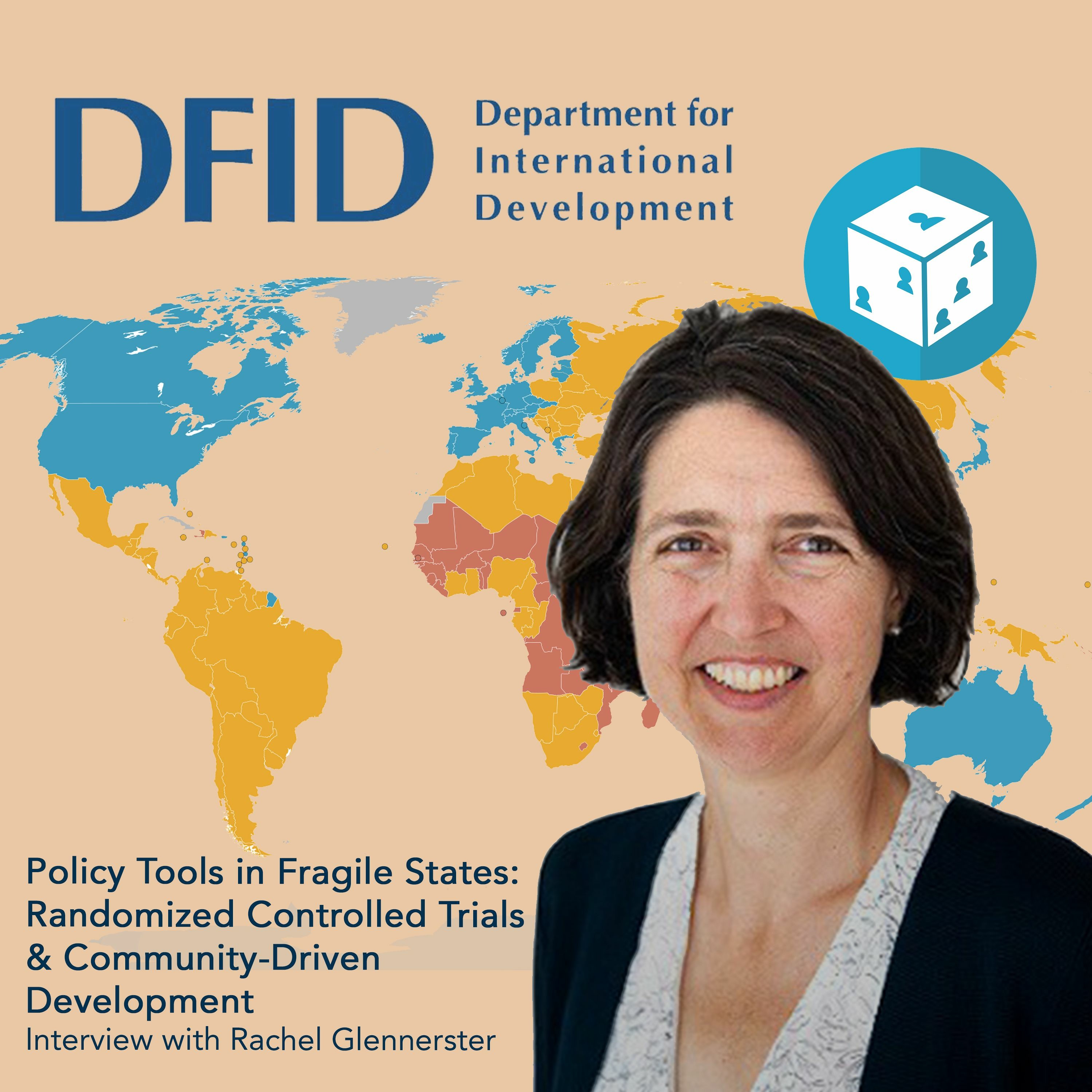 Policy PunchlinePolicy Tools in Fragile States: Randomized Controlled Trials and Community-Driven DevelopmentRachel Glennerster is the Chief Economist for the UK Department for International Development (DFID), which is the UK's ministry for international development cooperation. Previously, she was the Executive Director of J-PAL (the Jameel Poverty Action Lab) at MIT.
This March, Prof. Glennerster gave the closing keynote remarks at the 2020 annual conference at Julis-Rabinowitz Center for Public Policy and Finance, where she touched on challenges of working in fragile states and the linkages between the macro- and micro-levels. The economic policy tools used in advanced economies either do not exist or are ineffective in poor, conflict-afflicted areas. Shifts in macro-level policies...2020-08-171h 13
Policy PunchlinePolicy Tools in Fragile States: Randomized Controlled Trials and Community-Driven DevelopmentRachel Glennerster is the Chief Economist for the UK Department for International Development (DFID), which is the UK's ministry for international development cooperation. Previously, she was the Executive Director of J-PAL (the Jameel Poverty Action Lab) at MIT.
This March, Prof. Glennerster gave the closing keynote remarks at the 2020 annual conference at Julis-Rabinowitz Center for Public Policy and Finance, where she touched on challenges of working in fragile states and the linkages between the macro- and micro-levels. The economic policy tools used in advanced economies either do not exist or are ineffective in poor, conflict-afflicted areas. Shifts in macro-level policies...2020-08-171h 13 LSE Middle East Centre PodcastsIran in Iraq: The Limits of Smart Power Amidst Public ProtestThis event is the launch of Dr Jessica Watkins' latest paper Iran in Iraq: The Limits of 'Smart Power' Amidst Public Protest.
Post 2003, Iran has shown greater aptitude than Western states for penetrating Iraqi politics and society, producing ‘smart power’ by manipulating the combination of identity politics, patronage networks, and coercion which have become prevalent in both. But Iranian interference has been a major source of grievance for Iraqis since the outbreak of the October 2019 popular protests, undermining the Islamic Republic’s non-coercive influence.
This paper situates Iran’s influence-gaining strategies in Iraq within its broader regional foreign policy objectives. Focusing...2020-07-311h 04
LSE Middle East Centre PodcastsIran in Iraq: The Limits of Smart Power Amidst Public ProtestThis event is the launch of Dr Jessica Watkins' latest paper Iran in Iraq: The Limits of 'Smart Power' Amidst Public Protest.
Post 2003, Iran has shown greater aptitude than Western states for penetrating Iraqi politics and society, producing ‘smart power’ by manipulating the combination of identity politics, patronage networks, and coercion which have become prevalent in both. But Iranian interference has been a major source of grievance for Iraqis since the outbreak of the October 2019 popular protests, undermining the Islamic Republic’s non-coercive influence.
This paper situates Iran’s influence-gaining strategies in Iraq within its broader regional foreign policy objectives. Focusing...2020-07-311h 04 Point of InformationWill the DFID/FCO merger ruin the UK internationally?This week, our writers discuss the impacts of the DFID/FCO merger, and whether or not it will improve the UK’s foreign aid2020-07-1121 min
Point of InformationWill the DFID/FCO merger ruin the UK internationally?This week, our writers discuss the impacts of the DFID/FCO merger, and whether or not it will improve the UK’s foreign aid2020-07-1121 min Global Health Perspectives with Derek YachVilloo Morawala-PatellDr. Villoo Morawala-Patell, Founder and CMD of Avesthagen Limited and The Avestagenome Project® is an innovator, involved in international biotechnology development, academic and corporate leadership with a longstanding interest in global development leading to establishment of global networks and alliances with academia and industry. She is an experienced deal maker having raised capital from PE and strategic financing with firms and foundations globally.
Dr. Villoo Patell is the recipient of many awards of international and national acclaim as a scientist and as an entrepreneur including the French National Order “L’officier du Merite”, ‘Karmaveer Puraskar’ award, “Parsi Entrepreneur par Excellence Award”, “Outs...2020-07-0600 min
Global Health Perspectives with Derek YachVilloo Morawala-PatellDr. Villoo Morawala-Patell, Founder and CMD of Avesthagen Limited and The Avestagenome Project® is an innovator, involved in international biotechnology development, academic and corporate leadership with a longstanding interest in global development leading to establishment of global networks and alliances with academia and industry. She is an experienced deal maker having raised capital from PE and strategic financing with firms and foundations globally.
Dr. Villoo Patell is the recipient of many awards of international and national acclaim as a scientist and as an entrepreneur including the French National Order “L’officier du Merite”, ‘Karmaveer Puraskar’ award, “Parsi Entrepreneur par Excellence Award”, “Outs...2020-07-0600 min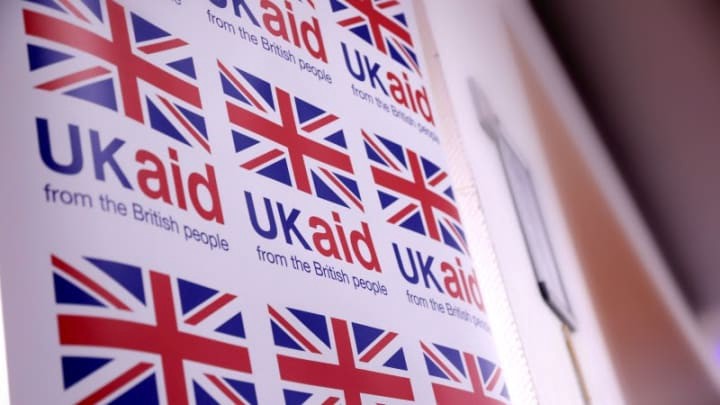 No Man’s Land PodcastDFID abolished and Global Britain, with Laura Round.Former DFID Special Adviser Laura Round joins Martin and Steve to discuss the thinking behind the merger of DFID and the Foreign Office and what Global Britain means.
2020-06-2633 min
No Man’s Land PodcastDFID abolished and Global Britain, with Laura Round.Former DFID Special Adviser Laura Round joins Martin and Steve to discuss the thinking behind the merger of DFID and the Foreign Office and what Global Britain means.
2020-06-2633 min Partly Political BroadcastMoney For Nothing - Alert Level 3, Track And Trace Not App'ning and Maurice Mcleod on BLM, the racial equality commission and DfIDI wish I could get £11m to develop an app that doesn't work, I reckon I'd even do it months quicker than anyone Matt Hancock has hired so far. On the up side, we're at alert level 3 now, on account of there being no scientists allowed to tell us otherwise. Plus a special guest star of all the hayfever in Tiernan's face and a chat with Maurice Mcleod (@mowords) about BLM, the racial equality commission and DfID.RACE ON THE AGENDA: https://www.rota.org.uk/FOLLOW RACE ON THE AGENDA ON TWITTER: @raceontheagenda2020-06-231h 04
Partly Political BroadcastMoney For Nothing - Alert Level 3, Track And Trace Not App'ning and Maurice Mcleod on BLM, the racial equality commission and DfIDI wish I could get £11m to develop an app that doesn't work, I reckon I'd even do it months quicker than anyone Matt Hancock has hired so far. On the up side, we're at alert level 3 now, on account of there being no scientists allowed to tell us otherwise. Plus a special guest star of all the hayfever in Tiernan's face and a chat with Maurice Mcleod (@mowords) about BLM, the racial equality commission and DfID.RACE ON THE AGENDA: https://www.rota.org.uk/FOLLOW RACE ON THE AGENDA ON TWITTER: @raceontheagenda2020-06-231h 04 From Poverty to PowerDevelopment Nutshell: audio round-up (15m) of FP2P posts, w/b 15th JuneLinks I Liked; Aid, Development & Racism; The DFID-FCO merger; Transforming Oxfam and International NGOs; Civil Society Organizations and the Pandemic2020-06-2012 min
From Poverty to PowerDevelopment Nutshell: audio round-up (15m) of FP2P posts, w/b 15th JuneLinks I Liked; Aid, Development & Racism; The DFID-FCO merger; Transforming Oxfam and International NGOs; Civil Society Organizations and the Pandemic2020-06-2012 min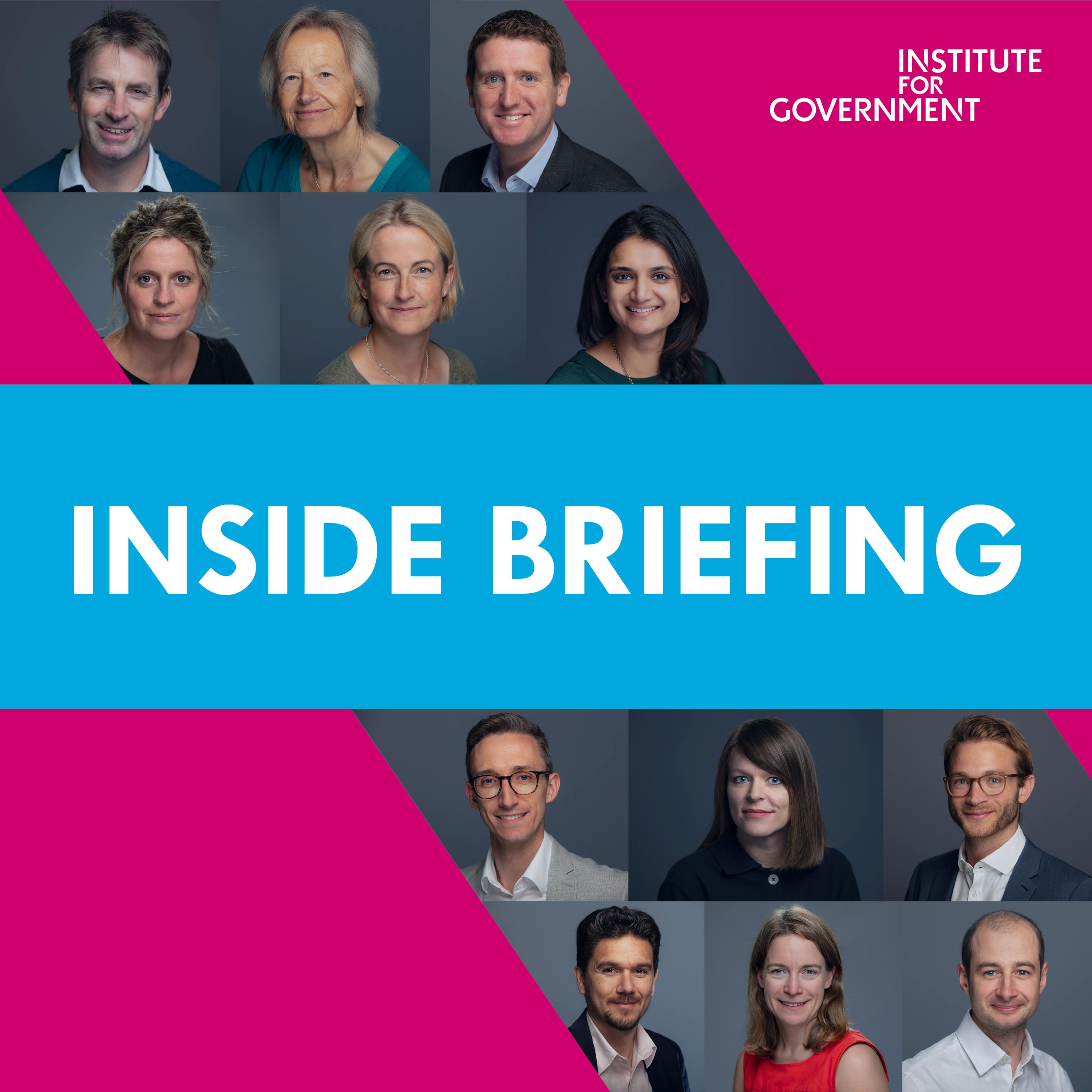 Inside Briefing with the Institute for GovernmentU-Turn When You Don’t Want ToHow did the Government end up completely wrong-footed by a footballer in the issue of extending free school meals? Are ministers getting broad enough – and sufficiently independent – scientific advice when it comes to quarantine and the 2m Rule? Will the folding of the “world-beating development agency” DFiD into the Foreign Office mean damage British soft power? And will insourcing probation reverse the “total disaster” of outsourcing?
“The Marcus Rashford episode shows a lack of political antenna in Downing Street.” – Jill Rutter
“A government with an 80-strong majority is now being pulled around by its backbenchers.” – Cath Haddon
“What we’re se...2020-06-1935 min
Inside Briefing with the Institute for GovernmentU-Turn When You Don’t Want ToHow did the Government end up completely wrong-footed by a footballer in the issue of extending free school meals? Are ministers getting broad enough – and sufficiently independent – scientific advice when it comes to quarantine and the 2m Rule? Will the folding of the “world-beating development agency” DFiD into the Foreign Office mean damage British soft power? And will insourcing probation reverse the “total disaster” of outsourcing?
“The Marcus Rashford episode shows a lack of political antenna in Downing Street.” – Jill Rutter
“A government with an 80-strong majority is now being pulled around by its backbenchers.” – Cath Haddon
“What we’re se...2020-06-1935 min Iain Dale - The Whole ShowFree school meals U-turn after Marcus Rashford campaign & DfID to merge with Foreign OfficeFree school meals U-turn after Marcus Rashford campaign & DfID to merge with Foreign Office2020-06-162h 17
Iain Dale - The Whole ShowFree school meals U-turn after Marcus Rashford campaign & DfID to merge with Foreign OfficeFree school meals U-turn after Marcus Rashford campaign & DfID to merge with Foreign Office2020-06-162h 17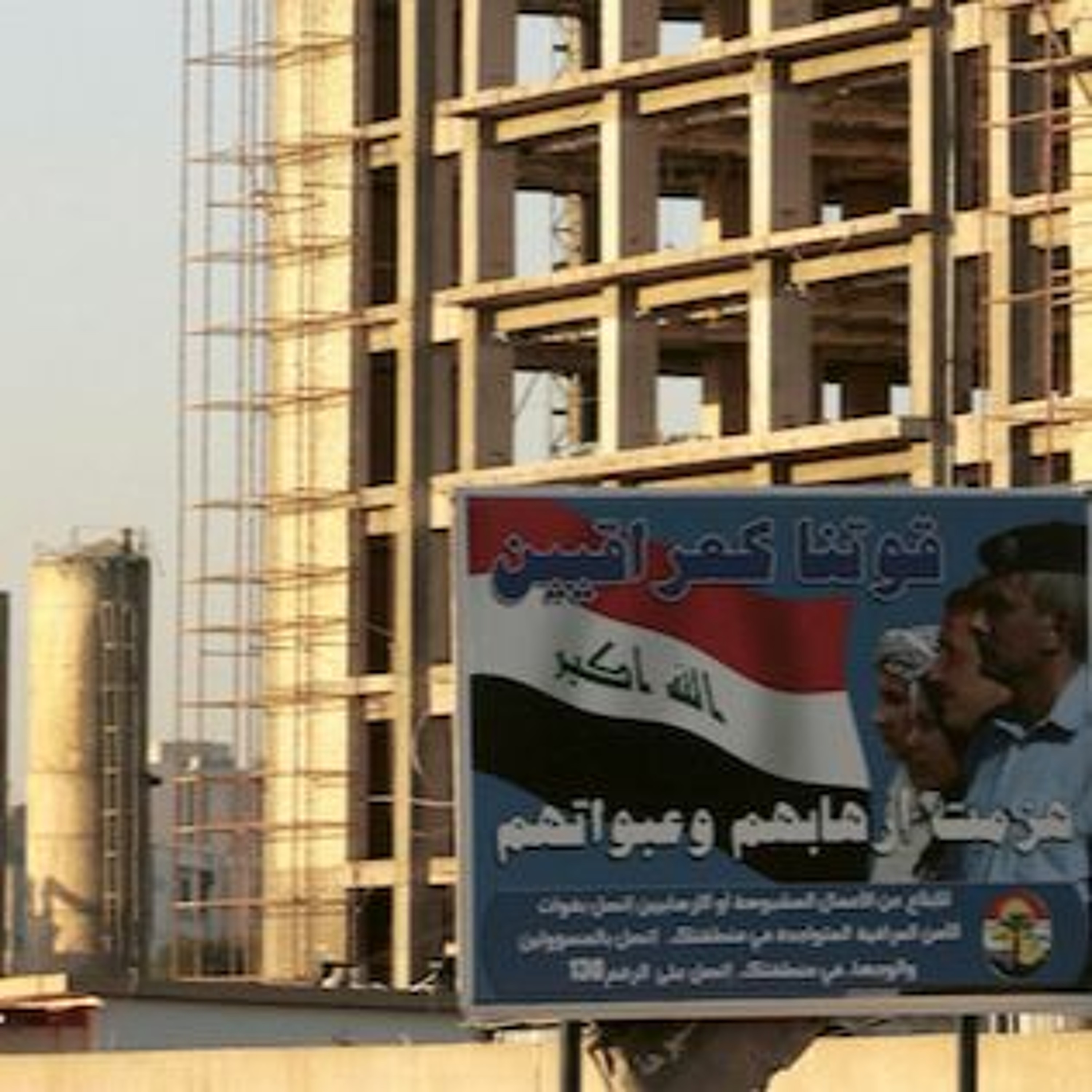 LSE Middle East Centre PodcastsThe Political Economy of Economic Policy in IraqPLEASE NOTE: Unfortunately we had some technical difficulties towards the end of the webinar which meant that the recording had to be cut off early.
Since 2003, despite an abundance of resources and a more pluralistic political settlement, Iraq’s economic reform process has failed to take off.
Alexander Hamilton's new paper explores the link between the evolution and consolidation of Iraq’s post-2003 political settlement and how this has impacted the incentives decision-makers face when implementing economic policy. Paradoxically, the fact that the settlement has accommodated more groups than its repressive predecessor has not resulted in more inclusive or long-term orie...2020-06-051h 08
LSE Middle East Centre PodcastsThe Political Economy of Economic Policy in IraqPLEASE NOTE: Unfortunately we had some technical difficulties towards the end of the webinar which meant that the recording had to be cut off early.
Since 2003, despite an abundance of resources and a more pluralistic political settlement, Iraq’s economic reform process has failed to take off.
Alexander Hamilton's new paper explores the link between the evolution and consolidation of Iraq’s post-2003 political settlement and how this has impacted the incentives decision-makers face when implementing economic policy. Paradoxically, the fact that the settlement has accommodated more groups than its repressive predecessor has not resulted in more inclusive or long-term orie...2020-06-051h 08 VoxTalks EconomicsStructural transformation and economic growthThis week the CEPR launches a new research programme called STEG - Structural Transformation and Economic Growth. Ahead of the kick-off workshop on June 4 and 5, Joe Kaboski and Doug Gollin tell Tim Phillips what STEG hopes to achieve, and Rachel Glennerster explains why DFID is funding it.
Register for the workshop or discover STEG here.2020-06-0314 min
VoxTalks EconomicsStructural transformation and economic growthThis week the CEPR launches a new research programme called STEG - Structural Transformation and Economic Growth. Ahead of the kick-off workshop on June 4 and 5, Joe Kaboski and Doug Gollin tell Tim Phillips what STEG hopes to achieve, and Rachel Glennerster explains why DFID is funding it.
Register for the workshop or discover STEG here.2020-06-0314 min So I Was Thinking: A Podcast about Living Your Best LifeEpisode 5: ...How should one deal with change?So I Was Thinking... How does one deal with transitions?That's what we talk about today in this episode, as Bas interviews Dylan, a friend from Penn. During the interview, Dylan talks about the initial culture shock of coming to America from Canada, as well as his current transition into working, and even switching jobs. He also reflects on how his experience playing sports has shaped his attitudes and thoughts on life. The two also discuss mental health awareness and the plight of suicide that is affecting this society. We end with some of Dylan's motivations and...2020-05-1245 min
So I Was Thinking: A Podcast about Living Your Best LifeEpisode 5: ...How should one deal with change?So I Was Thinking... How does one deal with transitions?That's what we talk about today in this episode, as Bas interviews Dylan, a friend from Penn. During the interview, Dylan talks about the initial culture shock of coming to America from Canada, as well as his current transition into working, and even switching jobs. He also reflects on how his experience playing sports has shaped his attitudes and thoughts on life. The two also discuss mental health awareness and the plight of suicide that is affecting this society. We end with some of Dylan's motivations and...2020-05-1245 min Uplift PodcastEpisode 8 : Clarity of Purpose with Emdee TiamiyuMubarak Damilare Tiamiyu (Emdee) is a Data Management Consultant at Adam Smith International West Africa (ASIWA) where he oversees the Database Access, Integration & Needs of Mafita – a DFID-Funded Project that empowers 40,000 marginalized youths in North-Western Nigeria with economic opportunities. Prior to joining Adam Smith International, Emdee had previously worked at various technology companies including a Multi-national ICT training firm and the National Youth Service Corps (NYSC) Headquarters, Abuja. He is credited for his work in developing NYSC’s first and official mobile application that helps 70,000 Youth Corps members in Nigeria “stay out of trouble” through the provision of Health, Financia...2020-05-1042 min
Uplift PodcastEpisode 8 : Clarity of Purpose with Emdee TiamiyuMubarak Damilare Tiamiyu (Emdee) is a Data Management Consultant at Adam Smith International West Africa (ASIWA) where he oversees the Database Access, Integration & Needs of Mafita – a DFID-Funded Project that empowers 40,000 marginalized youths in North-Western Nigeria with economic opportunities. Prior to joining Adam Smith International, Emdee had previously worked at various technology companies including a Multi-national ICT training firm and the National Youth Service Corps (NYSC) Headquarters, Abuja. He is credited for his work in developing NYSC’s first and official mobile application that helps 70,000 Youth Corps members in Nigeria “stay out of trouble” through the provision of Health, Financia...2020-05-1042 min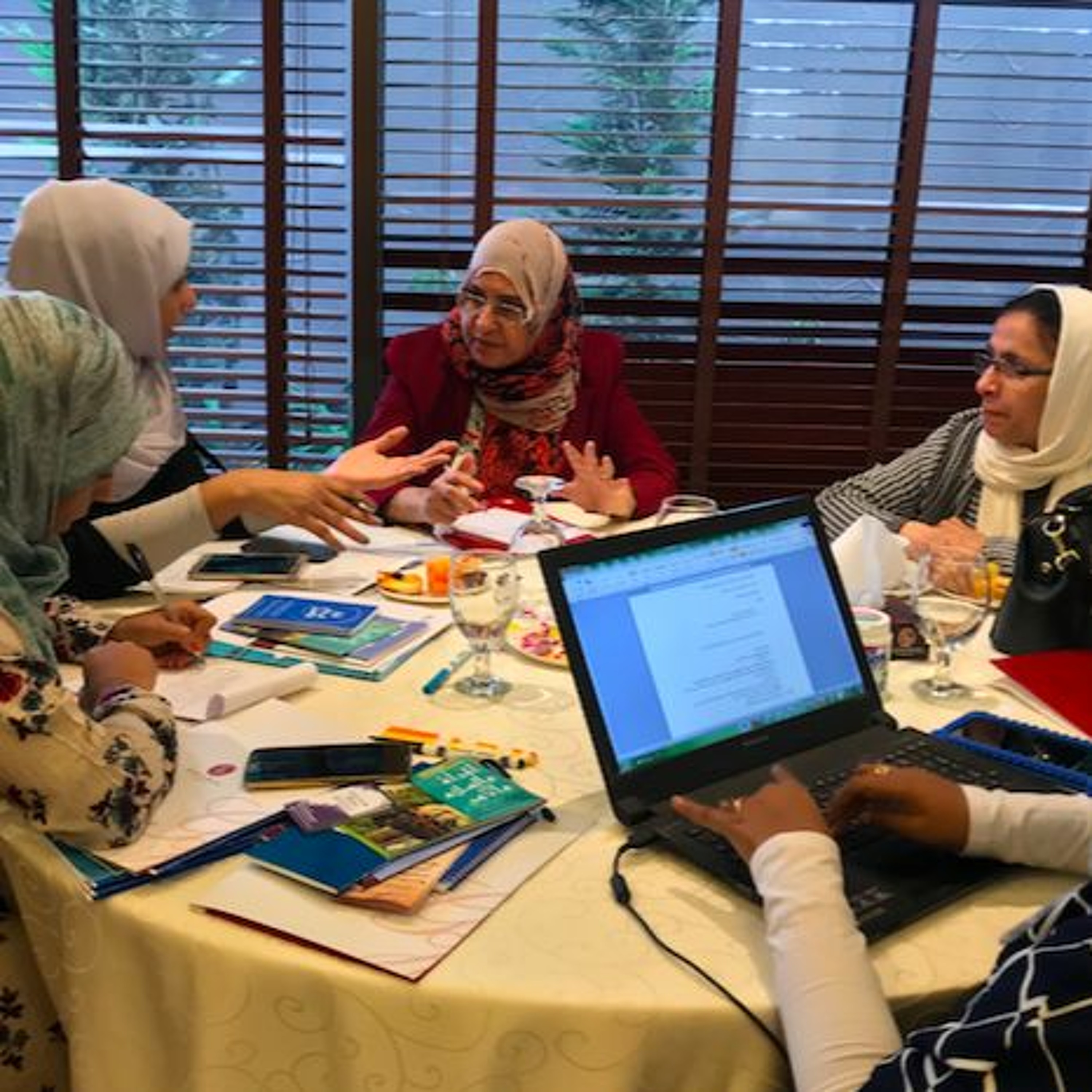 LSE Middle East Centre PodcastsYemen: Lessons from the Past and Opportunities for an Inclusive Peace AgreementThe United Nations Security Council endorsed the UN Secretary-General's call last month for warring parties in Yemen to immediately cease fighting and focus on reaching a peace agreement whilst countering the outbreak of the coronavirus. The coalition, led by Saudi Arabia, responded with a two week ceasefire which was renewed for another month. While the cross border hostilities de-escalated, the conflict fronts inside Yemen continued to boil.
This event will reflect on the challenges and possibilities for a comprehensive and inclusive peace agreement in Yemen. The speakers will discuss lessons learned from previous peace talks and ceasefire initiatives. They will...2020-05-011h 23
LSE Middle East Centre PodcastsYemen: Lessons from the Past and Opportunities for an Inclusive Peace AgreementThe United Nations Security Council endorsed the UN Secretary-General's call last month for warring parties in Yemen to immediately cease fighting and focus on reaching a peace agreement whilst countering the outbreak of the coronavirus. The coalition, led by Saudi Arabia, responded with a two week ceasefire which was renewed for another month. While the cross border hostilities de-escalated, the conflict fronts inside Yemen continued to boil.
This event will reflect on the challenges and possibilities for a comprehensive and inclusive peace agreement in Yemen. The speakers will discuss lessons learned from previous peace talks and ceasefire initiatives. They will...2020-05-011h 23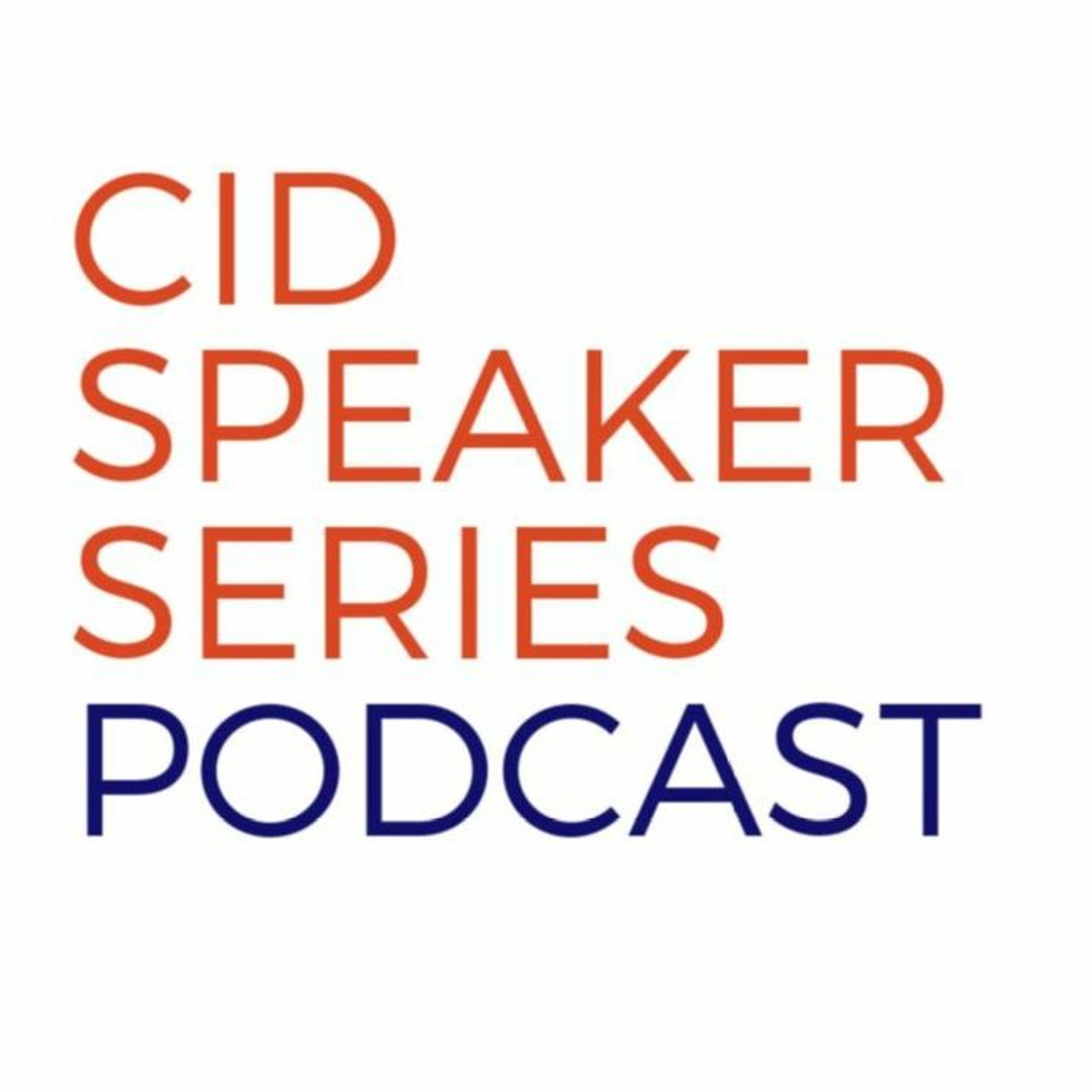 Harvard Center for International DevelopmentMacroeconomic Stability and Long-Term Growth: Lessons from JordanOn this week's Speaker Series podcast, we are joined by Miguel Angel Santos, Adjunct Lecturer in Public Policy at Harvard Kennedy School of Government and Director of Applied Research at CID's Growth Lab, as well as Tim O’Brien, Senior Manager of Applied Research at CID's Growth Lab. Miguel and Tim sat down with CID Student Ambassador Valeria Mendiola to discuss their research from Jordan on Macroeconomic Stability and Long-Term Growth.
ABOUT THE TALK
From February 2018 through September 2019, the Growth Lab conducted an applied research project in Jordan centered on understanding and addressing the country’s macroeconomic disequilibria and identifying the...2020-02-1217 min
Harvard Center for International DevelopmentMacroeconomic Stability and Long-Term Growth: Lessons from JordanOn this week's Speaker Series podcast, we are joined by Miguel Angel Santos, Adjunct Lecturer in Public Policy at Harvard Kennedy School of Government and Director of Applied Research at CID's Growth Lab, as well as Tim O’Brien, Senior Manager of Applied Research at CID's Growth Lab. Miguel and Tim sat down with CID Student Ambassador Valeria Mendiola to discuss their research from Jordan on Macroeconomic Stability and Long-Term Growth.
ABOUT THE TALK
From February 2018 through September 2019, the Growth Lab conducted an applied research project in Jordan centered on understanding and addressing the country’s macroeconomic disequilibria and identifying the...2020-02-1217 min Research TalksEpisode 2: Scaling Up Nutrition for the Poor in BangladeshHow do you translate research findings into a robust, pro-poor national program?
This episode features IFPRI’s Senior Research Fellow and Bangladesh Country Representative Akhter Ahmed ( https://www.ifpri.org/profile/akhter-ahmed ), who in a conversation with Sivan Yosef ( https://www.ifpri.org/profile/sivan-yosef ), shares the inspiring story of ANGeL, an intervention that used agriculture, nutrition, and gender trainings to directly help and empower poor people. The government of Bangladesh is now implementing ANGeL nationwide.
Read more about the ANGel Project : https://www.ifpri.org/project/agriculture-nutrition-and-gender-linkages-angel
Donors & Partners: Government of Bangladesh, BIDS, USAID, BMGF, A4NH, PIM, DFID, Un...2020-02-1000 min
Research TalksEpisode 2: Scaling Up Nutrition for the Poor in BangladeshHow do you translate research findings into a robust, pro-poor national program?
This episode features IFPRI’s Senior Research Fellow and Bangladesh Country Representative Akhter Ahmed ( https://www.ifpri.org/profile/akhter-ahmed ), who in a conversation with Sivan Yosef ( https://www.ifpri.org/profile/sivan-yosef ), shares the inspiring story of ANGeL, an intervention that used agriculture, nutrition, and gender trainings to directly help and empower poor people. The government of Bangladesh is now implementing ANGeL nationwide.
Read more about the ANGel Project : https://www.ifpri.org/project/agriculture-nutrition-and-gender-linkages-angel
Donors & Partners: Government of Bangladesh, BIDS, USAID, BMGF, A4NH, PIM, DFID, Un...2020-02-1000 min LSE Middle East Centre PodcastsThe Assassination of Qasim Soleimani and Abu Mahdi al-Muhandis: National and Regional ConsequencesThis event will explore the fallout of the recent murders of Qasim Soleimani, Commander of the Quds Force of Iran’s Islamic Revolutionary Guard Corps, and Abu Mahdi al-Muhandis, the senior commander of al-Hashd al-Shaabi and the founder of Kata'ib Hezbollah.
The assassination, on 2 January 2020, of Qasim Soleimani and Abu Mahdi al-Muhandis has thrown Iraqi and wider regional politics into turmoil. Soleimani was one of the most senior figures controlling Iranian foreign policy. Al-Muhandis, as the senior military commander in al-Hashd al-Shaabi, wielded as much if not more influence in Iraq than any other government figure.
The speakers will discuss th...2020-01-281h 20
LSE Middle East Centre PodcastsThe Assassination of Qasim Soleimani and Abu Mahdi al-Muhandis: National and Regional ConsequencesThis event will explore the fallout of the recent murders of Qasim Soleimani, Commander of the Quds Force of Iran’s Islamic Revolutionary Guard Corps, and Abu Mahdi al-Muhandis, the senior commander of al-Hashd al-Shaabi and the founder of Kata'ib Hezbollah.
The assassination, on 2 January 2020, of Qasim Soleimani and Abu Mahdi al-Muhandis has thrown Iraqi and wider regional politics into turmoil. Soleimani was one of the most senior figures controlling Iranian foreign policy. Al-Muhandis, as the senior military commander in al-Hashd al-Shaabi, wielded as much if not more influence in Iraq than any other government figure.
The speakers will discuss th...2020-01-281h 20 From Poverty to PowerCan DFID survive? 2019 in review + other FP2P posts. Audio round up for w/b 6th JanAudio summary (15m) of the week's posts on the FP2P blog. Including reader stats and top posts for 2019, the year in Africa, a row over who shd control the UK's aid programme, the power of maps and why architecture matters2020-01-1113 min
From Poverty to PowerCan DFID survive? 2019 in review + other FP2P posts. Audio round up for w/b 6th JanAudio summary (15m) of the week's posts on the FP2P blog. Including reader stats and top posts for 2019, the year in Africa, a row over who shd control the UK's aid programme, the power of maps and why architecture matters2020-01-1113 min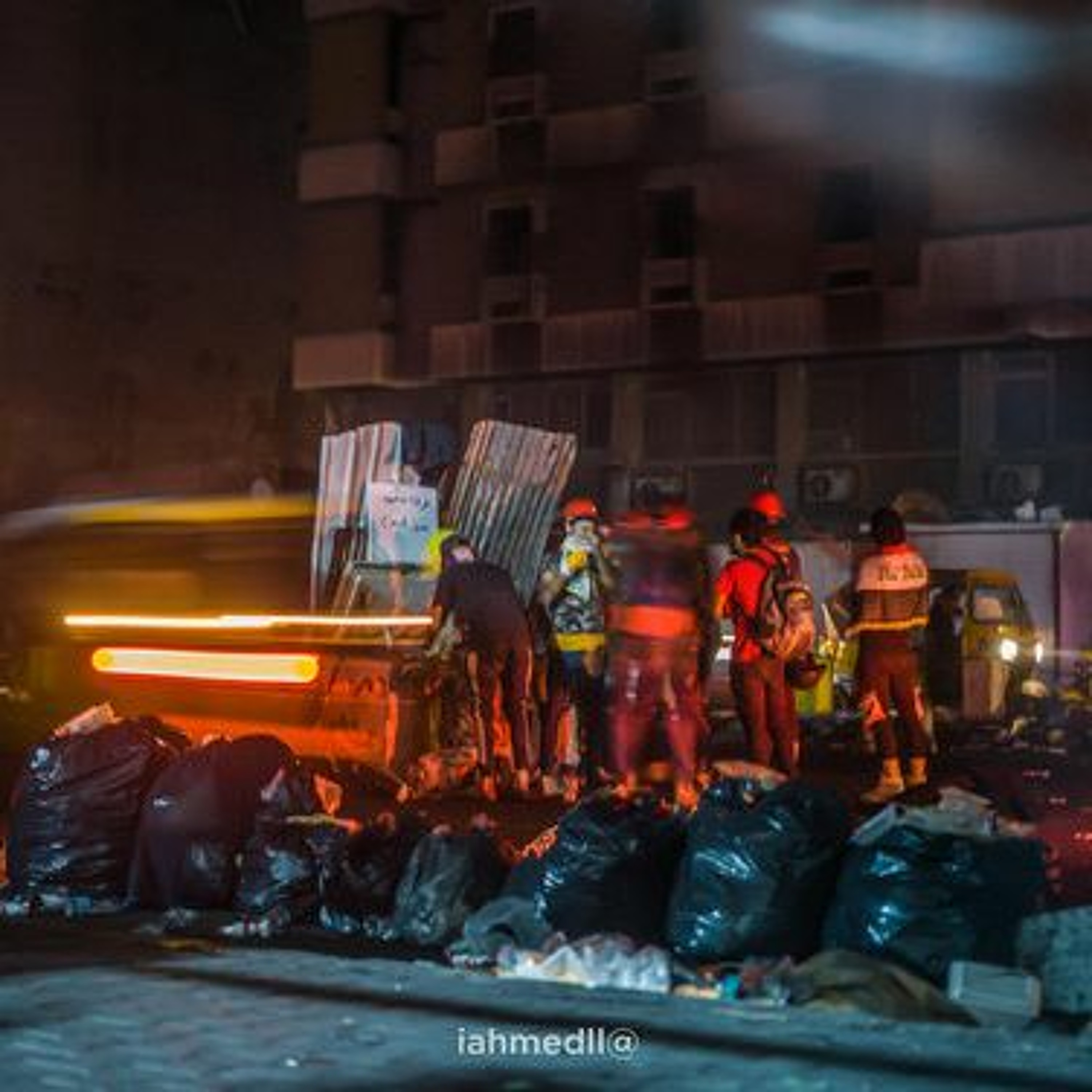 LSE Middle East Centre PodcastsApproaches to Reforming the Iraqi Economy amid Popular ProtestsThis event is the launch of the report titled ‘Public Payroll Expansion in Iraq: Causes and Consequences’ published under the LSE Conflict Research Programme by Principal Investigator Ali Al-Mawlawi. The public payroll in Iraq has grown unchecked since 2003, commensurate with the country’s vastly expanding oil wealth. With few alternative sources of government income, the state budget’s growth poses worrying questions about whether this ongoing trend can be sustained without risking economic ruin. The report offers policy recommendations for a realistic path to address unemployment and job creation.
At the same time, the current protest movement in Iraq, centred around d...2019-12-041h 26
LSE Middle East Centre PodcastsApproaches to Reforming the Iraqi Economy amid Popular ProtestsThis event is the launch of the report titled ‘Public Payroll Expansion in Iraq: Causes and Consequences’ published under the LSE Conflict Research Programme by Principal Investigator Ali Al-Mawlawi. The public payroll in Iraq has grown unchecked since 2003, commensurate with the country’s vastly expanding oil wealth. With few alternative sources of government income, the state budget’s growth poses worrying questions about whether this ongoing trend can be sustained without risking economic ruin. The report offers policy recommendations for a realistic path to address unemployment and job creation.
At the same time, the current protest movement in Iraq, centred around d...2019-12-041h 26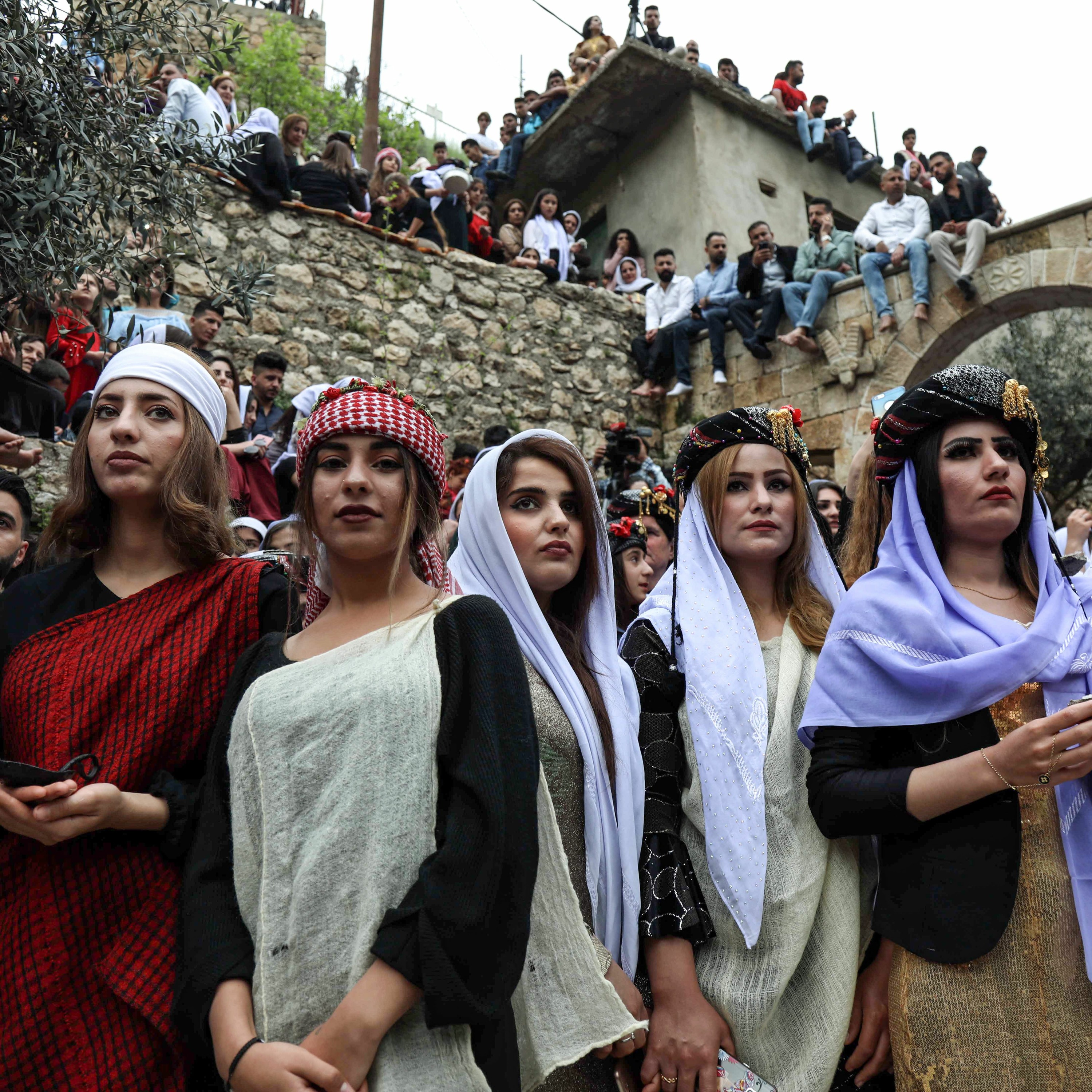 LSE Middle East Centre PodcastsYazidis and ISIS: The Causes and Consequences of Sexual Violence in ConflictThis event launches the paper “Yazidis and ISIS: The Causes and Consequences of Sexual Violence in Conflict” published under the LSE Conflict Research Programme by Principal Investigator Dr. Zeynep Kaya.
It has been five years since ISIS brought the Yazidi community in Iraq to the brink of destruction. Some women and children held by ISIS have been re-captured by criminal gangs to be trafficked or sold to their families. Those that managed to escape the brutal attacks have ended up in displacement camps scattered around Iraqi Kurdistan, with a small number relocating to Western countries as refugees.
This report shows that...2019-11-291h 11
LSE Middle East Centre PodcastsYazidis and ISIS: The Causes and Consequences of Sexual Violence in ConflictThis event launches the paper “Yazidis and ISIS: The Causes and Consequences of Sexual Violence in Conflict” published under the LSE Conflict Research Programme by Principal Investigator Dr. Zeynep Kaya.
It has been five years since ISIS brought the Yazidi community in Iraq to the brink of destruction. Some women and children held by ISIS have been re-captured by criminal gangs to be trafficked or sold to their families. Those that managed to escape the brutal attacks have ended up in displacement camps scattered around Iraqi Kurdistan, with a small number relocating to Western countries as refugees.
This report shows that...2019-11-291h 11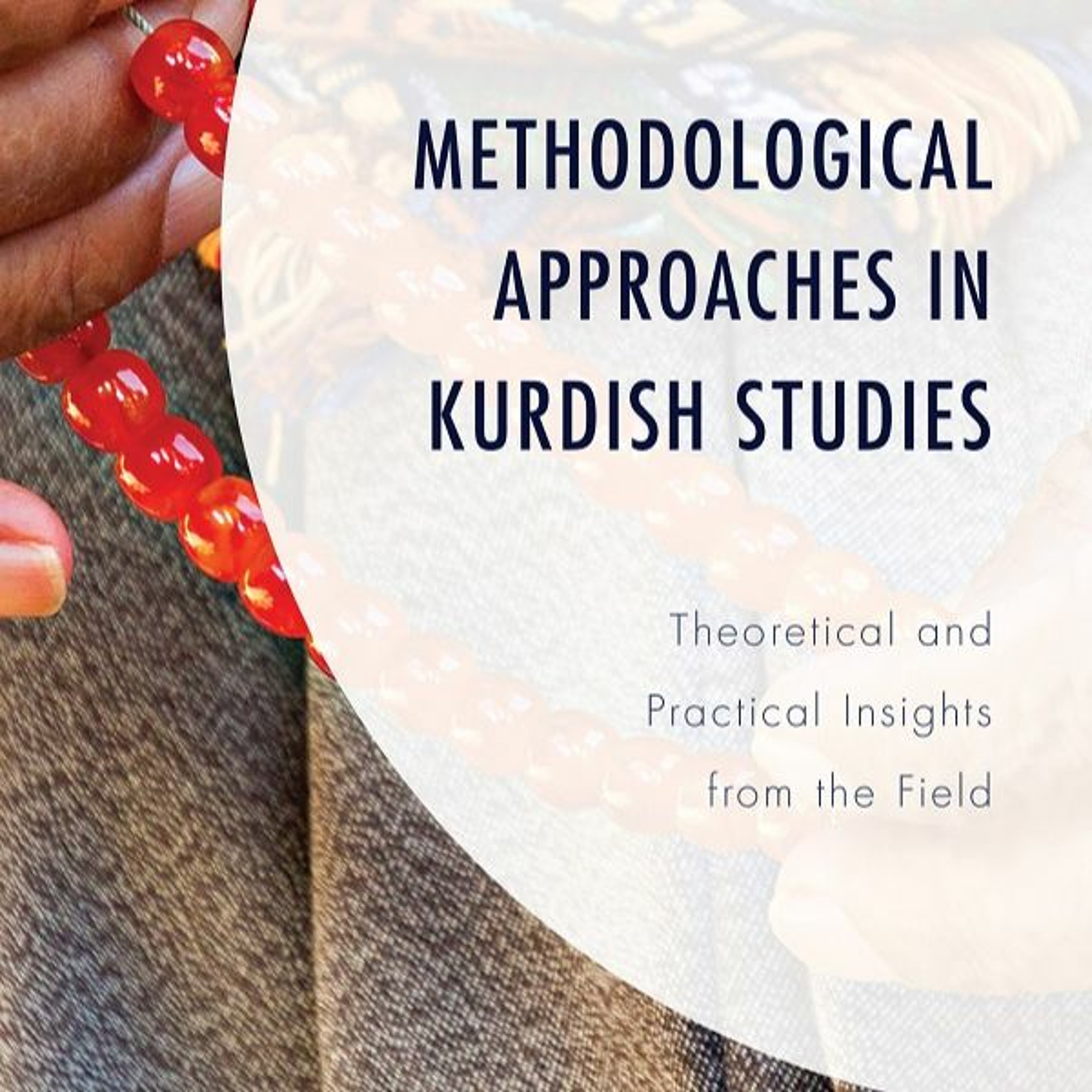 LSE Middle East Centre PodcastsMethodological Approaches in Kurdish Studies: Theoretical and Practical Insights from the FieldThis event launches the book Methodological Approaches in Kurdish Studies: Theoretical and Practical Insights from the Field. It is a volume that presents thirteen contributions that reflect upon the practical, ethical, theoretical and methodological challenges that researchers face when conducting fieldwork in settings that are characterized with deteriorating security situations, increasing state control and conflicting inter-ethnic relations. More precisely, they shed light to the intricacies of conducting fieldwork on highly politicized and sensitive topics in the region of Kurdistan in Iraq, Syria and Turkey as well as among Kurdish diaspora members in Europe.
Bahar Baser is associate professor at the...2019-11-221h 27
LSE Middle East Centre PodcastsMethodological Approaches in Kurdish Studies: Theoretical and Practical Insights from the FieldThis event launches the book Methodological Approaches in Kurdish Studies: Theoretical and Practical Insights from the Field. It is a volume that presents thirteen contributions that reflect upon the practical, ethical, theoretical and methodological challenges that researchers face when conducting fieldwork in settings that are characterized with deteriorating security situations, increasing state control and conflicting inter-ethnic relations. More precisely, they shed light to the intricacies of conducting fieldwork on highly politicized and sensitive topics in the region of Kurdistan in Iraq, Syria and Turkey as well as among Kurdish diaspora members in Europe.
Bahar Baser is associate professor at the...2019-11-221h 27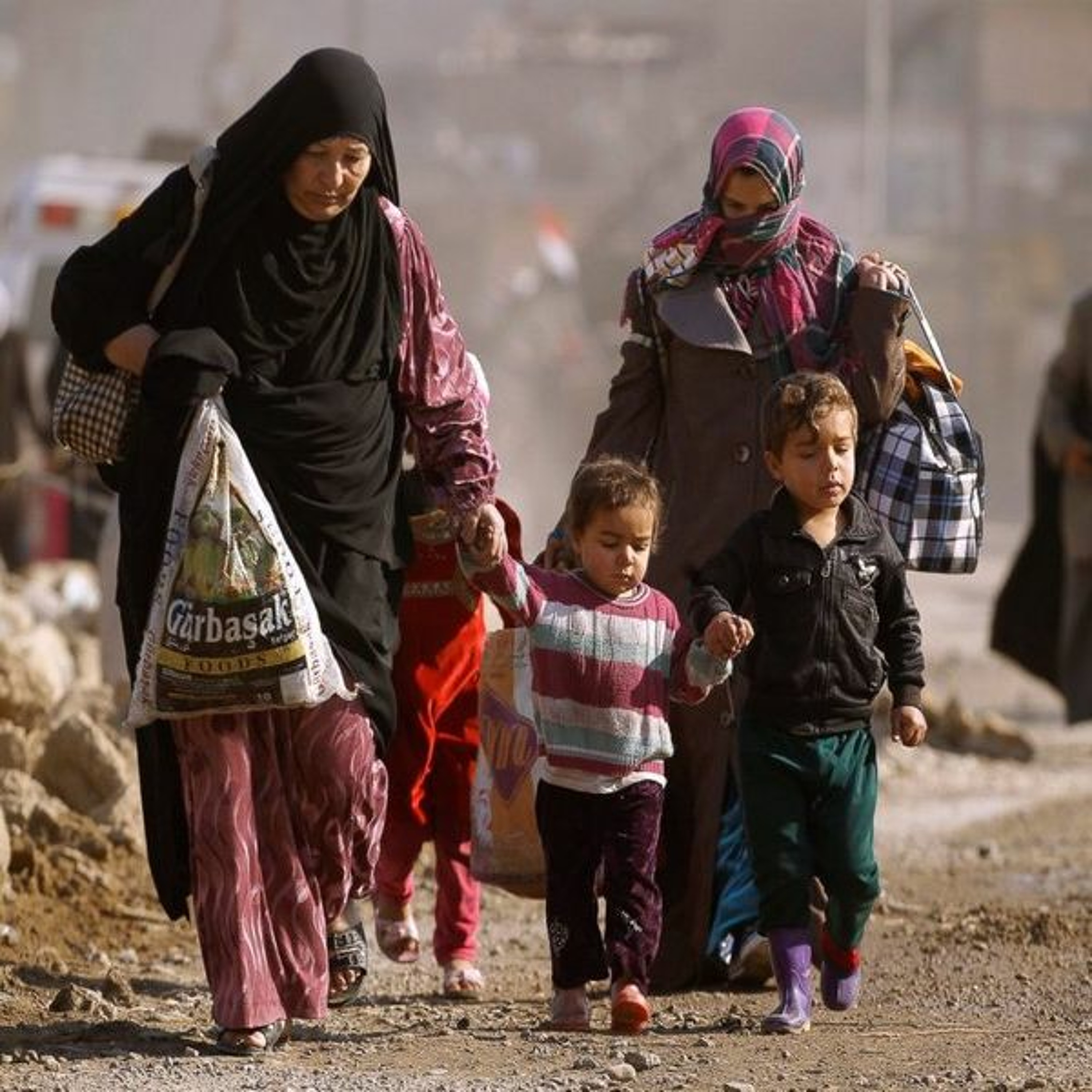 LSE Middle East Centre PodcastsConflict-Related Sexual Violence in Iraq: Responses and ReparationsThis event launched the paper “Response to and Reparations for Conflict-Related Sexual Violence in Iraq: The Case of Shi’a Turkmen Survivors in Tel Afar” published under the LSE Conflict Research Programme by Principal Investigator Güley Bor.
During the most recent Islamic State conflict, thousands of Yazidi, and hundreds of Shi’a Turkmen and Christian women were kidnapped and subjected to various forms of conflict-related sexual violence (CRSV). The situation of Shi’a Turkmen survivors of CRSV in Tel Afar in the Nineveh Governorate demonstrates how the Government of Iraq’s inaction, together with its discriminatory laws and practices, continue to f...2019-10-101h 23
LSE Middle East Centre PodcastsConflict-Related Sexual Violence in Iraq: Responses and ReparationsThis event launched the paper “Response to and Reparations for Conflict-Related Sexual Violence in Iraq: The Case of Shi’a Turkmen Survivors in Tel Afar” published under the LSE Conflict Research Programme by Principal Investigator Güley Bor.
During the most recent Islamic State conflict, thousands of Yazidi, and hundreds of Shi’a Turkmen and Christian women were kidnapped and subjected to various forms of conflict-related sexual violence (CRSV). The situation of Shi’a Turkmen survivors of CRSV in Tel Afar in the Nineveh Governorate demonstrates how the Government of Iraq’s inaction, together with its discriminatory laws and practices, continue to f...2019-10-101h 23 Orders in Decay#12 The Soviet CoupProducer: Dasha Diachenko. The podcast will explore the tragi-comedic elements of the 1991 Soviet Coup that unfolded between the 19th and the 22nd August 1991 – an event that drastically changed the course of world history and ultimately led to the fall of the Soviet Union. Professor Mark Kramer of Harvard University and Dr Daphne Skillen give details of the events leading up to the Coup, why the attempt to preserve the Communist rule failed and whether it could have ever been a success. It was a tragic fight for those who resisted the regime and a cartoonist loss for those who tried to...2019-07-1720 min
Orders in Decay#12 The Soviet CoupProducer: Dasha Diachenko. The podcast will explore the tragi-comedic elements of the 1991 Soviet Coup that unfolded between the 19th and the 22nd August 1991 – an event that drastically changed the course of world history and ultimately led to the fall of the Soviet Union. Professor Mark Kramer of Harvard University and Dr Daphne Skillen give details of the events leading up to the Coup, why the attempt to preserve the Communist rule failed and whether it could have ever been a success. It was a tragic fight for those who resisted the regime and a cartoonist loss for those who tried to...2019-07-1720 min How to Change the World (For the Better)Dr. Halida Akhter - USAID-DFID NGO Health Service Delivery Project, Pathfinder International, Department of International Health, Division of Human Nutrition at Johns HopkinsHalida Hanum Akhter, MCPS, MPH, DrPH - Dr. Akhter is the Chief of Party on the USAID-DFID NGO Health Service Delivery Project, a Senior Country Director with Pathfinder International, and a Senior Associate in the Department of International Health, Division of Human Nutrition at Johns Hopkins. Dr. Akhter is a reproductive health epidemiologist with over 30 years of national and international experience. She is a medical graduate and obtained Membership of College of Physician and Surgeon (MCPS) in OB/GYN, MPH and Dr.PH from Johns Hopkins University following which, as a Rockefeller Fellow, she served as Epidemic Intelligence Service Officer...2019-07-162h 01
How to Change the World (For the Better)Dr. Halida Akhter - USAID-DFID NGO Health Service Delivery Project, Pathfinder International, Department of International Health, Division of Human Nutrition at Johns HopkinsHalida Hanum Akhter, MCPS, MPH, DrPH - Dr. Akhter is the Chief of Party on the USAID-DFID NGO Health Service Delivery Project, a Senior Country Director with Pathfinder International, and a Senior Associate in the Department of International Health, Division of Human Nutrition at Johns Hopkins. Dr. Akhter is a reproductive health epidemiologist with over 30 years of national and international experience. She is a medical graduate and obtained Membership of College of Physician and Surgeon (MCPS) in OB/GYN, MPH and Dr.PH from Johns Hopkins University following which, as a Rockefeller Fellow, she served as Epidemic Intelligence Service Officer...2019-07-162h 01 Last billion3. News: Loans, EdTech and DronesOur hosts Janet Shulist and Arunjay Katakam take you through this week's news:
1. Mobile payments are revamping the way that education is financed: https://t.co/fM2b5fwnPI?amp=1
2. UK aid (DFID) partners to launch world's biggest EdTech hub: https://www.gov.uk/government/news/uk-aid-funds-worlds-biggest-educational-technology-research-project
3. Libra currency draws instant response from regulators
4. Pilot on using drones to map farm plots in Benin: https://www.crs.org/sites/default/files/tools-research/uavs_-_walking_vs_flying_-_benin_study.pdf
5. MSMEs are the backbone of developing economies: new...2019-07-0215 min
Last billion3. News: Loans, EdTech and DronesOur hosts Janet Shulist and Arunjay Katakam take you through this week's news:
1. Mobile payments are revamping the way that education is financed: https://t.co/fM2b5fwnPI?amp=1
2. UK aid (DFID) partners to launch world's biggest EdTech hub: https://www.gov.uk/government/news/uk-aid-funds-worlds-biggest-educational-technology-research-project
3. Libra currency draws instant response from regulators
4. Pilot on using drones to map farm plots in Benin: https://www.crs.org/sites/default/files/tools-research/uavs_-_walking_vs_flying_-_benin_study.pdf
5. MSMEs are the backbone of developing economies: new...2019-07-0215 min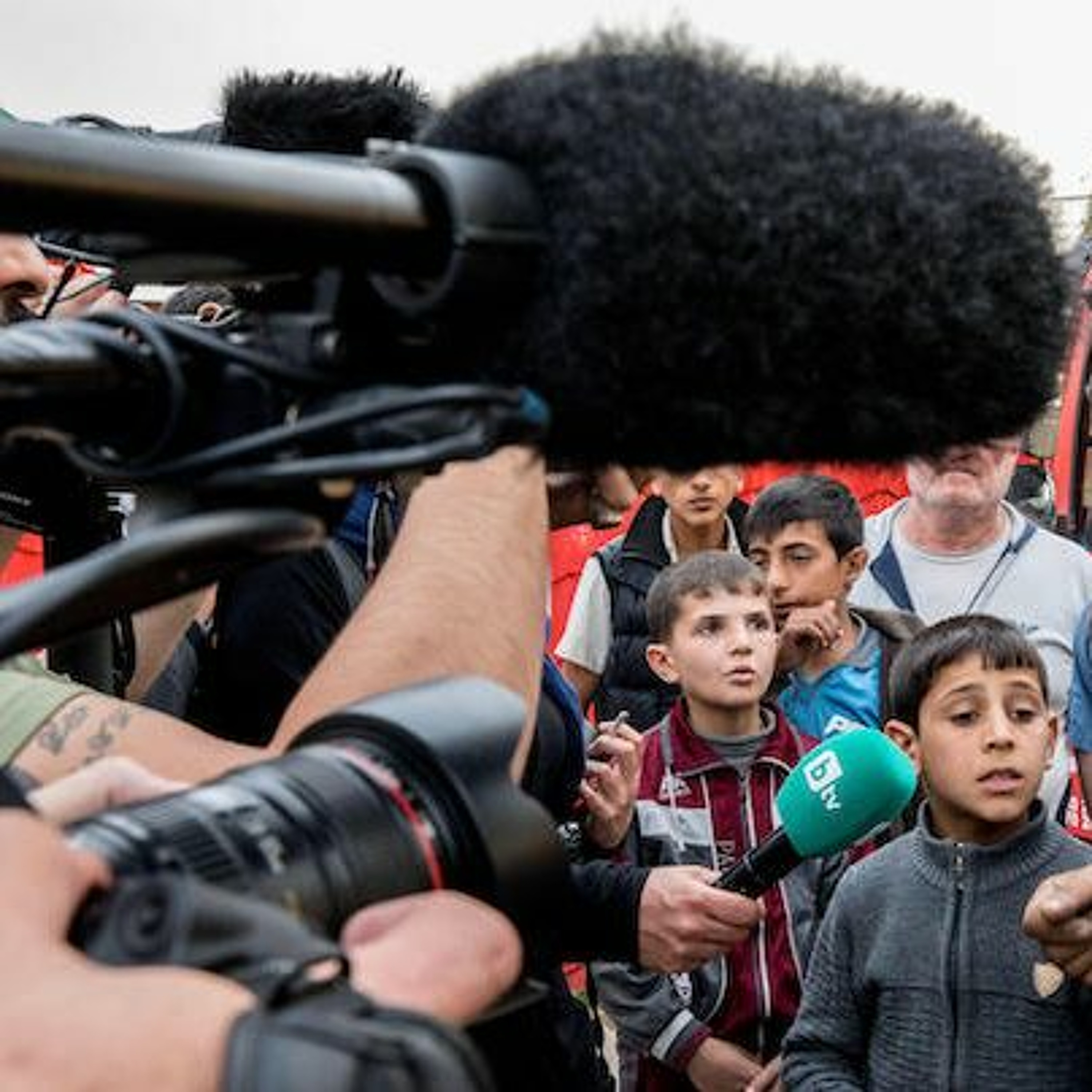 LSE Middle East Centre PodcastsA Fragmented Landscape: Barriers to Independent Media in IraqThe Iraqi media landscape has been characterised by partisan ownership, in the main based on political and religious affiliations. Comparative ethnographic research has revealed highly irregular practices and the struggles of Iraqi journalists to adhere to the norms of professionalism, suggesting that these practices are contributing to and fuelling the on-going context of conflict and violence in Iraq. Within this challenging environment, there have been some attempts to develop media platforms that carve out spaces which can contribute to better journalism and, ultimately, better local and national governance. This report explores, in the context of this environment, the challenges that...2019-06-261h 10
LSE Middle East Centre PodcastsA Fragmented Landscape: Barriers to Independent Media in IraqThe Iraqi media landscape has been characterised by partisan ownership, in the main based on political and religious affiliations. Comparative ethnographic research has revealed highly irregular practices and the struggles of Iraqi journalists to adhere to the norms of professionalism, suggesting that these practices are contributing to and fuelling the on-going context of conflict and violence in Iraq. Within this challenging environment, there have been some attempts to develop media platforms that carve out spaces which can contribute to better journalism and, ultimately, better local and national governance. This report explores, in the context of this environment, the challenges that...2019-06-261h 10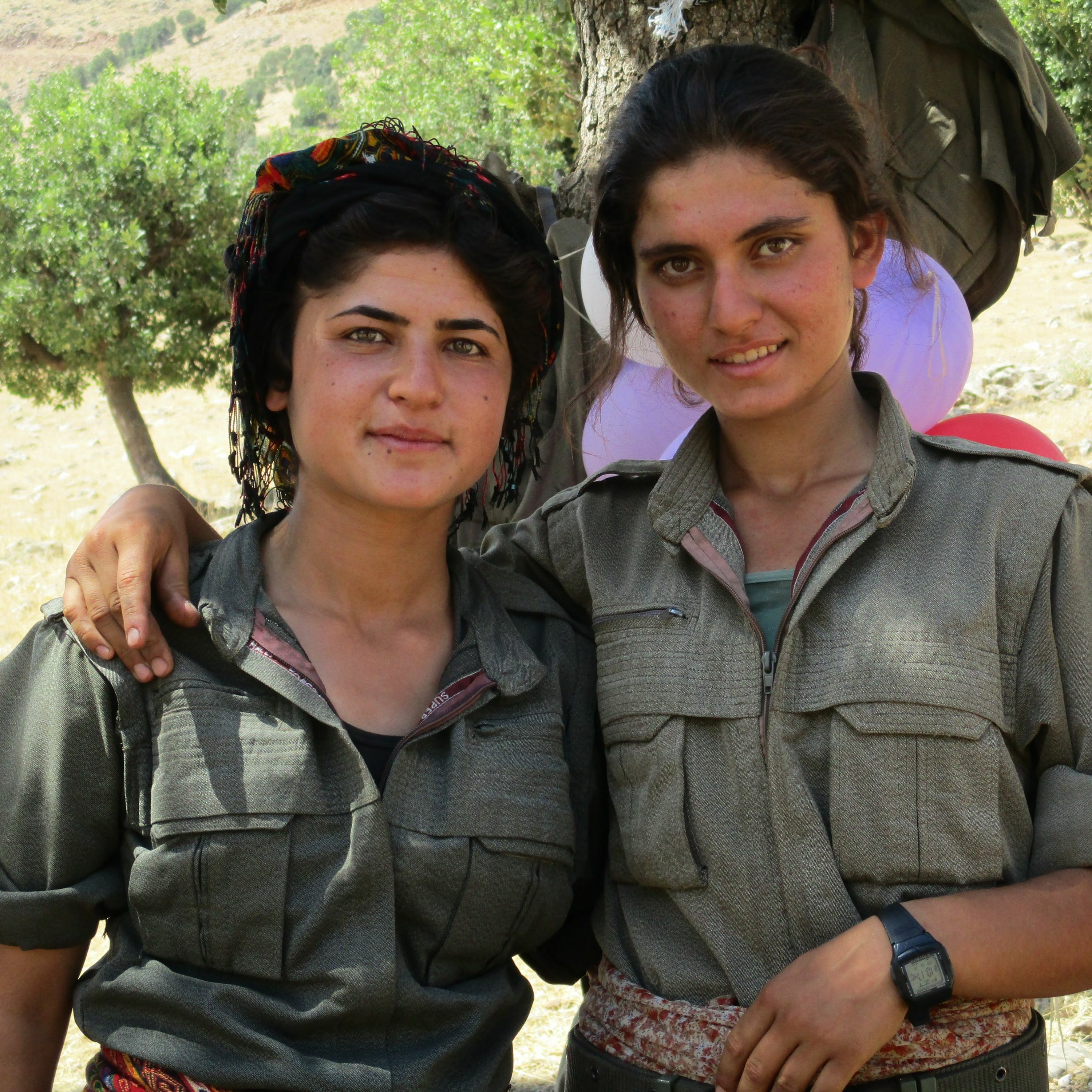 LSE Middle East Centre PodcastsThe Kurdish Women’s Movement: On Revolution, Militarism and Body PoliticsWomen have been at the forefront of many of the political and military struggles in the Kurdish Middle East, most visibly so since the outbreak of the ‘Rojava Revolution’ in 2012. But women have in fact since the foundation of the PKK in 1978 played an integral role in the ideological and political development of the Liberation Movement as a whole; as guerrillas, activists, politicians, mothers and prisoners. Isabel Käser will trace the complex history of the Kurdish Women’s Liberation Movement, discuss how women’s autonomous organisational structures have emerged and how they operate today between the mountains and the cities of...2019-06-141h 20
LSE Middle East Centre PodcastsThe Kurdish Women’s Movement: On Revolution, Militarism and Body PoliticsWomen have been at the forefront of many of the political and military struggles in the Kurdish Middle East, most visibly so since the outbreak of the ‘Rojava Revolution’ in 2012. But women have in fact since the foundation of the PKK in 1978 played an integral role in the ideological and political development of the Liberation Movement as a whole; as guerrillas, activists, politicians, mothers and prisoners. Isabel Käser will trace the complex history of the Kurdish Women’s Liberation Movement, discuss how women’s autonomous organisational structures have emerged and how they operate today between the mountains and the cities of...2019-06-141h 20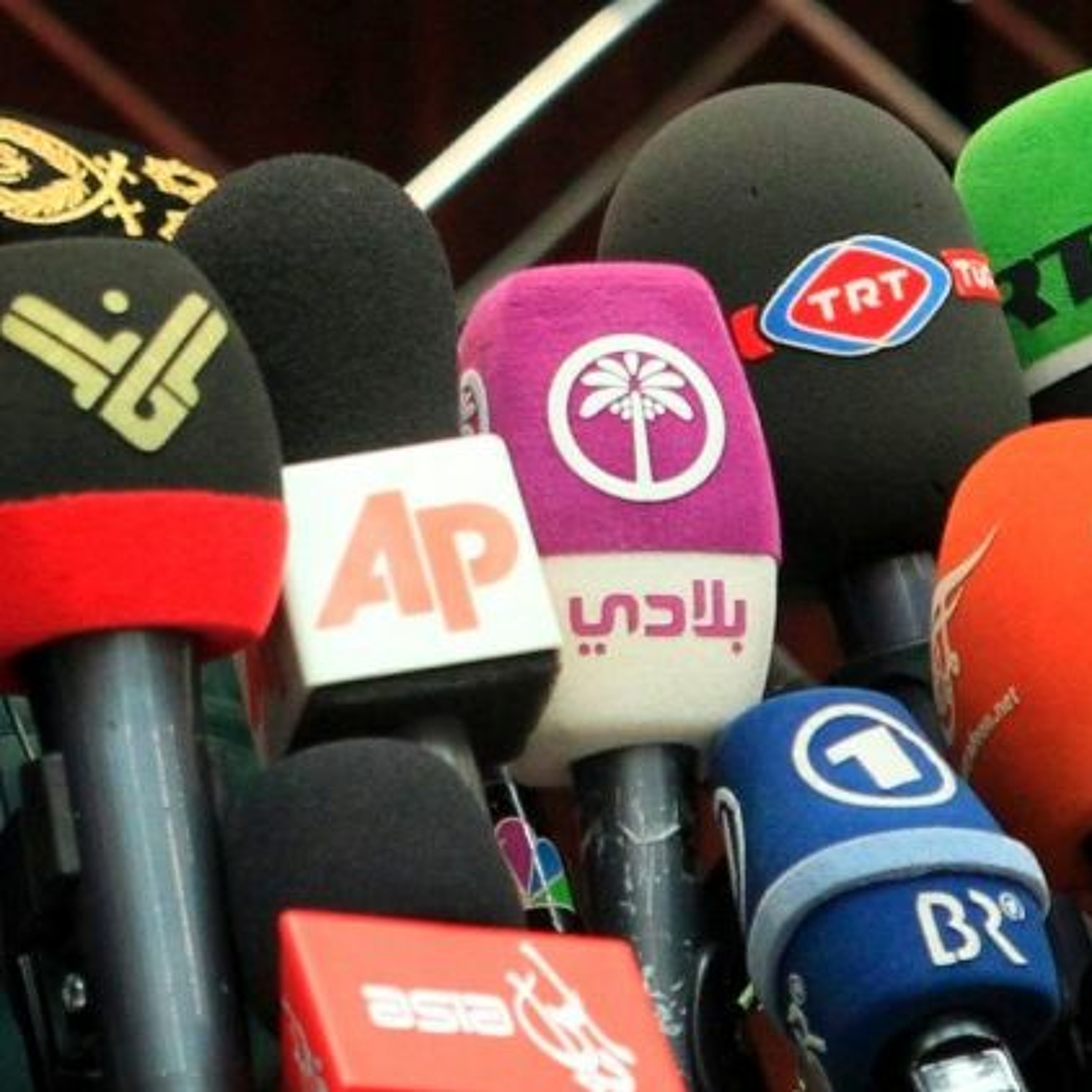 LSE Middle East Centre PodcastsSatellite Sectarianisation or Plain Old Partisanship? Inciting Violence in the Arab Mainstream MediaThis report assesses widespread claims that pan-Arab satellite news channels have been responsible for inciting sectarian violence during the Arab uprisings. Based on an empirical study of how three of the most popular channels – Al-Jazeera Arabic, Al-Arabiya and Al-Mayadeen - have framed seminal events involving violence between sects in Syria and Iraq, the report finds that while often geo-politically charged, some of these claims are valid. While abusive language or direct promotion of violence is rare in a mainstream context, incitement to sectarian violence has primarily been invoked through linguistic, stylistic and thematic tropes that forge legitimacy claims and narratives of...2019-05-201h 06
LSE Middle East Centre PodcastsSatellite Sectarianisation or Plain Old Partisanship? Inciting Violence in the Arab Mainstream MediaThis report assesses widespread claims that pan-Arab satellite news channels have been responsible for inciting sectarian violence during the Arab uprisings. Based on an empirical study of how three of the most popular channels – Al-Jazeera Arabic, Al-Arabiya and Al-Mayadeen - have framed seminal events involving violence between sects in Syria and Iraq, the report finds that while often geo-politically charged, some of these claims are valid. While abusive language or direct promotion of violence is rare in a mainstream context, incitement to sectarian violence has primarily been invoked through linguistic, stylistic and thematic tropes that forge legitimacy claims and narratives of...2019-05-201h 06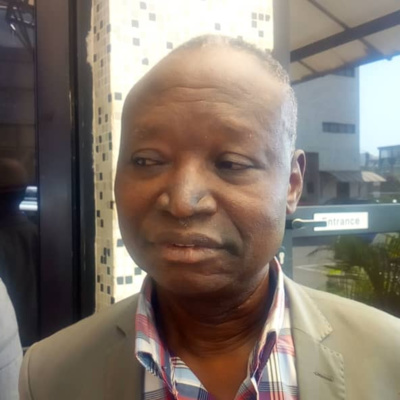 The Development NewsRelease Fund for Basic Health Care Before The Year Ends – Abanida Tells FGSenior Technical Advisor for Development Research and Project Center (DRPC), Emmanuel Adebayo Abanida, has called on the federal government to ensure the release of the Basic Health Care Provision Fund (BHCPF) which has not been made available despite its inclusion in the 2018 budget.
Abanida made the call during a one-day strategy session on advocacy for implementation of the Basic Health Care Provision Fund (BHCPF) of the National Health Act, NHA which was organized by the DFID Partnership to Engage, Reform and Learn (DFID-PERL) in Abuja.
Abanida said provision for the money has been included in the 2018 budget but has not...2018-11-2102 min
The Development NewsRelease Fund for Basic Health Care Before The Year Ends – Abanida Tells FGSenior Technical Advisor for Development Research and Project Center (DRPC), Emmanuel Adebayo Abanida, has called on the federal government to ensure the release of the Basic Health Care Provision Fund (BHCPF) which has not been made available despite its inclusion in the 2018 budget.
Abanida made the call during a one-day strategy session on advocacy for implementation of the Basic Health Care Provision Fund (BHCPF) of the National Health Act, NHA which was organized by the DFID Partnership to Engage, Reform and Learn (DFID-PERL) in Abuja.
Abanida said provision for the money has been included in the 2018 budget but has not...2018-11-2102 min Westminster AbbeyHumanity's responsePanel discussion as part of Westminster Abbey Institute's Embracing Global Challenges season.
Speakers: Professor Michelle Brown, Rory Stewart MP OBE, Matt Waldman.
Chair: Sir Stephen Lamport GCVO DL, Receiver General, Westminster Abbey.
Michelle Brown is Professor Emerita of Medieval Manuscript Studies at the School of Advanced Study, University of London.
Matt Waldman is an international mediator and founding director of the Center for Empathy in International Affairs.
Rory Stewart is Minister of State for Justice. He was formerly Minister of State for the FCO and DfID.
#westminsterabbeyinstitute2018-11-071h 14
Westminster AbbeyHumanity's responsePanel discussion as part of Westminster Abbey Institute's Embracing Global Challenges season.
Speakers: Professor Michelle Brown, Rory Stewart MP OBE, Matt Waldman.
Chair: Sir Stephen Lamport GCVO DL, Receiver General, Westminster Abbey.
Michelle Brown is Professor Emerita of Medieval Manuscript Studies at the School of Advanced Study, University of London.
Matt Waldman is an international mediator and founding director of the Center for Empathy in International Affairs.
Rory Stewart is Minister of State for Justice. He was formerly Minister of State for the FCO and DfID.
#westminsterabbeyinstitute2018-11-071h 14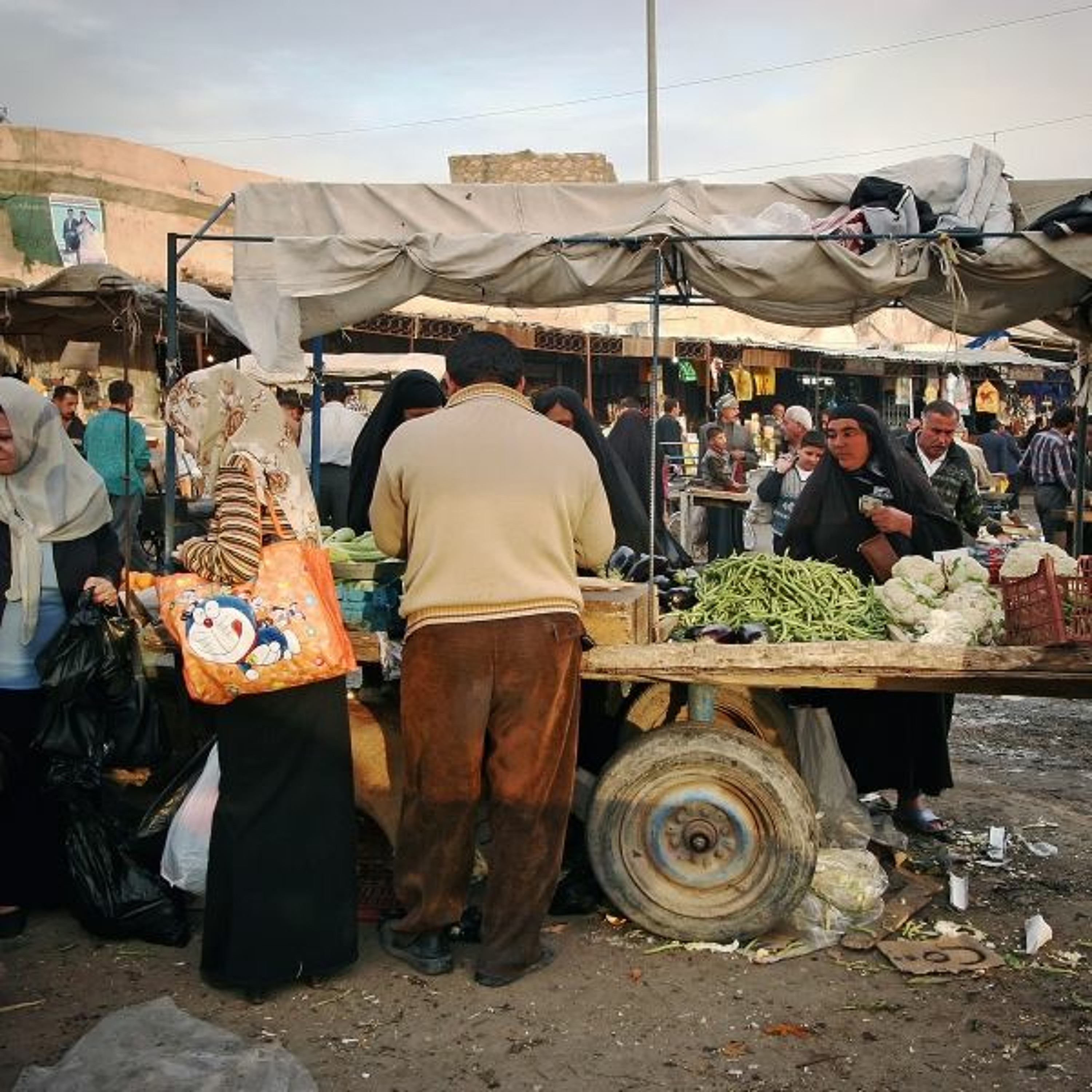 LSE Middle East Centre PodcastsUnderstanding The Drivers Of Conflict In IraqSpeakers: Toby Dodge, Zeynep Kaya and Jessica Watkins, LSE Middle East Centre; Renad Mansour; Chatham House.
It has now been over a year since the liberation of Mosul by Iraqi government forces in July 2017. This victory marks a new stage in the violent conflict that has destabilised Iraq since at least regime change in 2003. In some ways, the breakthrough in July 2017 can be compared firstly to the initial aftermath of the invasion in April 2003 until the insurgency transformed itself into a civil war in 2005, and then secondly to the period following the US-led surge that started in February 2007 until the...2018-11-051h 22
LSE Middle East Centre PodcastsUnderstanding The Drivers Of Conflict In IraqSpeakers: Toby Dodge, Zeynep Kaya and Jessica Watkins, LSE Middle East Centre; Renad Mansour; Chatham House.
It has now been over a year since the liberation of Mosul by Iraqi government forces in July 2017. This victory marks a new stage in the violent conflict that has destabilised Iraq since at least regime change in 2003. In some ways, the breakthrough in July 2017 can be compared firstly to the initial aftermath of the invasion in April 2003 until the insurgency transformed itself into a civil war in 2005, and then secondly to the period following the US-led surge that started in February 2007 until the...2018-11-051h 22 DisplacedStefan Dercon: how insurance could make humanitarian response faster and cheaperStefan Dercon is professor of economic policy at the University of Oxford, and is the former chief economist at the Department for International Development (DFID) in the UK, where he was involved in political discussions about how to shape aid. This episode is a deep dive into the financing model of humanitarian response, and how insurance instruments could change that model, and potentially reshape how we respond to crises.
Displaced is produced by the Vox Media Podcast Network in partnership with the International Rescue Committee.
Find our show notes here: https://www.rescue.org/displaced
Email us at displaced@rescue.o...2018-09-1849 min
DisplacedStefan Dercon: how insurance could make humanitarian response faster and cheaperStefan Dercon is professor of economic policy at the University of Oxford, and is the former chief economist at the Department for International Development (DFID) in the UK, where he was involved in political discussions about how to shape aid. This episode is a deep dive into the financing model of humanitarian response, and how insurance instruments could change that model, and potentially reshape how we respond to crises.
Displaced is produced by the Vox Media Podcast Network in partnership with the International Rescue Committee.
Find our show notes here: https://www.rescue.org/displaced
Email us at displaced@rescue.o...2018-09-1849 min The Invested InvestorThe right kind of help, demystifying investors, and five minimum requirementsJessica Dick spends most of her time helping early-stage entrepreneurs navigating the fundraising process. As co-founder of consultancy Five Years Time, she ushers entrepreneurs from technical backgrounds into the world of business. As investment manager at Synergy Growth, she has worked with around thirty different start-ups. What better guest could there be for the Invested Investor? In this episode, Jessica breaks down the issues with the ways many novice entrepreneurs ask for help, and outlines her five minimum requirements for being ready to seek investment. Jess manages a portfolio of investments of around 25 startups in the field of cleantech, so...2018-08-0819 min
The Invested InvestorThe right kind of help, demystifying investors, and five minimum requirementsJessica Dick spends most of her time helping early-stage entrepreneurs navigating the fundraising process. As co-founder of consultancy Five Years Time, she ushers entrepreneurs from technical backgrounds into the world of business. As investment manager at Synergy Growth, she has worked with around thirty different start-ups. What better guest could there be for the Invested Investor? In this episode, Jessica breaks down the issues with the ways many novice entrepreneurs ask for help, and outlines her five minimum requirements for being ready to seek investment. Jess manages a portfolio of investments of around 25 startups in the field of cleantech, so...2018-08-0819 min DisplacedRachel Glennerster’s insights on the randomization movementNo conversation about social impact is complete without an understanding of randomized control trials, or RCTs. In this episode, we delve into what they are and how they measure impact with Rachel Glennerster, the new chief economist at the Department for International Development (DFID) in the UK. In an episode recorded in London, Glennerster gives her insights on the randomization movement, and also talks about the divide between academics and policy makers, and why it’s important that they find ways to work together better.
Displaced is produced by the Vox Media Podcast Network in partnership with the International Rescue Co...2018-07-3155 min
DisplacedRachel Glennerster’s insights on the randomization movementNo conversation about social impact is complete without an understanding of randomized control trials, or RCTs. In this episode, we delve into what they are and how they measure impact with Rachel Glennerster, the new chief economist at the Department for International Development (DFID) in the UK. In an episode recorded in London, Glennerster gives her insights on the randomization movement, and also talks about the divide between academics and policy makers, and why it’s important that they find ways to work together better.
Displaced is produced by the Vox Media Podcast Network in partnership with the International Rescue Co...2018-07-3155 min LSE IQ | Intelligent questions with social science answersDo we need to rethink foreign aid?To subscribe on Apple podcasts please visit http://apple.co/2r40QPA or on Andriod http://subscribeonandroid.com/www.lse.ac.uk/assets/richmedia/webFeeds/lseiqpodcast_iTunesStore.xml or search for 'LSE IQ' in your favourite podcast app or visit http://lse.ac.uk/iq
Welcome to LSE IQ, the monthly podcast from the London School of Economics and Political Science. This is the podcast where we ask some of the leading social scientists - and other experts - to answer intelligent questions about economics, politics or society.
The UK spends a generous 0.7% of its Gross National Income on overseas...2018-07-0436 min
LSE IQ | Intelligent questions with social science answersDo we need to rethink foreign aid?To subscribe on Apple podcasts please visit http://apple.co/2r40QPA or on Andriod http://subscribeonandroid.com/www.lse.ac.uk/assets/richmedia/webFeeds/lseiqpodcast_iTunesStore.xml or search for 'LSE IQ' in your favourite podcast app or visit http://lse.ac.uk/iq
Welcome to LSE IQ, the monthly podcast from the London School of Economics and Political Science. This is the podcast where we ask some of the leading social scientists - and other experts - to answer intelligent questions about economics, politics or society.
The UK spends a generous 0.7% of its Gross National Income on overseas...2018-07-0436 min ???? ? ?????? ?LSE IQ Episode 16 | Do we need to rethink foreign aid? [Audio]Contributor(s): Grace Akello, Rafat Ali Al-Akhali, Duncan Green, Ryan Jablonski | Welcome to LSE IQ, the monthly podcast from the London School of Economics and Political Science. This is the podcast where we ask some of the leading social scientists - and other experts - to answer intelligent questions about economics, politics or society. The UK spends a generous 0.7% of its Gross National Income on overseas development aid each year managed by its Department for International Development, or DFID. DFID’s website boasts that its work is building a safer, healthier and more prosperous world, not just for people in de...2018-07-0336 min
???? ? ?????? ?LSE IQ Episode 16 | Do we need to rethink foreign aid? [Audio]Contributor(s): Grace Akello, Rafat Ali Al-Akhali, Duncan Green, Ryan Jablonski | Welcome to LSE IQ, the monthly podcast from the London School of Economics and Political Science. This is the podcast where we ask some of the leading social scientists - and other experts - to answer intelligent questions about economics, politics or society. The UK spends a generous 0.7% of its Gross National Income on overseas development aid each year managed by its Department for International Development, or DFID. DFID’s website boasts that its work is building a safer, healthier and more prosperous world, not just for people in de...2018-07-0336 min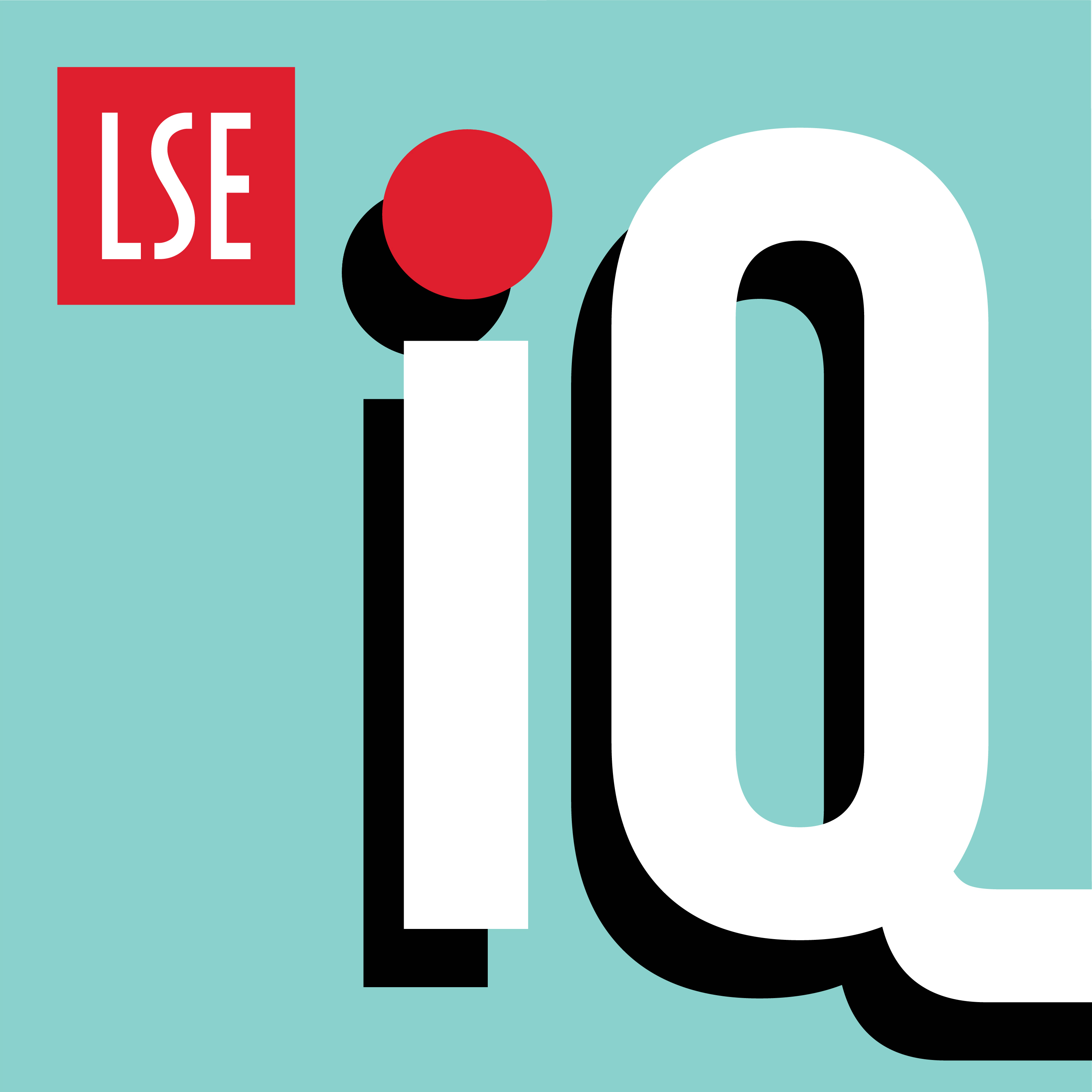 LSE IQ podcastLSE IQ Episode 16 | Do we need to rethink foreign aid?Contributor(s): Dr Grace Akello, Rafat Ali Al-Akhali, Dr Duncan Green, Dr Ryan Jablonski | Welcome to LSE IQ, the monthly podcast from the London School of Economics and Political Science. This is the podcast where we ask some of the leading social scientists - and other experts - to answer intelligent questions about economics, politics or society. The UK spends a generous 0.7% of its Gross National Income on overseas development aid each year managed by its Department for International Development, or DFID. DFID’s website boasts that its work is building a safer, healthier and more prosperous world, not just fo...2018-07-0336 min
LSE IQ podcastLSE IQ Episode 16 | Do we need to rethink foreign aid?Contributor(s): Dr Grace Akello, Rafat Ali Al-Akhali, Dr Duncan Green, Dr Ryan Jablonski | Welcome to LSE IQ, the monthly podcast from the London School of Economics and Political Science. This is the podcast where we ask some of the leading social scientists - and other experts - to answer intelligent questions about economics, politics or society. The UK spends a generous 0.7% of its Gross National Income on overseas development aid each year managed by its Department for International Development, or DFID. DFID’s website boasts that its work is building a safer, healthier and more prosperous world, not just fo...2018-07-0336 min LSE IQLSE IQ Episode 16 | Do we need to rethink foreign aid?Contributor(s): Dr Grace Akello, Rafat Ali Al-Akhali, Dr Duncan Green, Dr Ryan Jablonski | Welcome to LSE IQ, the monthly podcast from the London School of Economics and Political Science. This is the podcast where we ask some of the leading social scientists - and other experts - to answer intelligent questions about economics, politics or society. The UK spends a generous 0.7% of its Gross National Income on overseas development aid each year managed by its Department for International Development, or DFID. DFID’s website boasts that its work is building a safer, healthier and more prosperous world, not just fo...2018-07-0336 min
LSE IQLSE IQ Episode 16 | Do we need to rethink foreign aid?Contributor(s): Dr Grace Akello, Rafat Ali Al-Akhali, Dr Duncan Green, Dr Ryan Jablonski | Welcome to LSE IQ, the monthly podcast from the London School of Economics and Political Science. This is the podcast where we ask some of the leading social scientists - and other experts - to answer intelligent questions about economics, politics or society. The UK spends a generous 0.7% of its Gross National Income on overseas development aid each year managed by its Department for International Development, or DFID. DFID’s website boasts that its work is building a safer, healthier and more prosperous world, not just fo...2018-07-0336 min Cambridge Language SciencesChallenges of monolingual and multilingual education: cognition, numeracy and literacy skills in primary school children in IndiaNOTE: DATA IN THIS TALK IS PRELIMINARY AND UNPUBLISHED, AND THE RESEARCH IS ONGOING. Lecture at the University of Oxford as part of a special seminar series on the ESRC-DFID Raising Learning Outcomes in Education Systems Research Programme (Oxford Comparative and International Seminar Series, Jan-March 2018). Filming and dissemination courtesy of The Impact Initiative.2018-05-181h 18
Cambridge Language SciencesChallenges of monolingual and multilingual education: cognition, numeracy and literacy skills in primary school children in IndiaNOTE: DATA IN THIS TALK IS PRELIMINARY AND UNPUBLISHED, AND THE RESEARCH IS ONGOING. Lecture at the University of Oxford as part of a special seminar series on the ESRC-DFID Raising Learning Outcomes in Education Systems Research Programme (Oxford Comparative and International Seminar Series, Jan-March 2018). Filming and dissemination courtesy of The Impact Initiative.2018-05-181h 18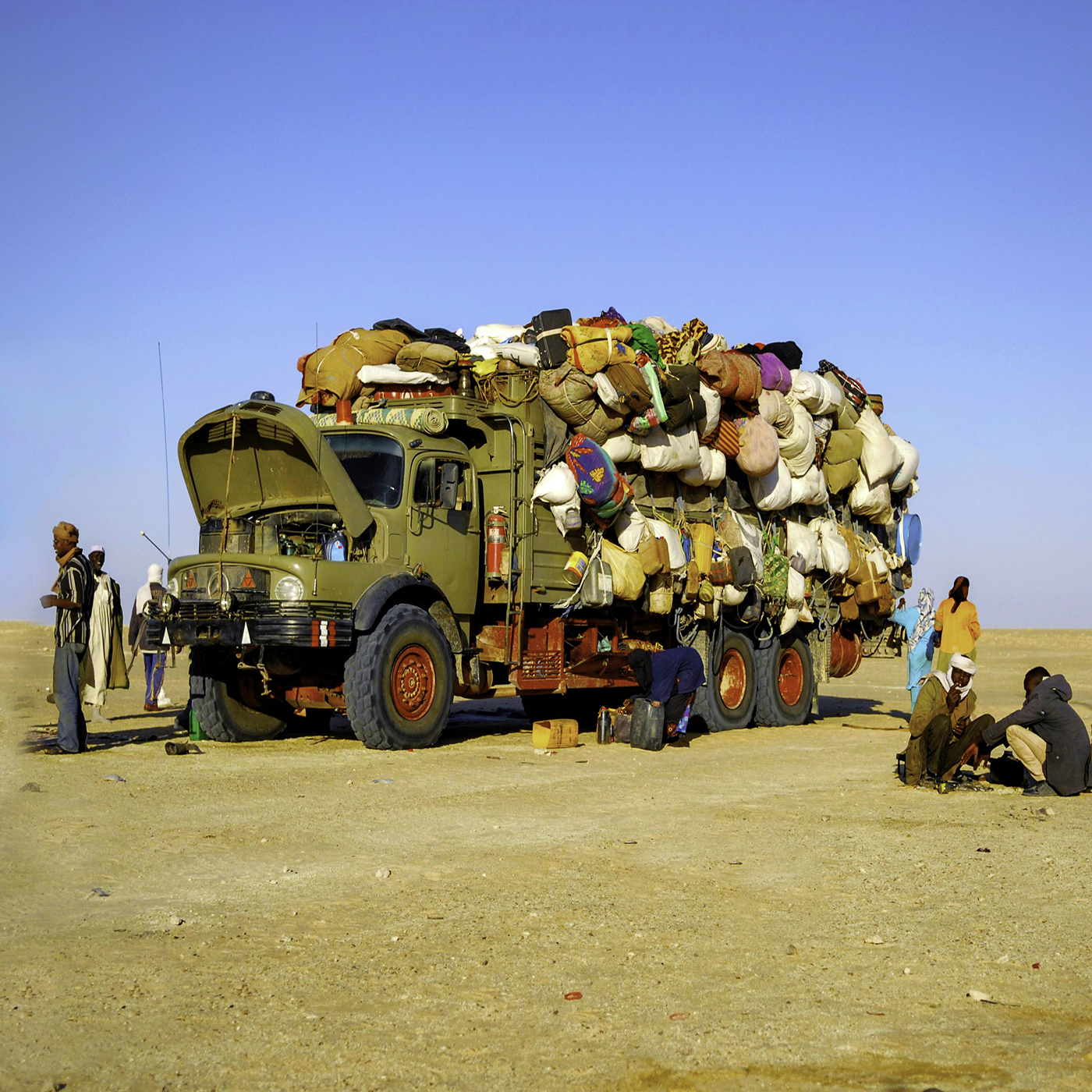 IMF PodcastsRachel Glennerster: The Cost of ConflictEconomic shocks and climate change increase the risk of conflict. If current trends continue, 80 percent of the world’s poorest people will live in fragile states by the year 2030. This means the work of development will increasingly be about how to prevent conflict and how to achieve positive change in post-conflict and fragile states. In this podcast, DfID’s chief economist Rachel Glennerster, says economists need to get better at understanding these risks and predicting conflict. Before joining the UK’s Department for International Development, Glennerster was Executive Director of the Abdul Latif Jameel Poverty Action Lab. She was invite...2018-03-3012 min
IMF PodcastsRachel Glennerster: The Cost of ConflictEconomic shocks and climate change increase the risk of conflict. If current trends continue, 80 percent of the world’s poorest people will live in fragile states by the year 2030. This means the work of development will increasingly be about how to prevent conflict and how to achieve positive change in post-conflict and fragile states. In this podcast, DfID’s chief economist Rachel Glennerster, says economists need to get better at understanding these risks and predicting conflict. Before joining the UK’s Department for International Development, Glennerster was Executive Director of the Abdul Latif Jameel Poverty Action Lab. She was invite...2018-03-3012 min Development Policy Centre Podcast2018 Australasian Aid Conference - Panel 5a - Anti-corruption and development assistanceToo often there has been a gap between academic analysis seeking to explain the how and why of corruption and the reality of activists trying to address it on the ground. We need to recognise not only that corruption is complex and multi-faceted, but also that to have any real impact requires sensitivity to the specific contexts in which it takes place, and especially what is politically possible. That means working closely with colleagues who are faced with actually implementing anti-corruption measures. This panel at the 2018 Australasian Aid Conference provided an in-depth look at some of the research funded through...2018-03-011h 33
Development Policy Centre Podcast2018 Australasian Aid Conference - Panel 5a - Anti-corruption and development assistanceToo often there has been a gap between academic analysis seeking to explain the how and why of corruption and the reality of activists trying to address it on the ground. We need to recognise not only that corruption is complex and multi-faceted, but also that to have any real impact requires sensitivity to the specific contexts in which it takes place, and especially what is politically possible. That means working closely with colleagues who are faced with actually implementing anti-corruption measures. This panel at the 2018 Australasian Aid Conference provided an in-depth look at some of the research funded through...2018-03-011h 33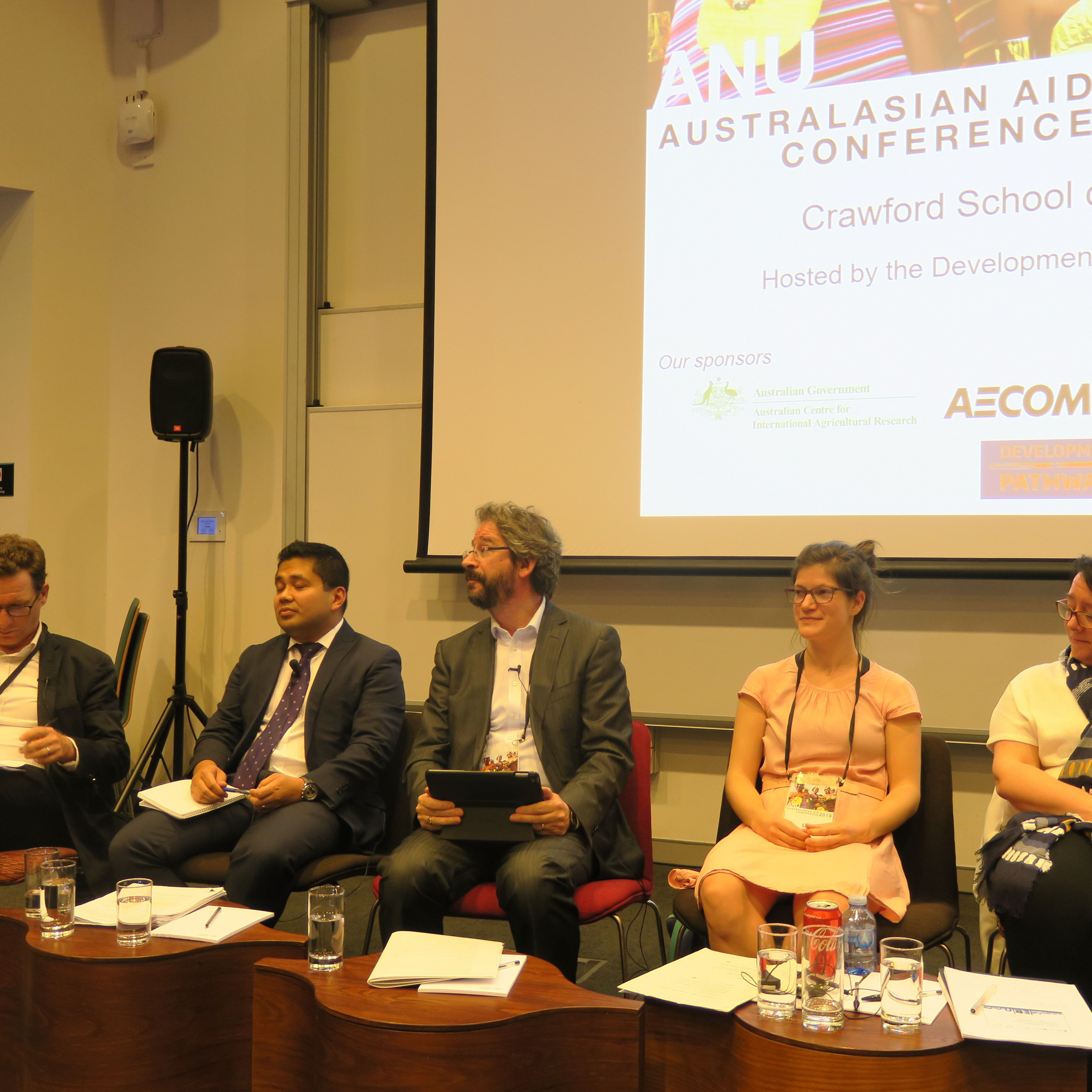 Devpolicy Talks2018 Australasian Aid Conference - Panel 5a - Anti-corruption and development assistanceToo often there has been a gap between academic analysis seeking to explain the how and why of corruption and the reality of activists trying to address it on the ground. We need to recognise not only that corruption is complex and multi-faceted, but also that to have any real impact requires sensitivity to the specific contexts in which it takes place, and especially what is politically possible. That means working closely with colleagues who are faced with actually implementing anti-corruption measures. This panel at the 2018 Australasian Aid Conference provided an in-depth look at some of the research funded...2018-03-011h 33
Devpolicy Talks2018 Australasian Aid Conference - Panel 5a - Anti-corruption and development assistanceToo often there has been a gap between academic analysis seeking to explain the how and why of corruption and the reality of activists trying to address it on the ground. We need to recognise not only that corruption is complex and multi-faceted, but also that to have any real impact requires sensitivity to the specific contexts in which it takes place, and especially what is politically possible. That means working closely with colleagues who are faced with actually implementing anti-corruption measures. This panel at the 2018 Australasian Aid Conference provided an in-depth look at some of the research funded...2018-03-011h 33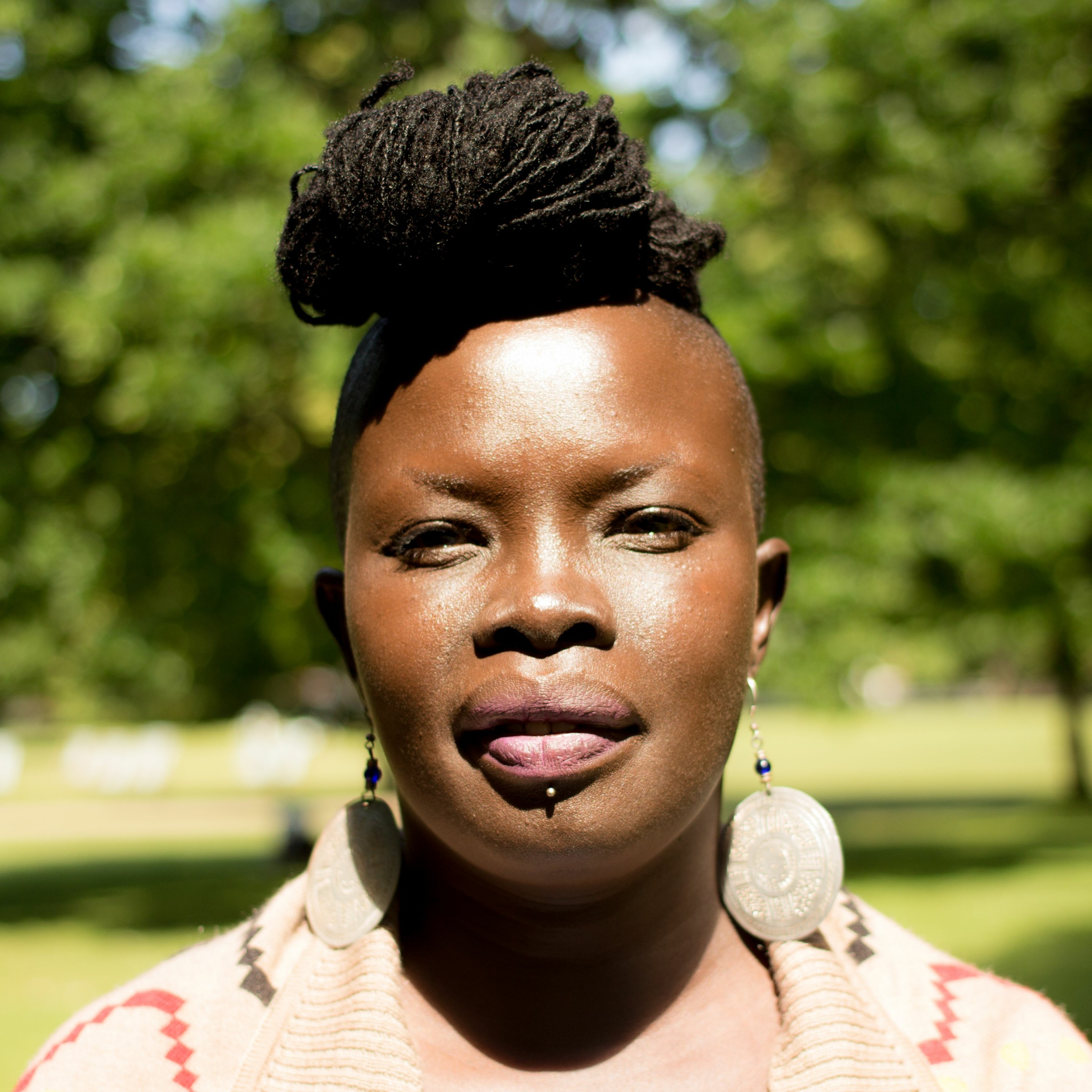 DFIDFrom refugee to MBE: How Akuja de Garang became a champion for girls' education in South SudanAkuja de Garang is the project leader of the UK aid-funded programme Girls' Education South Sudan.
On her way to Buckingham Palace to receive an MBE for her work, she came to speak to DFID about her life as a refugee and how she returned to South Sudan, where she was born, as an adult to help girls go to school.
Listen to Akuja's inspirational story here, and to watch our video with her visit: https://www.youtube.com/watch?v=mp9s-ZGNHiI2017-06-2203 min
DFIDFrom refugee to MBE: How Akuja de Garang became a champion for girls' education in South SudanAkuja de Garang is the project leader of the UK aid-funded programme Girls' Education South Sudan.
On her way to Buckingham Palace to receive an MBE for her work, she came to speak to DFID about her life as a refugee and how she returned to South Sudan, where she was born, as an adult to help girls go to school.
Listen to Akuja's inspirational story here, and to watch our video with her visit: https://www.youtube.com/watch?v=mp9s-ZGNHiI2017-06-2203 min Building Peace 2010 to 2019OxPeace 2017: Sustainable Development Goals and Positive PeaceThe evolution of thinking on peacebuilding in DFID, and the context of the Sustainable Development Goals. The evolution of thinking on peacebuilding in DFID, and the context of the Sustainable Development Goals. Building on Goals 1-15 – on ending poverty, building strong economies and infrastructures, promoting access to health, resources and work, inclusivity, combating climate change, protecting ecosystems - Goal 16 aims to “Promote peaceful and inclusive societies for sustainable development, provide access to justice for all and build effective, accountable and inclusive institutions at all levels.”2017-06-1222 min
Building Peace 2010 to 2019OxPeace 2017: Sustainable Development Goals and Positive PeaceThe evolution of thinking on peacebuilding in DFID, and the context of the Sustainable Development Goals. The evolution of thinking on peacebuilding in DFID, and the context of the Sustainable Development Goals. Building on Goals 1-15 – on ending poverty, building strong economies and infrastructures, promoting access to health, resources and work, inclusivity, combating climate change, protecting ecosystems - Goal 16 aims to “Promote peaceful and inclusive societies for sustainable development, provide access to justice for all and build effective, accountable and inclusive institutions at all levels.”2017-06-1222 min DFIDA Modern Health Organisation – WHO Finances and Modernisation: A Podcast with Dr David NabarroToday, differing health conditions are changing the requirements of the global response, like shifting focus to preventing and responding to non-communicable diseases like cancer and diabetes, which are responsible for every 7 out of 10 deaths globally today.
WHO’s immense responsibility in meeting modern health challenges across the world requires strong leadership focused on delivering value for money and updating the system to meet the needs of today and tomorrow.
WHO Director General candidate Dr David Nabarro sat down with us to explain how the WHO would modernise under his leadership, and why this modernisation is so important for the future.2017-05-1806 min
DFIDA Modern Health Organisation – WHO Finances and Modernisation: A Podcast with Dr David NabarroToday, differing health conditions are changing the requirements of the global response, like shifting focus to preventing and responding to non-communicable diseases like cancer and diabetes, which are responsible for every 7 out of 10 deaths globally today.
WHO’s immense responsibility in meeting modern health challenges across the world requires strong leadership focused on delivering value for money and updating the system to meet the needs of today and tomorrow.
WHO Director General candidate Dr David Nabarro sat down with us to explain how the WHO would modernise under his leadership, and why this modernisation is so important for the future.2017-05-1806 min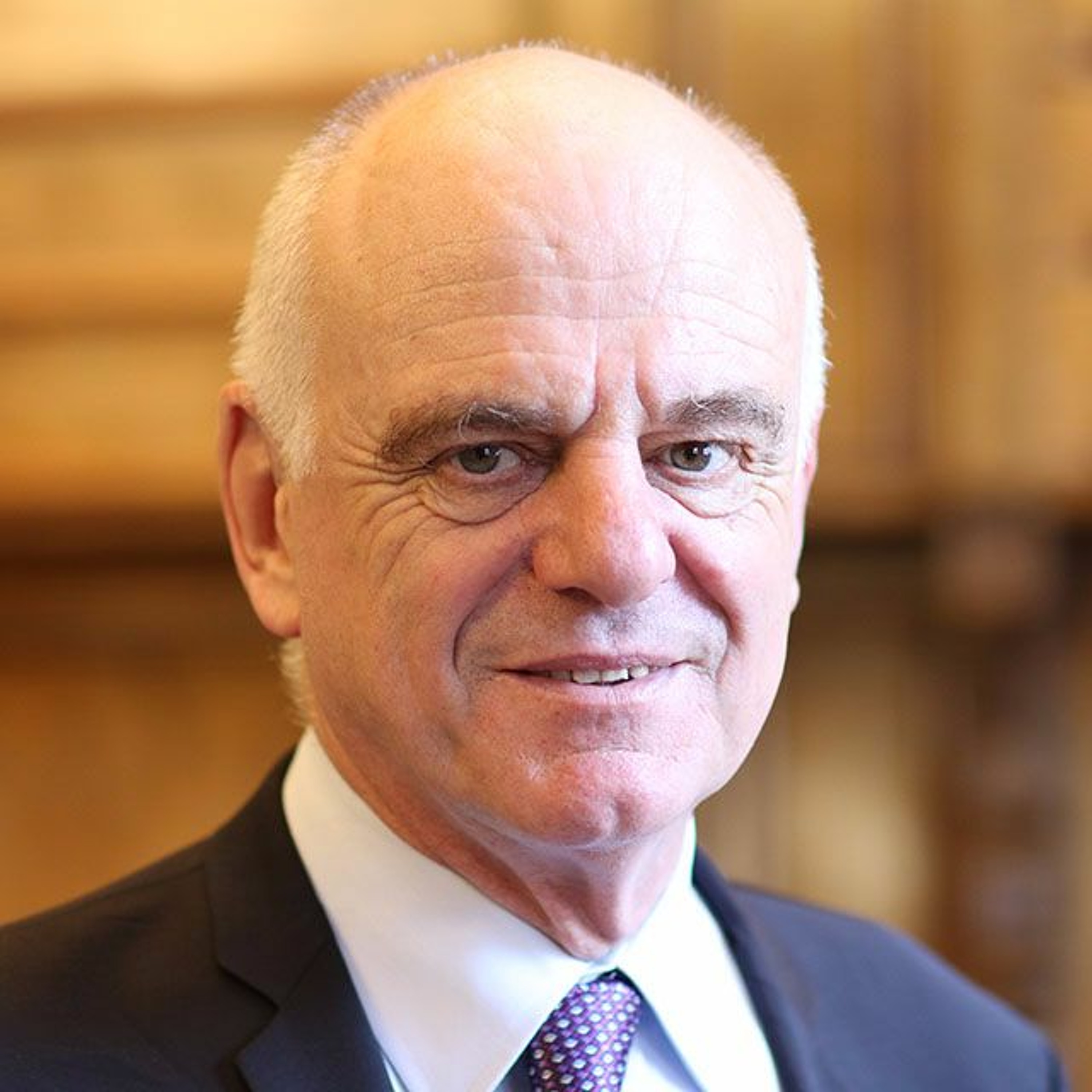 DFIDA WHO that Works for Women and Children: A Podcast with Dr David NabarroWe sat down with Dr David Nabarro and asked him to explain why he will double down on efforts to ensure that all people, especially women and children, will get the health care they need under his leadership.2017-05-0304 min
DFIDA WHO that Works for Women and Children: A Podcast with Dr David NabarroWe sat down with Dr David Nabarro and asked him to explain why he will double down on efforts to ensure that all people, especially women and children, will get the health care they need under his leadership.2017-05-0304 min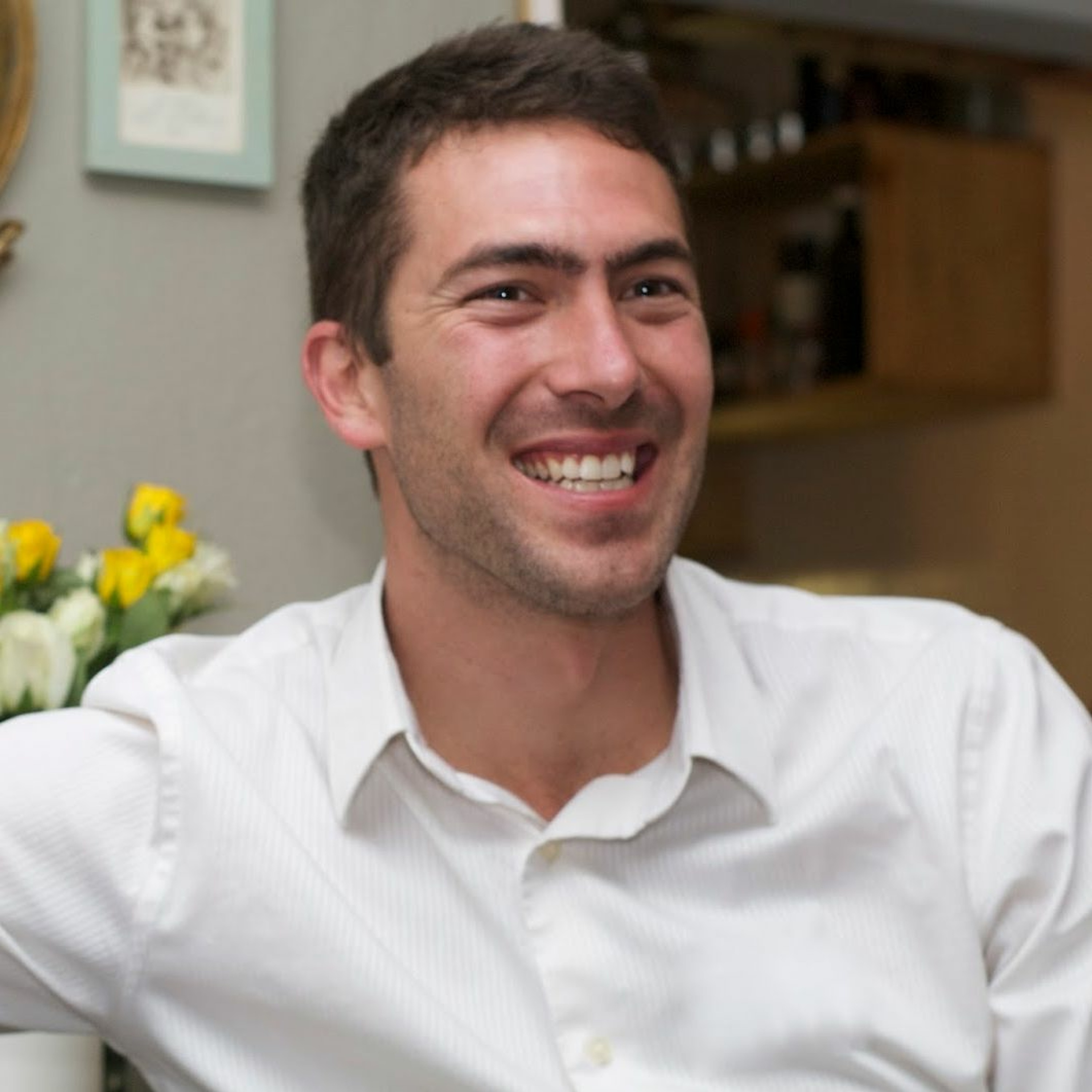 Startup Hour RadioWorking On Your Business and Tapping Into Employee Ideas with Matthew Grollnek.Matthew works at the intersection of business and education in Africa. He founded Startup Junction in 2013 which now hosts the largest monthly gatherings for entrepreneurs in Zambia and consults organizations such as the Swedish Government and the Private Enterprise Program (DFID). Matthew holds an M.A. in International Education Administration from Stanford University and focused on Innovation and Entrepreneurship at Stanford's Design School (d.school). Matthew has previously worked for the Stanford Institute for Innovation in Developing Economies (SEED), U.S. State Department, U.S .Peace Corps and Engineers without Boarders. Matthew also served as the COO for NetOne I...2017-05-0207 min
Startup Hour RadioWorking On Your Business and Tapping Into Employee Ideas with Matthew Grollnek.Matthew works at the intersection of business and education in Africa. He founded Startup Junction in 2013 which now hosts the largest monthly gatherings for entrepreneurs in Zambia and consults organizations such as the Swedish Government and the Private Enterprise Program (DFID). Matthew holds an M.A. in International Education Administration from Stanford University and focused on Innovation and Entrepreneurship at Stanford's Design School (d.school). Matthew has previously worked for the Stanford Institute for Innovation in Developing Economies (SEED), U.S. State Department, U.S .Peace Corps and Engineers without Boarders. Matthew also served as the COO for NetOne I...2017-05-0207 min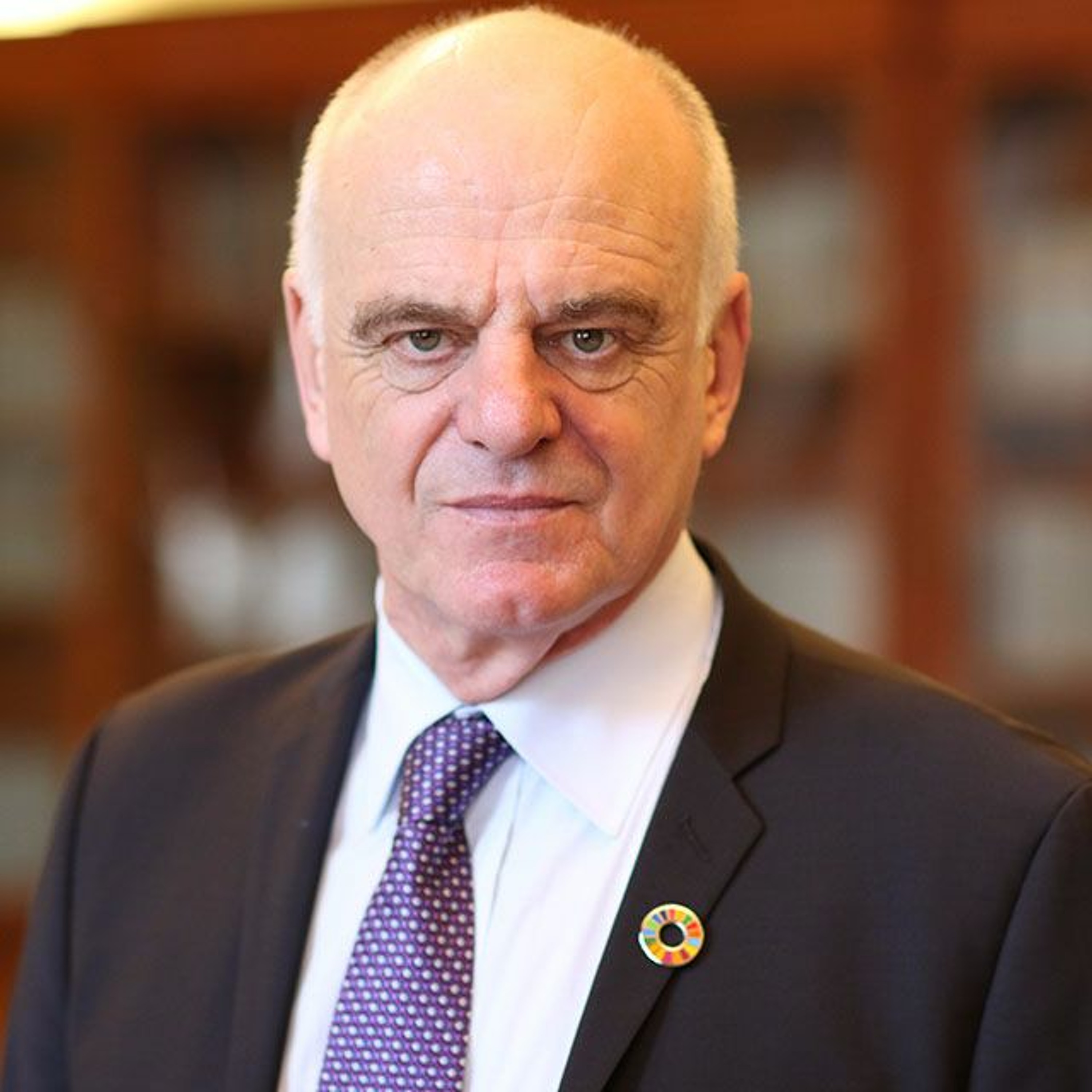 DFIDFacing Tomorrow’s Health Threats - infectious diseases & global security: A Podcast with Dr NabarroDrawing on expertise working in over 50 countries, Dr David Nabarro discusses tackling infectious diseases like malaria, TB, HIV/AIDs and neglected tropical diseases. He also discusses facing global health security threats facing the world today, like anti-microbial resistance.2017-04-2709 min
DFIDFacing Tomorrow’s Health Threats - infectious diseases & global security: A Podcast with Dr NabarroDrawing on expertise working in over 50 countries, Dr David Nabarro discusses tackling infectious diseases like malaria, TB, HIV/AIDs and neglected tropical diseases. He also discusses facing global health security threats facing the world today, like anti-microbial resistance.2017-04-2709 min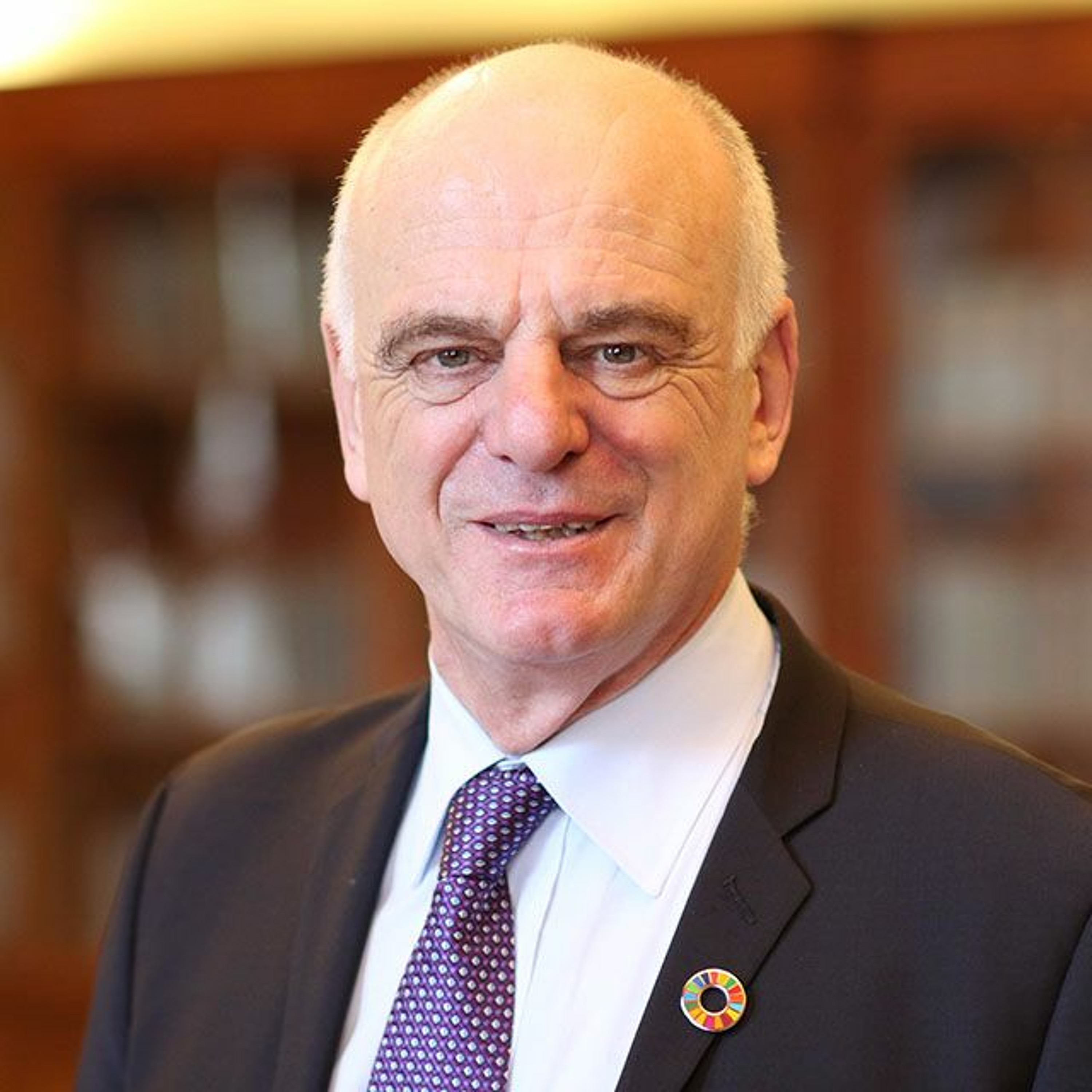 DFIDMeet Dr Nabarro – The best candidate for WHO Director General: A Podcast with Dr David NabarroWe caught up with Dr David Nabarro, candidate for WHO’s Director General, to discuss why he’s the best candidate for the job and what the WHO would look like under his leadership.2017-04-0704 min
DFIDMeet Dr Nabarro – The best candidate for WHO Director General: A Podcast with Dr David NabarroWe caught up with Dr David Nabarro, candidate for WHO’s Director General, to discuss why he’s the best candidate for the job and what the WHO would look like under his leadership.2017-04-0704 min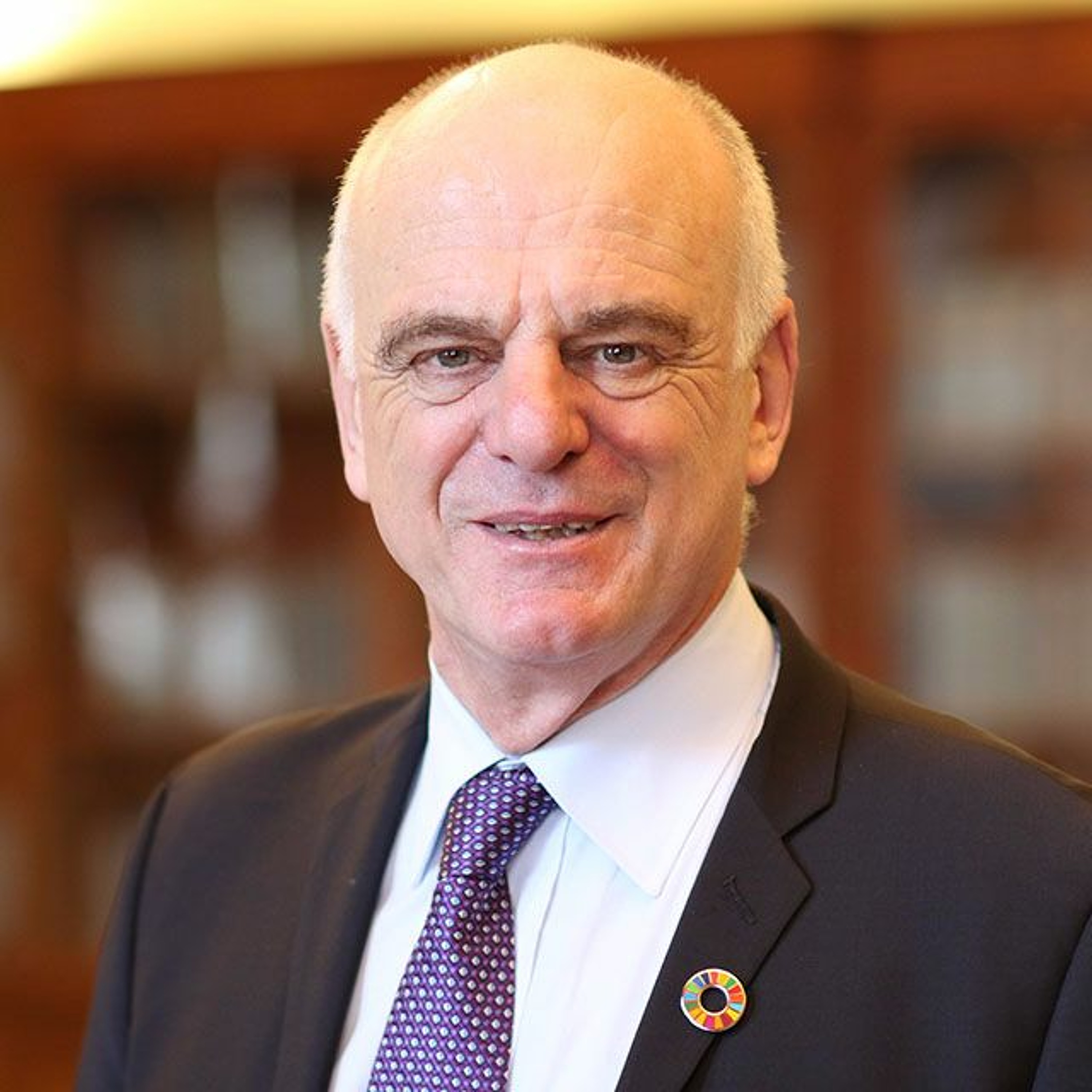 DFIDImpact on the Ground – WHO’s response to emergencies and crises: A Podcast with Dr David NabarroCandidate for WHO Director General Dr David Nabarro draws on over 40 years of experience and expertise to explain the importance of coordinated and quick responses by the WHO in humanitarian crises and emergencies. He discusses how communities, especially children are impacted by food shortages, and what’s needed to provide a concerted global response to crises.2017-03-3009 min
DFIDImpact on the Ground – WHO’s response to emergencies and crises: A Podcast with Dr David NabarroCandidate for WHO Director General Dr David Nabarro draws on over 40 years of experience and expertise to explain the importance of coordinated and quick responses by the WHO in humanitarian crises and emergencies. He discusses how communities, especially children are impacted by food shortages, and what’s needed to provide a concerted global response to crises.2017-03-3009 min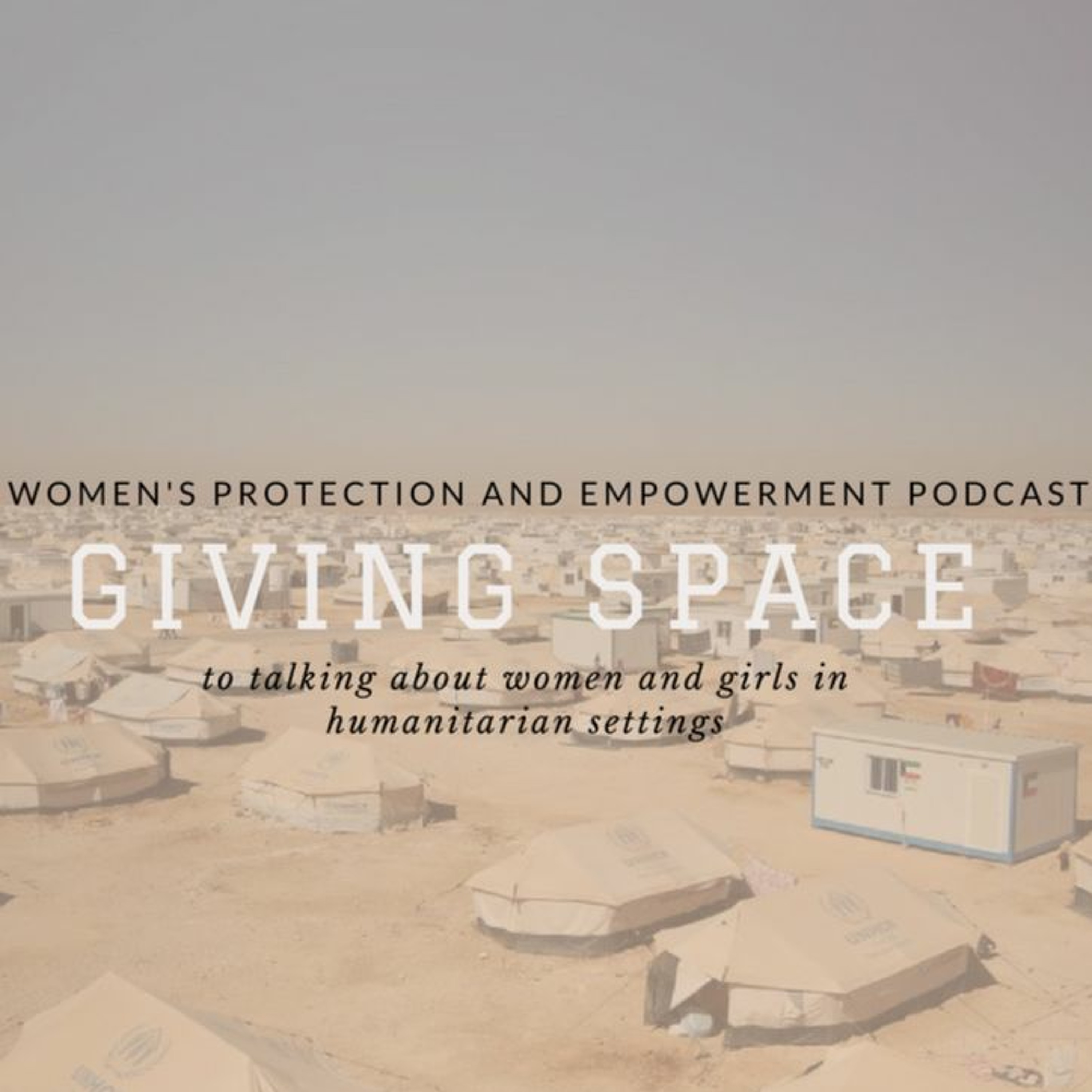 Women's Protection and EmpowermentWhat Works to Prevent Violence Against Women and GirlsThe IRC is leading a £5 million five-year global research consortium on ‘What Works to Prevent Violence Against Women and Girls in Conflict and Humanitarian Crises’, funded by the UK Department for International Development (DfID). Listen now to learn more about it!
http://www.whatworks.co.za/2017-02-0613 min
Women's Protection and EmpowermentWhat Works to Prevent Violence Against Women and GirlsThe IRC is leading a £5 million five-year global research consortium on ‘What Works to Prevent Violence Against Women and Girls in Conflict and Humanitarian Crises’, funded by the UK Department for International Development (DfID). Listen now to learn more about it!
http://www.whatworks.co.za/2017-02-0613 min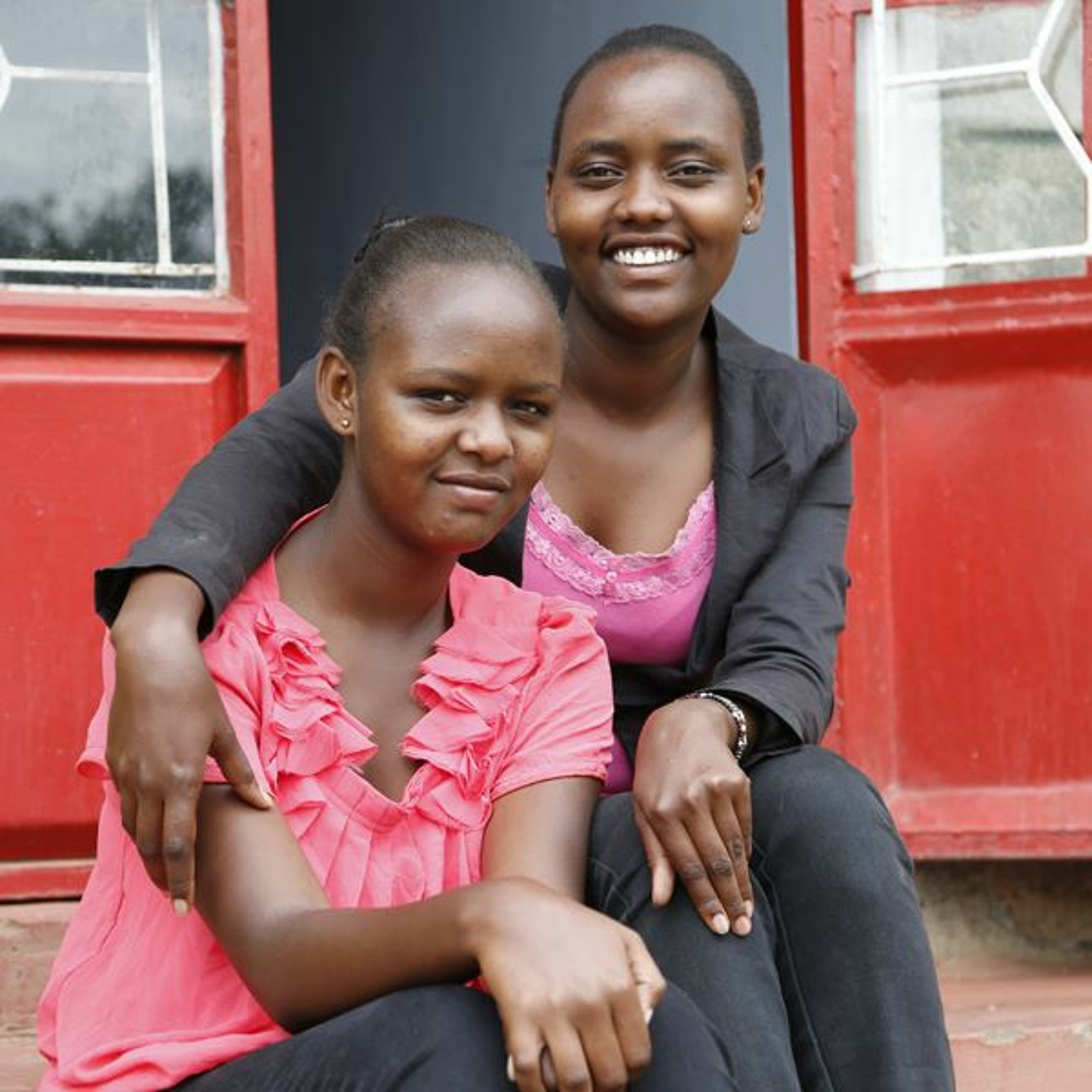 DFIDEscape from FGM16-year-old twins Hope and Leah escaped FGM with minutes to spare.
Listen to them tell their story and find out why they want to fight for girls' rights.
Background: UK Aid works through partners to support a collective abandonment of the FGM, encouraging whole communities to say no to FGM together.
We are backing the Africa-led movement to end FGM, working in 17 countries from Kenya to Ethiopia, Somalia to Uganda. Our support to The Girl Generation allows them to work with grassroots organisations like the one looking after Hope and Leah to help them effectively campaign for an end to...2017-02-0606 min
DFIDEscape from FGM16-year-old twins Hope and Leah escaped FGM with minutes to spare.
Listen to them tell their story and find out why they want to fight for girls' rights.
Background: UK Aid works through partners to support a collective abandonment of the FGM, encouraging whole communities to say no to FGM together.
We are backing the Africa-led movement to end FGM, working in 17 countries from Kenya to Ethiopia, Somalia to Uganda. Our support to The Girl Generation allows them to work with grassroots organisations like the one looking after Hope and Leah to help them effectively campaign for an end to...2017-02-0606 min DFIDStefan Dercon DFID's Chief Economist introduces DFID's first Economic Development StrategyStefan Dercon DFID's Chief Economist introduces DFID's first Economic Development Strategy.
DFID’s Economic Development Strategy sets out how Britain will establish new trade, investment and economic links and end global poverty.
https://www.gov.uk/government/publications/dfids-economic-development-strategy-20172017-01-3108 min
DFIDStefan Dercon DFID's Chief Economist introduces DFID's first Economic Development StrategyStefan Dercon DFID's Chief Economist introduces DFID's first Economic Development Strategy.
DFID’s Economic Development Strategy sets out how Britain will establish new trade, investment and economic links and end global poverty.
https://www.gov.uk/government/publications/dfids-economic-development-strategy-20172017-01-3108 min Terms Of Reference PodcastTOR104: DevResults with Herb CaudillHow do you go about monitoring and tracking the work that you've accomplished as an implementer of humanitarian aid or development assistance? This question has been answered 1000s of times by 100s of organizations around the world. Even though we're in the year 2016, the reality of tracking progress for the vast majority of initiatives out there is one of two things: written reports in Microsoft Word or numbers on an Excel spreadsheet.... that then get translated into a narrative report in Word. I'm not kidding. I've been evaluating programming in this world for more than 10 years and...2016-04-2638 min
Terms Of Reference PodcastTOR104: DevResults with Herb CaudillHow do you go about monitoring and tracking the work that you've accomplished as an implementer of humanitarian aid or development assistance? This question has been answered 1000s of times by 100s of organizations around the world. Even though we're in the year 2016, the reality of tracking progress for the vast majority of initiatives out there is one of two things: written reports in Microsoft Word or numbers on an Excel spreadsheet.... that then get translated into a narrative report in Word. I'm not kidding. I've been evaluating programming in this world for more than 10 years and...2016-04-2638 min Face2Face with David PeckTJ GrantListen as TJ talks about making a difference, Zimbabwe, the Trillion-dollar bill, the extraordinary versus the ordinary and unexpected outcomes within international development.BiographyTJ Grant has a passion for working with the poor, the lost and the broken and seeking to bring hope and transformation to people’s lives. TJ has worked with World Vision for the past 8+ years in a variety of different roles including Advocacy and Education where he developed World Vision’s Youth Ambassador program and Marketing where he managed the 30 Hour Famine campaign which was the largest youth fundraising and enga...2015-12-3049 min
Face2Face with David PeckTJ GrantListen as TJ talks about making a difference, Zimbabwe, the Trillion-dollar bill, the extraordinary versus the ordinary and unexpected outcomes within international development.BiographyTJ Grant has a passion for working with the poor, the lost and the broken and seeking to bring hope and transformation to people’s lives. TJ has worked with World Vision for the past 8+ years in a variety of different roles including Advocacy and Education where he developed World Vision’s Youth Ambassador program and Marketing where he managed the 30 Hour Famine campaign which was the largest youth fundraising and enga...2015-12-3049 min Autumn 2015 | Public lectures and events | Audio and pdfTackling Extreme Poverty through Programmes Targeting the World's Ultra-PoorContributor(s): Professor Oriana Bandiera, Mushtaque Chowdhury, Professor Esther Duflo, Anna Minj, Muhammad Musa, Desmond Swayne | Can extreme poverty be eliminated through programmes targeting the world’s ultra-poor? The panel will discuss the merits of so called graduation approaches. Oriana Bandiera is a Professor of Economics at the LSE and the Director of STICERD. Mushtaque Chowdhury is Vice-Chairperson, BRAC. Esther Duflo is the Abdul Latif Jameel Professor of Poverty Alleviation and Development Economics at MIT. Anna Minj is Director of the Targeting the Ultra Poor Programme, BRAC. Muhammad Musa, Executive Director, BRAC. Desmond Swayne is Minister of State at DFID. Ro...2015-12-091h 31
Autumn 2015 | Public lectures and events | Audio and pdfTackling Extreme Poverty through Programmes Targeting the World's Ultra-PoorContributor(s): Professor Oriana Bandiera, Mushtaque Chowdhury, Professor Esther Duflo, Anna Minj, Muhammad Musa, Desmond Swayne | Can extreme poverty be eliminated through programmes targeting the world’s ultra-poor? The panel will discuss the merits of so called graduation approaches. Oriana Bandiera is a Professor of Economics at the LSE and the Director of STICERD. Mushtaque Chowdhury is Vice-Chairperson, BRAC. Esther Duflo is the Abdul Latif Jameel Professor of Poverty Alleviation and Development Economics at MIT. Anna Minj is Director of the Targeting the Ultra Poor Programme, BRAC. Muhammad Musa, Executive Director, BRAC. Desmond Swayne is Minister of State at DFID. Ro...2015-12-091h 31 Autumn 2015 | Public lectures and events | VideoTackling Extreme Poverty through Programmes Targeting the World's Ultra-PoorContributor(s): Professor Oriana Bandiera, Mushtaque Chowdhury, Professor Esther Duflo, Anna Minj, Muhammad Musa, Desmond Swayne | Can extreme poverty be eliminated through programmes targeting the world’s ultra-poor? The panel will discuss the merits of so called graduation approaches. Oriana Bandiera is a Professor of Economics at the LSE and the Director of STICERD. Mushtaque Chowdhury is Vice-Chairperson, BRAC. Esther Duflo is the Abdul Latif Jameel Professor of Poverty Alleviation and Development Economics at MIT. Anna Minj is Director of the Targeting the Ultra Poor Programme, BRAC. Muhammad Musa, Executive Director, BRAC. Desmond Swayne is Minister of State at DFID. Ro...2015-12-091h 31
Autumn 2015 | Public lectures and events | VideoTackling Extreme Poverty through Programmes Targeting the World's Ultra-PoorContributor(s): Professor Oriana Bandiera, Mushtaque Chowdhury, Professor Esther Duflo, Anna Minj, Muhammad Musa, Desmond Swayne | Can extreme poverty be eliminated through programmes targeting the world’s ultra-poor? The panel will discuss the merits of so called graduation approaches. Oriana Bandiera is a Professor of Economics at the LSE and the Director of STICERD. Mushtaque Chowdhury is Vice-Chairperson, BRAC. Esther Duflo is the Abdul Latif Jameel Professor of Poverty Alleviation and Development Economics at MIT. Anna Minj is Director of the Targeting the Ultra Poor Programme, BRAC. Muhammad Musa, Executive Director, BRAC. Desmond Swayne is Minister of State at DFID. Ro...2015-12-091h 31 Department of Education Public SeminarsMobile learning in global health training. What about social justice?Niall discusses emerging findings from the ESRC/DFIDfunded project "mCHW: a mobile learning intervention for community health workers”. The talk will present the background to the project and position his research at the intersection of education, health, technology and social justice.
Niall will present his joint research with Anne Geniets on the framing of global health training with technology from a social justice perspective (Winters & Geniets, in submission). Critiquing ICT for development, he will set out to show how the design, development and implementation of training projects are radically altered when centred on a preferential option for the poor. He will then discuss the social justice framing in the context of the mCHW project’s empirica...2015-02-1945 min
Department of Education Public SeminarsMobile learning in global health training. What about social justice?Niall discusses emerging findings from the ESRC/DFIDfunded project "mCHW: a mobile learning intervention for community health workers”. The talk will present the background to the project and position his research at the intersection of education, health, technology and social justice.
Niall will present his joint research with Anne Geniets on the framing of global health training with technology from a social justice perspective (Winters & Geniets, in submission). Critiquing ICT for development, he will set out to show how the design, development and implementation of training projects are radically altered when centred on a preferential option for the poor. He will then discuss the social justice framing in the context of the mCHW project’s empirica...2015-02-1945 min Department of Education Public SeminarsMobile learning in global health training. What about social justice?Niall discusses emerging findings from the ESRC/DFIDfunded project "mCHW: a mobile learning intervention for community health workers”. The talk will present the background to the project and position his research at the intersection of education, health, technology and social justice.
Niall will present his joint research with Anne Geniets on the framing of global health training with technology from a social justice perspective (Winters & Geniets, in submission). Critiquing ICT for development, he will set out to show how the design, development and implementation of training projects are radically altered when centred on a preferential option for the poor. He will then discuss the social justice framing in the context of the mCHW project’s empirical work ...2015-02-1945 min
Department of Education Public SeminarsMobile learning in global health training. What about social justice?Niall discusses emerging findings from the ESRC/DFIDfunded project "mCHW: a mobile learning intervention for community health workers”. The talk will present the background to the project and position his research at the intersection of education, health, technology and social justice.
Niall will present his joint research with Anne Geniets on the framing of global health training with technology from a social justice perspective (Winters & Geniets, in submission). Critiquing ICT for development, he will set out to show how the design, development and implementation of training projects are radically altered when centred on a preferential option for the poor. He will then discuss the social justice framing in the context of the mCHW project’s empirical work ...2015-02-1945 min Software Process and Measurement CastSPaMCAST 286 – Brian Wernham, Agile Project Management for GovernmentListen to the 6. SPaMCAST 286 features our interview with Brian Wernham, author of . Agile government does not have to be an oxymoron.
Brian Wernham has more than 30 years of experience in adaptive change program leadership. He is an independent consultant and works in both the public and private sector. He has extensive international experience in the USA, UK, Canada, Hong Kong, Germany and offshore development in Bangalore.
By the time that the term ‘Agile leadership’ was first coined, Brian had already been successfully leading iterative, adaptive projects for over 10 years on both sides of the Atlantic. He works as a hands-on program d...2014-04-2035 min
Software Process and Measurement CastSPaMCAST 286 – Brian Wernham, Agile Project Management for GovernmentListen to the 6. SPaMCAST 286 features our interview with Brian Wernham, author of . Agile government does not have to be an oxymoron.
Brian Wernham has more than 30 years of experience in adaptive change program leadership. He is an independent consultant and works in both the public and private sector. He has extensive international experience in the USA, UK, Canada, Hong Kong, Germany and offshore development in Bangalore.
By the time that the term ‘Agile leadership’ was first coined, Brian had already been successfully leading iterative, adaptive projects for over 10 years on both sides of the Atlantic. He works as a hands-on program d...2014-04-2035 min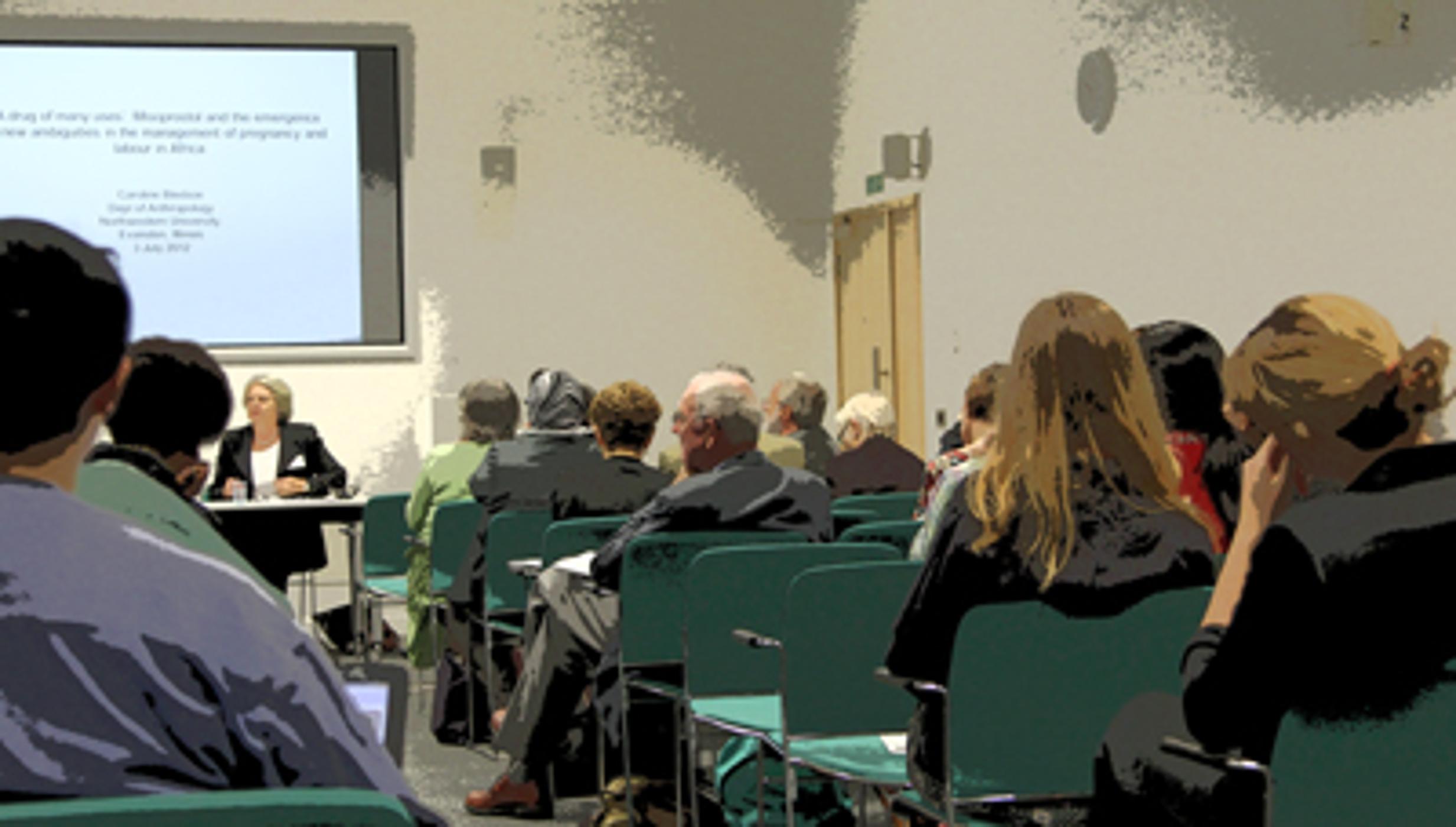 New Approaches to Maternal Mortality In AfricaNew Approaches to Maternal Mortality In Africa: Melissa Lane: Summing UpSumming up
Melissa Lane (Politics, Princeton)
Discussion and Future Directions led by
Melissa Lane (Politics, Princeton)
Henrietta Moore (Social Anthropology, Cambridge)
Tessa Mattholie (DfID)
Closing Remarks
Ashley Moffett (Reproductive Immunology, Cambridge)
Megan Vaughan (African History, Cambridge)2012-07-311h 03
New Approaches to Maternal Mortality In AfricaNew Approaches to Maternal Mortality In Africa: Melissa Lane: Summing UpSumming up
Melissa Lane (Politics, Princeton)
Discussion and Future Directions led by
Melissa Lane (Politics, Princeton)
Henrietta Moore (Social Anthropology, Cambridge)
Tessa Mattholie (DfID)
Closing Remarks
Ashley Moffett (Reproductive Immunology, Cambridge)
Megan Vaughan (African History, Cambridge)2012-07-311h 03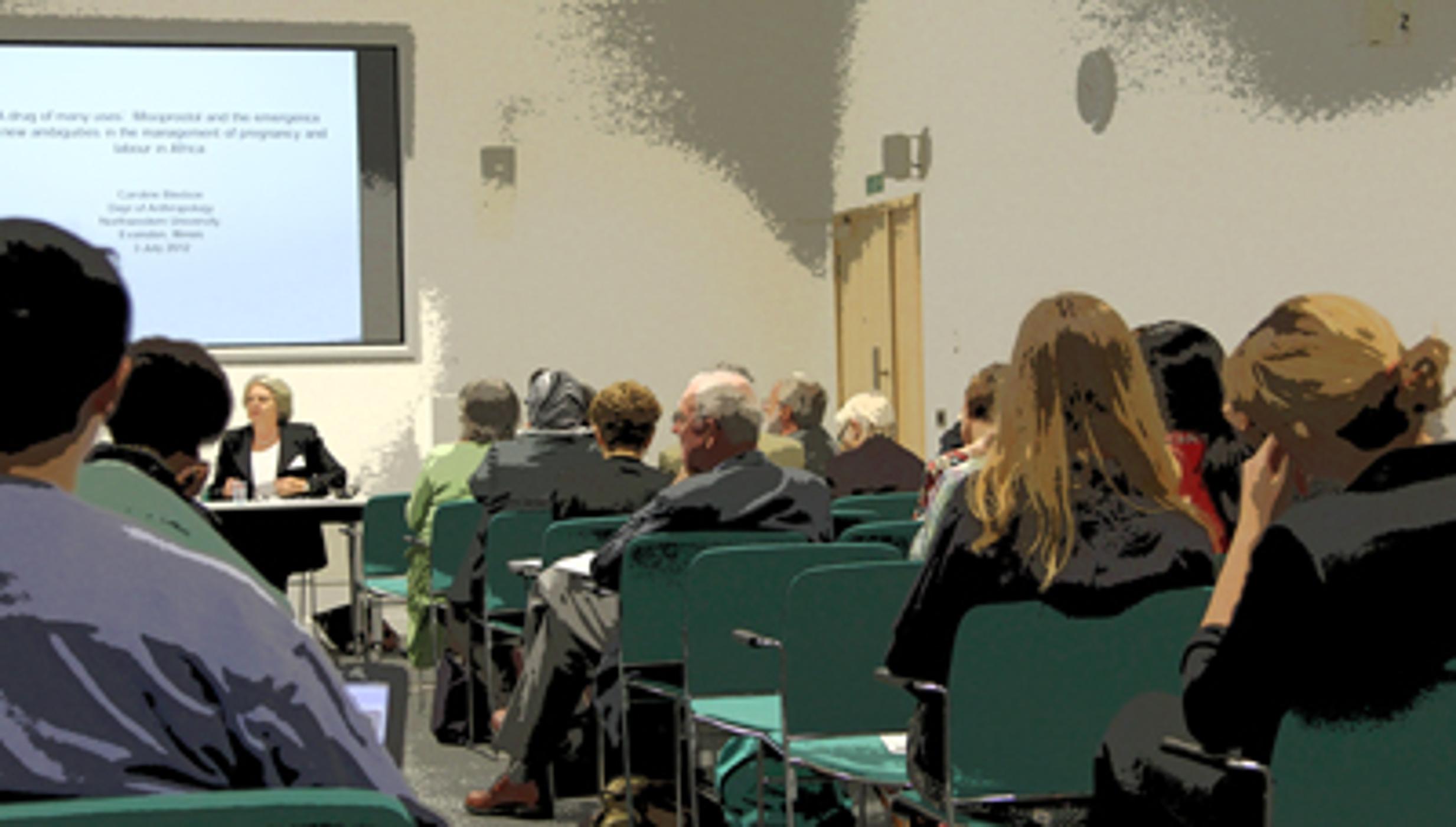 New Approaches to Maternal Mortality In AfricaNew Approaches to Maternal Mortality In Africa: Panel 1: Tessa Mattholie, Karen Rosenberg and Jonathan WellsPanel 1
Chair
Tessa Mattholie (DfID)
Karen Rosenberg (Biological Anthropology, Delaware)
Why have humans reached this dangerous position in comparison with great apes?
Jonathan Wells
The obstetric dilemma: an ancient game of Russian Roulette, or another fine mess that agriculture got us into?2012-07-301h 32
New Approaches to Maternal Mortality In AfricaNew Approaches to Maternal Mortality In Africa: Panel 1: Tessa Mattholie, Karen Rosenberg and Jonathan WellsPanel 1
Chair
Tessa Mattholie (DfID)
Karen Rosenberg (Biological Anthropology, Delaware)
Why have humans reached this dangerous position in comparison with great apes?
Jonathan Wells
The obstetric dilemma: an ancient game of Russian Roulette, or another fine mess that agriculture got us into?2012-07-301h 32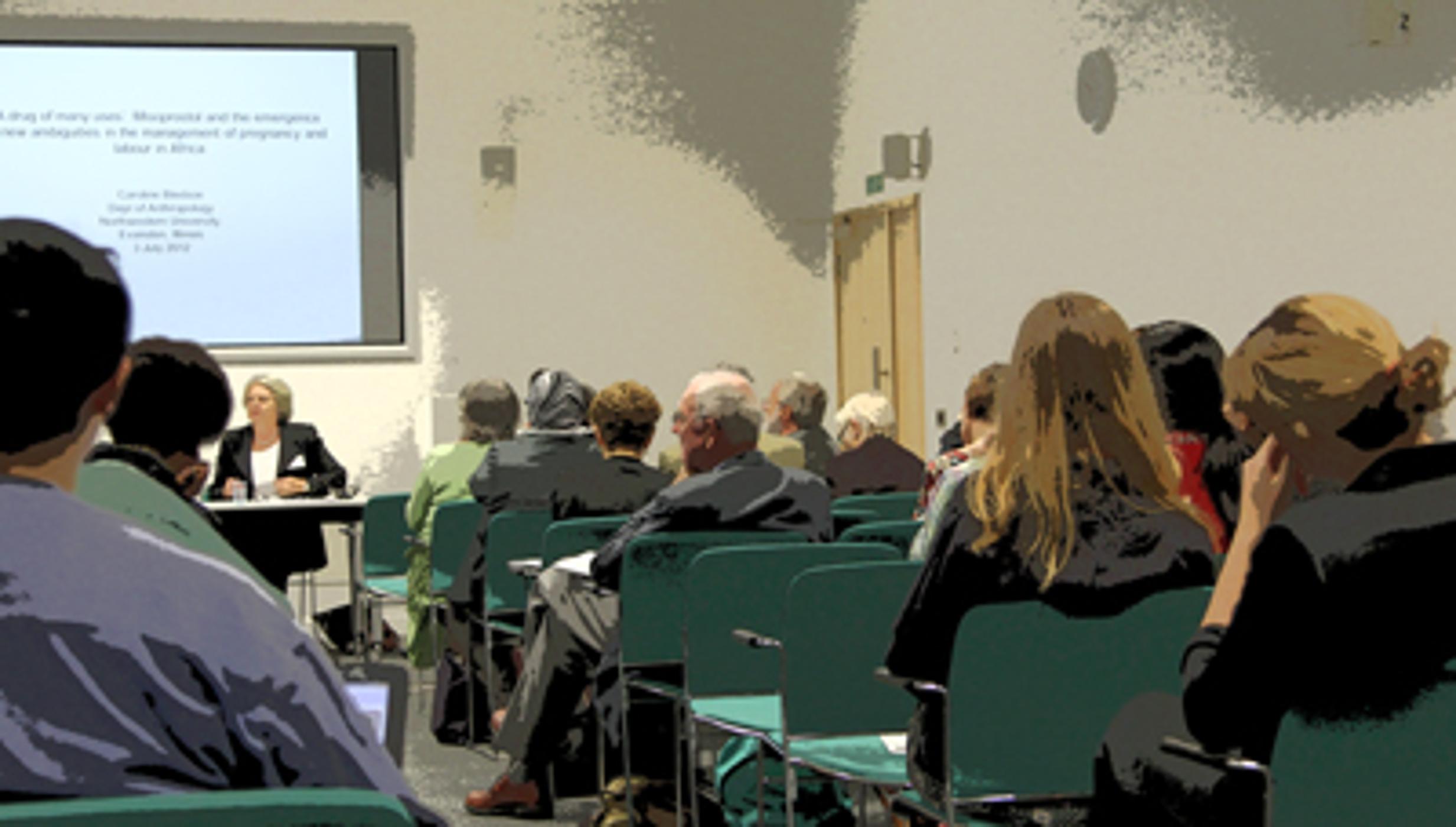 New Approaches to Maternal Mortality In AfricaNew Approaches to Maternal Mortality In Africa: Panel 1: Tessa Mattholie, Wendy Graham and Annettee NakimuliPanel 1
Chair
Tessa Mattholie (DfID)
Wendy Graham (Obstetric Epidemiology, Aberdeen)
Maternal mortality: evidence gaps and measurement traps
Annettee Nakimuli (Obstetrics, Makerere)
What are the main causes of maternal mortality in Africa?2012-07-3035 min
New Approaches to Maternal Mortality In AfricaNew Approaches to Maternal Mortality In Africa: Panel 1: Tessa Mattholie, Wendy Graham and Annettee NakimuliPanel 1
Chair
Tessa Mattholie (DfID)
Wendy Graham (Obstetric Epidemiology, Aberdeen)
Maternal mortality: evidence gaps and measurement traps
Annettee Nakimuli (Obstetrics, Makerere)
What are the main causes of maternal mortality in Africa?2012-07-3035 min German Marshall Fund's PodcastIn 8 Minutes or Less: Role of Women in African Agriculture must be ElevatedIn this GMF podcast, John Barrett, Chief Professional Officer for Climate Change, Environment, Infrastructure, and Livelihoods at the UK Department for International Development (DFID), discusses DFID’s new approach to agricultural development, looking at the pivot toward a greater commitment and investment in food security. He describes specific ways that practitioners and government stakeholders can engage the private sector, and emphasized the role of markets, women, and regional trade as a catalyst for transformational change.2012-05-0809 min
German Marshall Fund's PodcastIn 8 Minutes or Less: Role of Women in African Agriculture must be ElevatedIn this GMF podcast, John Barrett, Chief Professional Officer for Climate Change, Environment, Infrastructure, and Livelihoods at the UK Department for International Development (DFID), discusses DFID’s new approach to agricultural development, looking at the pivot toward a greater commitment and investment in food security. He describes specific ways that practitioners and government stakeholders can engage the private sector, and emphasized the role of markets, women, and regional trade as a catalyst for transformational change.2012-05-0809 min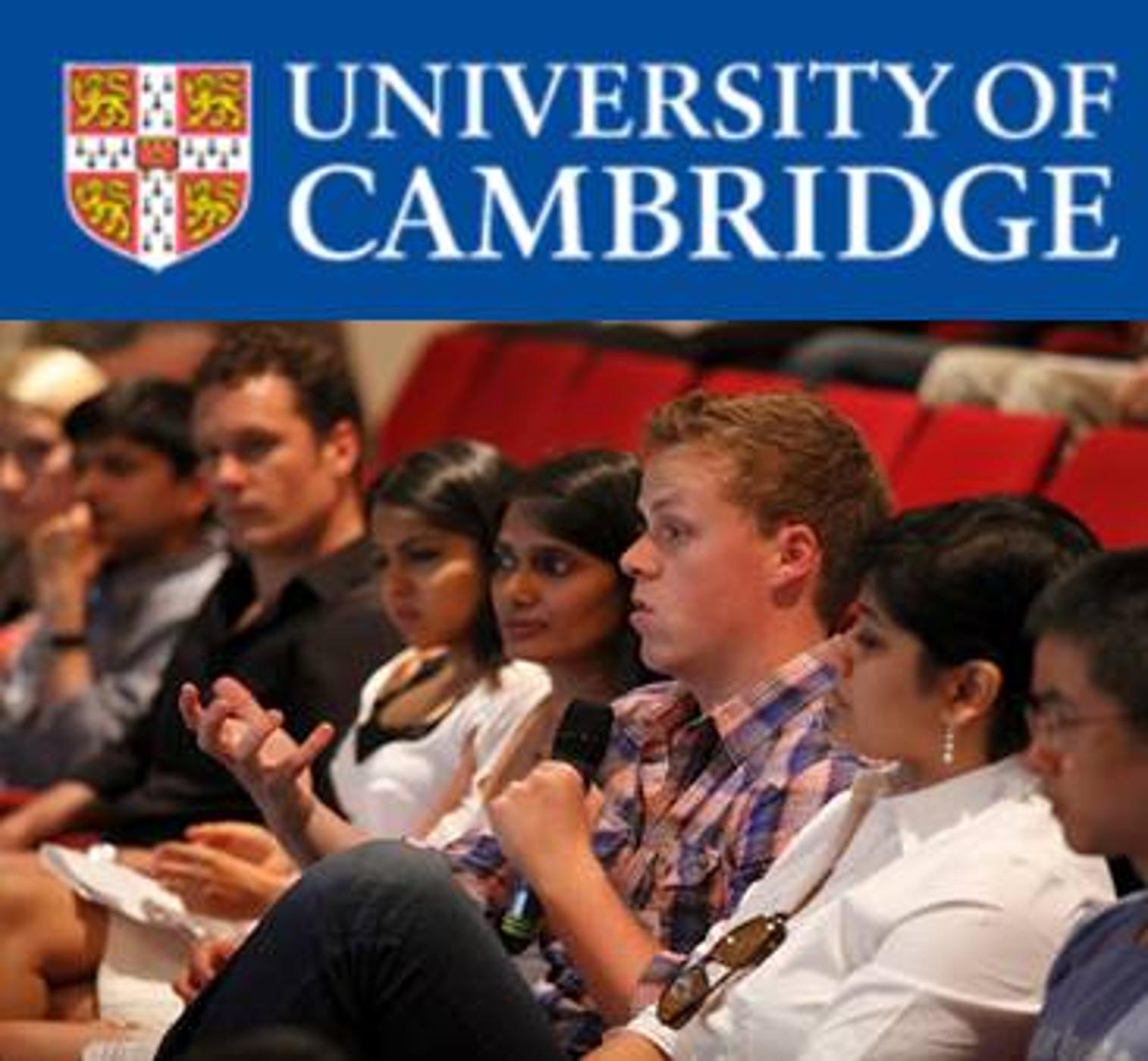 Gates Cambridge ScholarshipsGavin McGillivray of the UK's Department For International Development gives Gates Cambridge Distinguished LectureGavin was previously head of DFID's Global Funds & Development Finance Institutions Department and International Financial Institutions Department. Prior to joining DFID in 2000, McGillivray managed long-term agricultural development programmes in Bolivia, Honduras, Colombia and the Caribbean. In the middle of these assignments, he spent eight years in London with an international corporate finance house, Campbell Lutyens & Co Ltd, of which he was an Executive Director.2012-05-0357 min
Gates Cambridge ScholarshipsGavin McGillivray of the UK's Department For International Development gives Gates Cambridge Distinguished LectureGavin was previously head of DFID's Global Funds & Development Finance Institutions Department and International Financial Institutions Department. Prior to joining DFID in 2000, McGillivray managed long-term agricultural development programmes in Bolivia, Honduras, Colombia and the Caribbean. In the middle of these assignments, he spent eight years in London with an international corporate finance house, Campbell Lutyens & Co Ltd, of which he was an Executive Director.2012-05-0357 min Autumn 2011 | Public lectures and events | VideoThe World Economy: How did we get here and where are we going?Contributor(s): Nemat Shafik | Nemat Shafik is the Deputy Managing Director of the International Monetary Fund, a position she has held since April 2011. Prior to this Nemat was Permanent Secretary of the UK Department for International Development (DFID). She was chief executive of the department responsible for all UK development efforts including a bilateral aid programme in over 100 countries, multilateral policies and financing for the United Nations, European Union and international financial institutions, and overall development policy and research. Before her appointment as Permanent Secretary, she was Director General for Country Programmes where she was responsible for DFID's programmes across...2011-10-261h 08
Autumn 2011 | Public lectures and events | VideoThe World Economy: How did we get here and where are we going?Contributor(s): Nemat Shafik | Nemat Shafik is the Deputy Managing Director of the International Monetary Fund, a position she has held since April 2011. Prior to this Nemat was Permanent Secretary of the UK Department for International Development (DFID). She was chief executive of the department responsible for all UK development efforts including a bilateral aid programme in over 100 countries, multilateral policies and financing for the United Nations, European Union and international financial institutions, and overall development policy and research. Before her appointment as Permanent Secretary, she was Director General for Country Programmes where she was responsible for DFID's programmes across...2011-10-261h 08 Autumn 2011 | Public lectures and events | Audio and pdfThe World Economy: How did we get here and where are we going?Contributor(s): Nemat Shafik | Nemat Shafik is the Deputy Managing Director of the International Monetary Fund, a position she has held since April 2011. Prior to this Nemat was Permanent Secretary of the UK Department for International Development (DFID). She was chief executive of the department responsible for all UK development efforts including a bilateral aid programme in over 100 countries, multilateral policies and financing for the United Nations, European Union and international financial institutions, and overall development policy and research. Before her appointment as Permanent Secretary, she was Director General for Country Programmes where she was responsible for DFID's programmes across...2011-10-261h 08
Autumn 2011 | Public lectures and events | Audio and pdfThe World Economy: How did we get here and where are we going?Contributor(s): Nemat Shafik | Nemat Shafik is the Deputy Managing Director of the International Monetary Fund, a position she has held since April 2011. Prior to this Nemat was Permanent Secretary of the UK Department for International Development (DFID). She was chief executive of the department responsible for all UK development efforts including a bilateral aid programme in over 100 countries, multilateral policies and financing for the United Nations, European Union and international financial institutions, and overall development policy and research. Before her appointment as Permanent Secretary, she was Director General for Country Programmes where she was responsible for DFID's programmes across...2011-10-261h 08 London School of Hygiene and Tropical Medicine Audio News - LSHTM PodcastEconomic Downturn No Bar To Success Against AIDSLONDON—Despite the need for cost savings in the UK economy, the British government is committed to prioritising key strategies for fighting HIV/AIDS both at home and globally, according to Peter Colenso, Head of the Human Development Group in the UK Department for International Development (DFID). At the World AIDS Day symposium held at the London School of Hygiene and Tropical Medicine he explained to Derek Thorne just how the British effort is being undertaken.2011-01-2705 min
London School of Hygiene and Tropical Medicine Audio News - LSHTM PodcastEconomic Downturn No Bar To Success Against AIDSLONDON—Despite the need for cost savings in the UK economy, the British government is committed to prioritising key strategies for fighting HIV/AIDS both at home and globally, according to Peter Colenso, Head of the Human Development Group in the UK Department for International Development (DFID). At the World AIDS Day symposium held at the London School of Hygiene and Tropical Medicine he explained to Derek Thorne just how the British effort is being undertaken.2011-01-2705 min Microfinance PodcastMFP 110. Daryl Collins on Portfolios of the Poor. Part 2<p>Daryl Collins, co-author of "Portfolios of the Poor" and Senior Associate, Bankable Frontier Associates talks about implementing lessons from Portfolios of the Poor in South Africa. Daryl's principal area of research is estimating the impact of microfinance programs on the financial management of poor households. From 2003 to 2006, she was the principal investigator for a longitudinal study called the Financial Diaries project funded by the Ford Foundation and DFID in South Africa. This study became the basis of a book, Portfolios of the Poor.</p><img src="http://feeds.feedburner.com/~r/MicrofinancePodcast/~4/1iihJDDEYx8" height="1"...2010-06-1000 min
Microfinance PodcastMFP 110. Daryl Collins on Portfolios of the Poor. Part 2<p>Daryl Collins, co-author of "Portfolios of the Poor" and Senior Associate, Bankable Frontier Associates talks about implementing lessons from Portfolios of the Poor in South Africa. Daryl's principal area of research is estimating the impact of microfinance programs on the financial management of poor households. From 2003 to 2006, she was the principal investigator for a longitudinal study called the Financial Diaries project funded by the Ford Foundation and DFID in South Africa. This study became the basis of a book, Portfolios of the Poor.</p><img src="http://feeds.feedburner.com/~r/MicrofinancePodcast/~4/1iihJDDEYx8" height="1"...2010-06-1000 min Microfinance PodcastMFP 109. Daryl Collins on Portfolios of the Poor. Part 1<p><!--StartFragment--><span style="font-size: 11pt; font-family: "Times New Roman";" lang="EN">Daryl Collins, co</span><span style="font-size: 11pt; font-family: "Times New Roman";">-author of "Portfolios of the Poor" and </span><span style="font-size: 11pt; font-family: "Times New Roman";" lang="EN">Senior Associate at Bankable Frontier Associates talks about implementing lessons from Portfolios of the Poor in South Africa.</span></p>
<p><!--StartFragment--><span...2010-06-0900 min
Microfinance PodcastMFP 109. Daryl Collins on Portfolios of the Poor. Part 1<p><!--StartFragment--><span style="font-size: 11pt; font-family: "Times New Roman";" lang="EN">Daryl Collins, co</span><span style="font-size: 11pt; font-family: "Times New Roman";">-author of "Portfolios of the Poor" and </span><span style="font-size: 11pt; font-family: "Times New Roman";" lang="EN">Senior Associate at Bankable Frontier Associates talks about implementing lessons from Portfolios of the Poor in South Africa.</span></p>
<p><!--StartFragment--><span...2010-06-0900 min